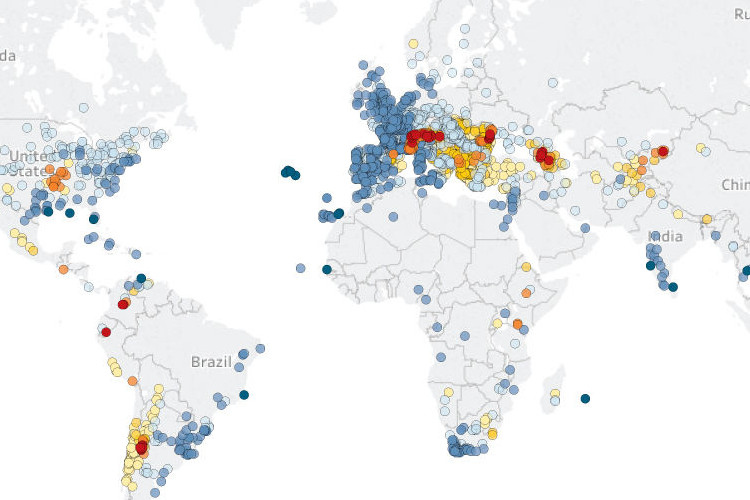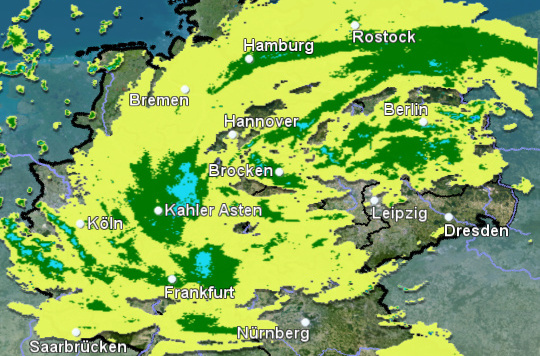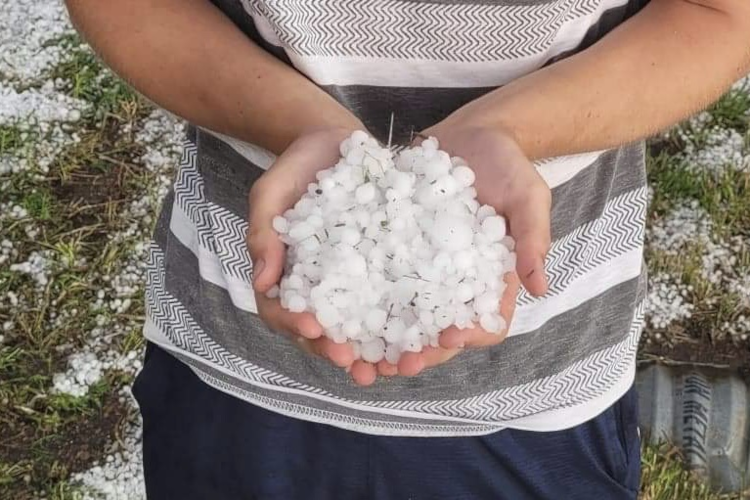
Every year, extreme weather events cause millions of euros worth of damage. What role does climate change play? How can we prevent damage?
Report in the Klimanavigator (in German)
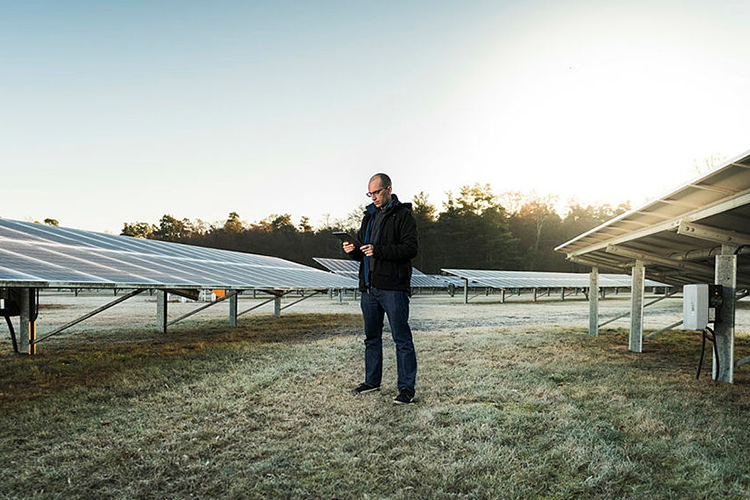
Decentralised networks, known as microgrids, are needed to restore power as quickly as possible after extreme weather events.
link (in German)
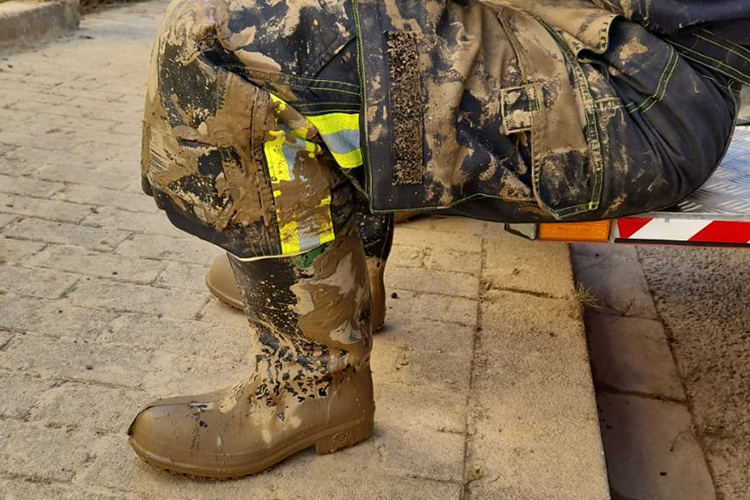
In an interview with ntv, disaster researcher Andreas Schäfer explains why the floods in southern Spain were so devastating and why certain flood events are difficult to mitigate.
link (in German)
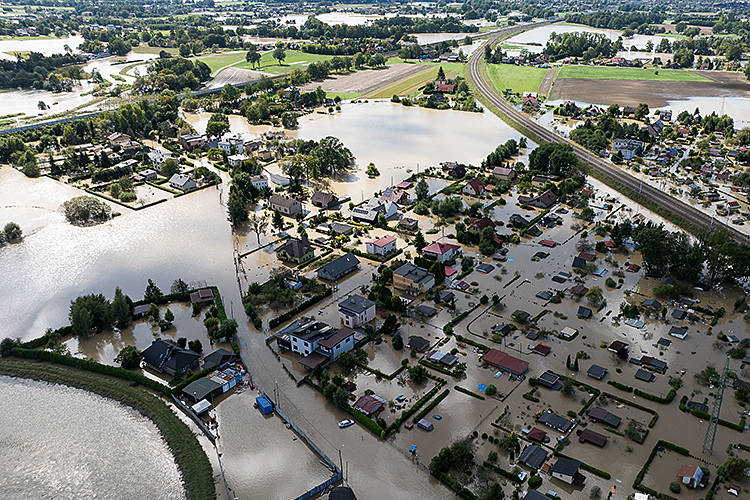
FAQ on the floods from experts at the GFZ, the UFZ and the KIT/CEDIM
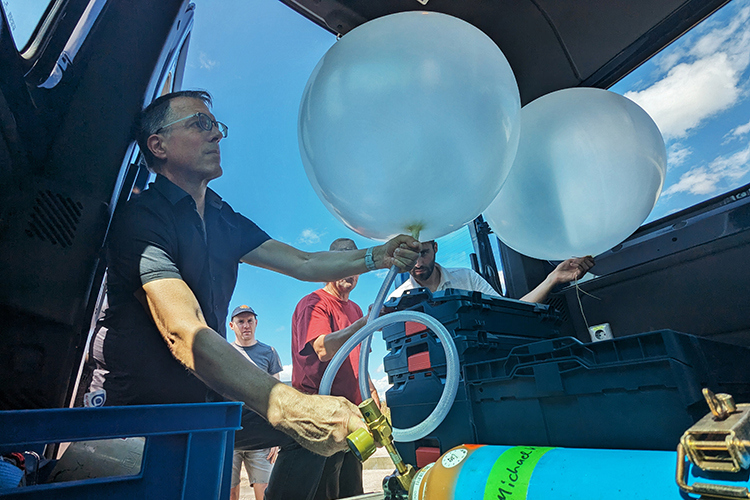
Filmmaker Torsten Mehltretter joined our storm-chasing team for a documentary for ARTE.
link (in German)
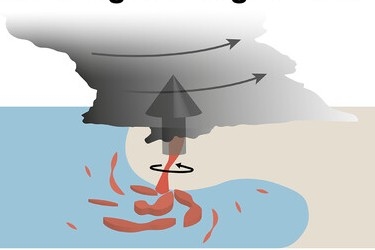
In Europe and Germany there is a rising interest in tornadoes, but how do the whirlwinds form?
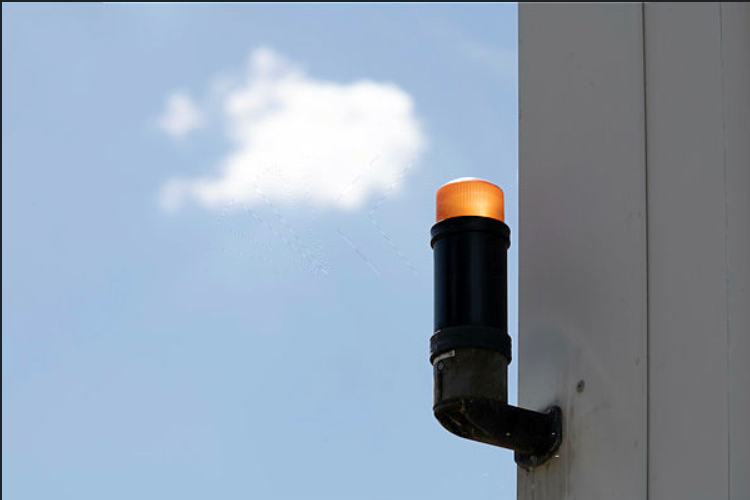
Contribution to the warning day on 12 September
link (In German)

Magnitude matters in disaster risk models, but it also matters in the medal tallies. In the "new" medal tallies, Germany is ranked 7th instead of 9th.
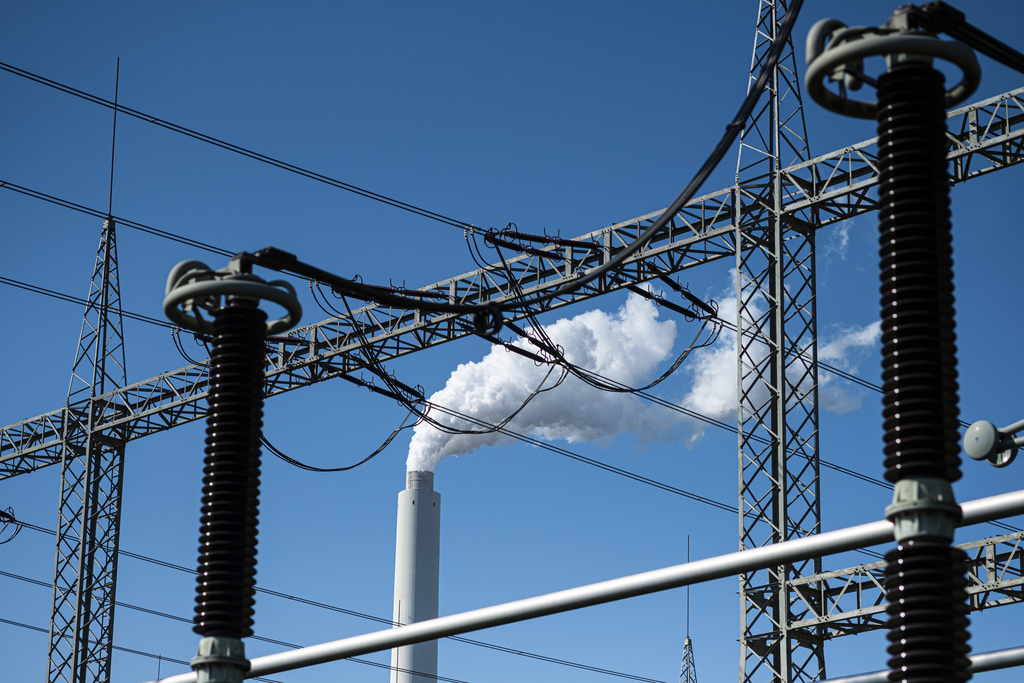
Development of a model for a spatial planning concept for microgrids.
link (in German)
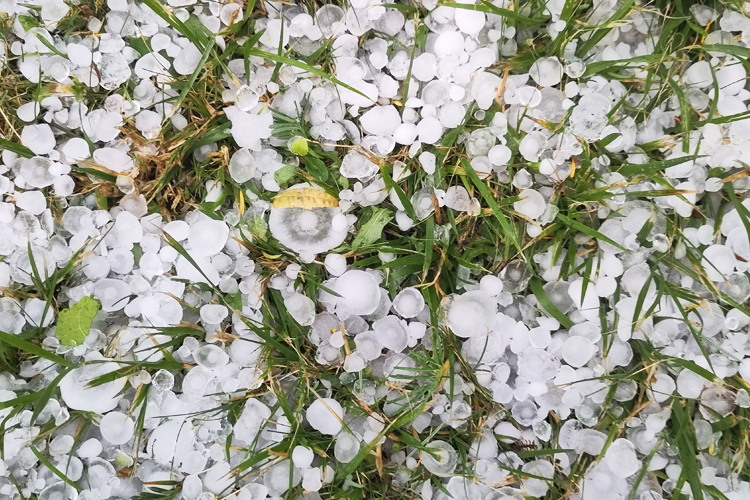
Michael Kunz in the weekly review Stuttgart
link (in German)
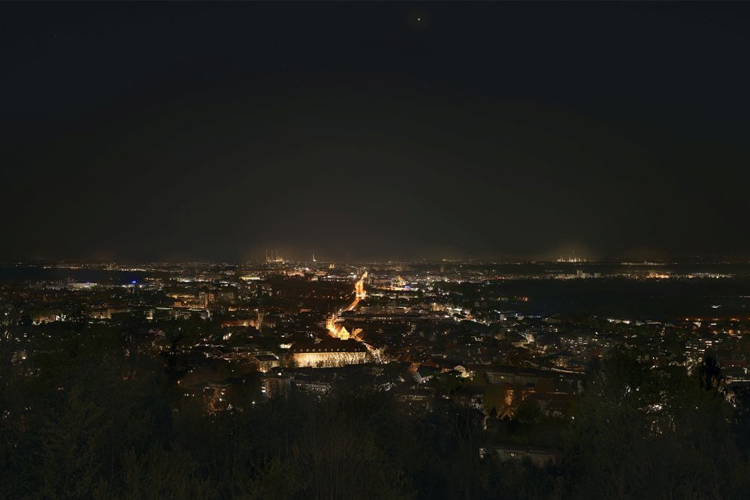
CEDIM researchers have developed a model that takes into account the fair design of decentralized energy systems.
link (in German)
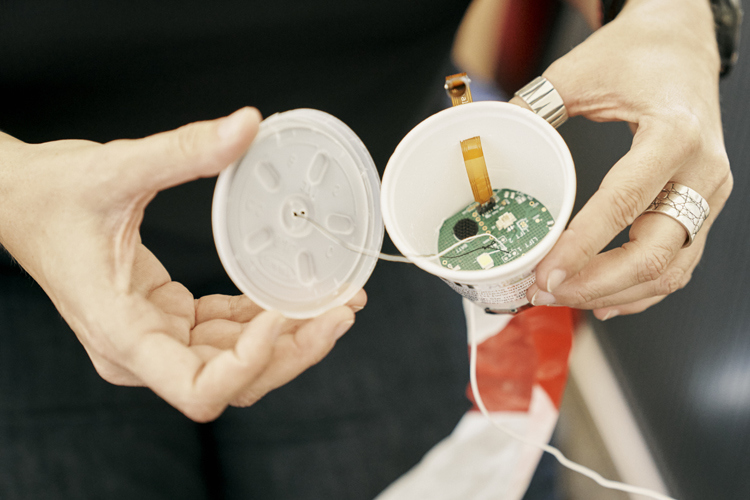
The LIFT research project aims to improve hail forecasting; Michale Kunz in an interview with Stefan Fuchs from Campus-Radio (in German).
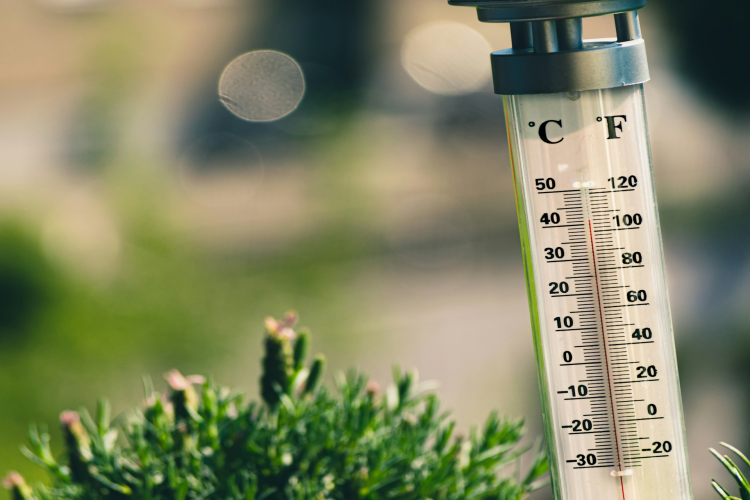
Development of methods to spatialy visualise thermal comfort in heterogeneous urban areas using remote sensing data.
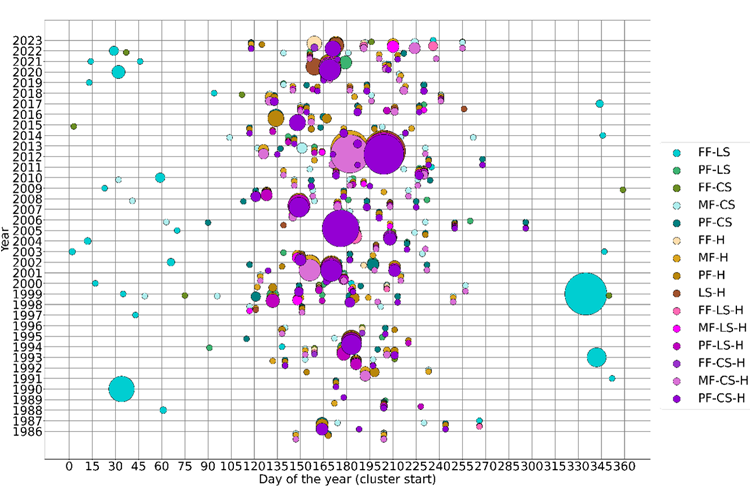
Clusters of different hydro-meteorological extremes occur particularly in the summer and are only statistically significant with an event definition of a fixed length.
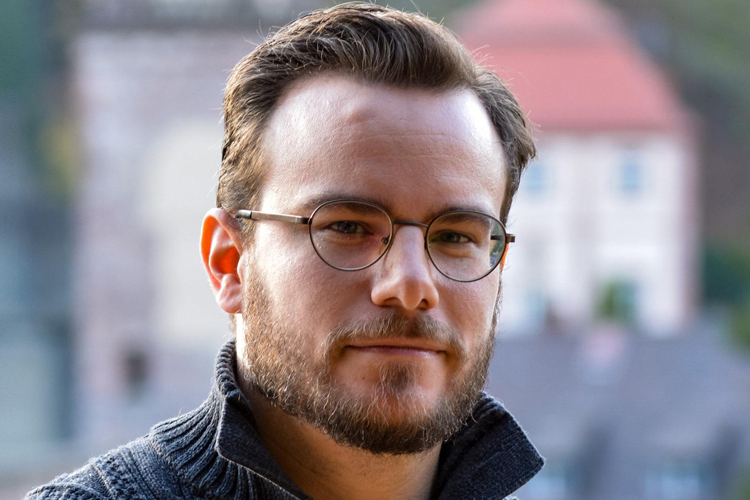
Earthquakes continue to cause destruction and loss of life worldwide. In the Planet Wissen contibution, Andreas Schäfer explains on the challenges of disaster research, the relevance of damage estimates, and the earthquake safety of buildings (in German).
_750x500_rdax_98.png)
Studying at KIT means: excellent, research-oriented teaching, international orientation, diverse campus life, and countless other possibilities and opportunities, including a better understanding of natural disasters and helping to adapt to them.
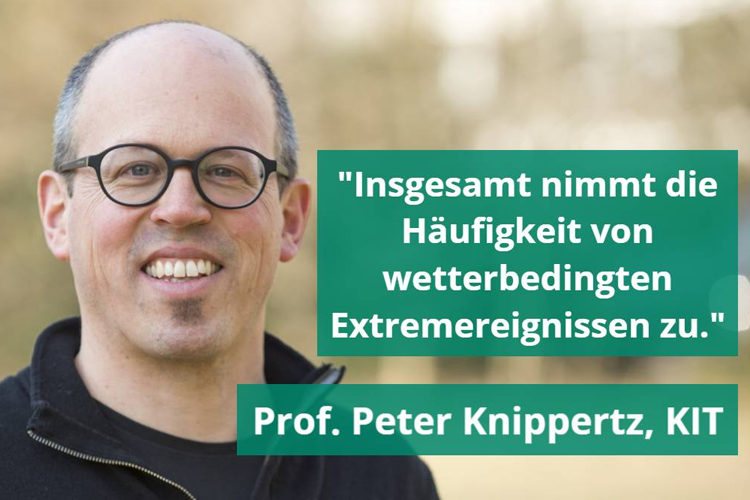
Podcast with Peter Knippertz about the Ahr flood 2021, the two related CEDIM papers, climate change and flood protection.
link (in German)
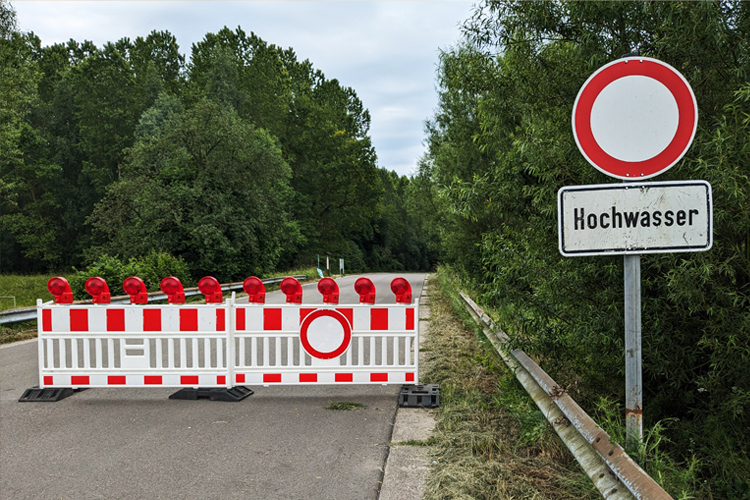
The worst of the June floods in southern Germany is over. The debate about the consequences is now underway. CEDIM colleague Andreas Schäfer explains what steps need to be taken.
link (in German)
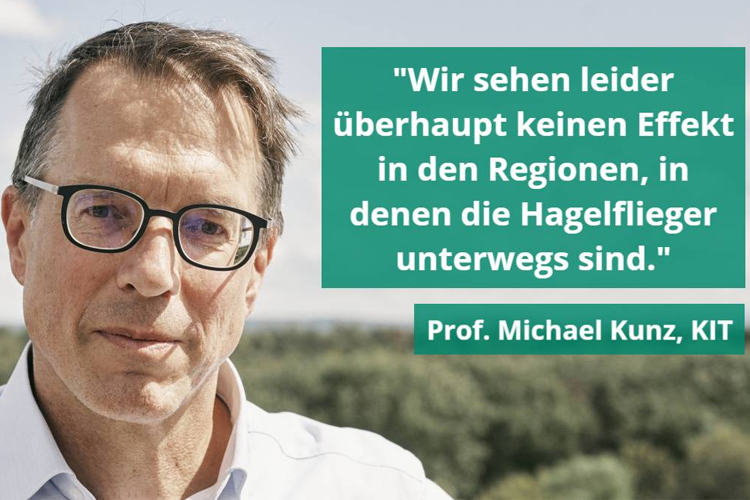
Do hail suppression by aircraft protect against storm damage? This has not been scientifically proven, according to hail researcher Michael Kunz in an SWR report.
link (in German)
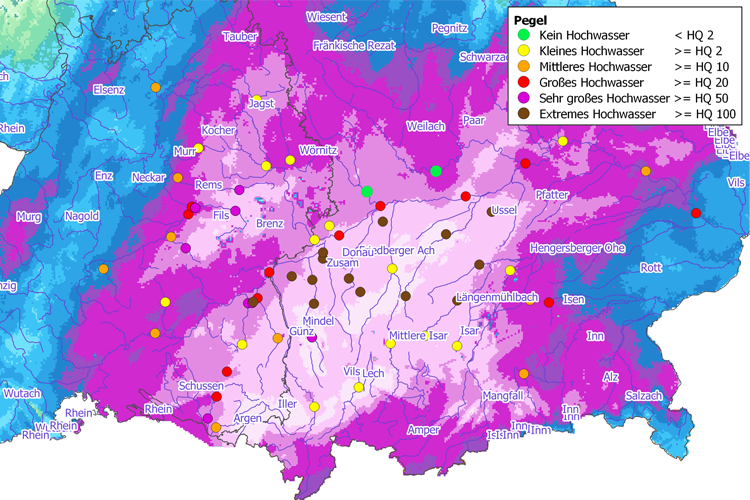
As of June 6, 2024
pdf (In German)
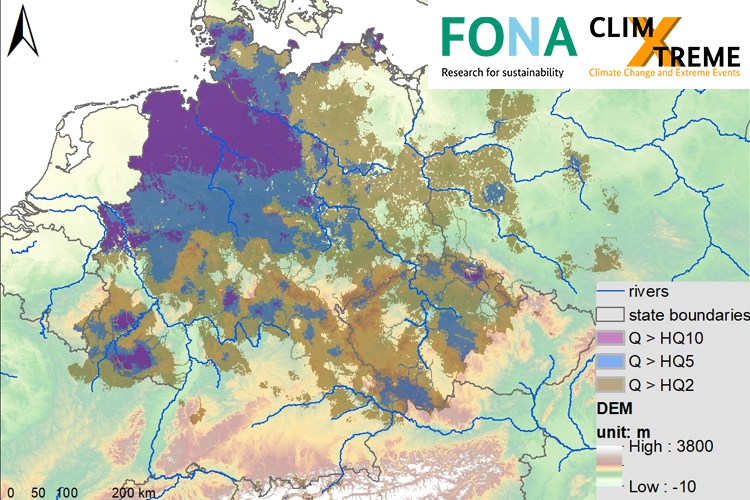
CEDIM participation regarding impact analysis on people and buildings
link (in German)
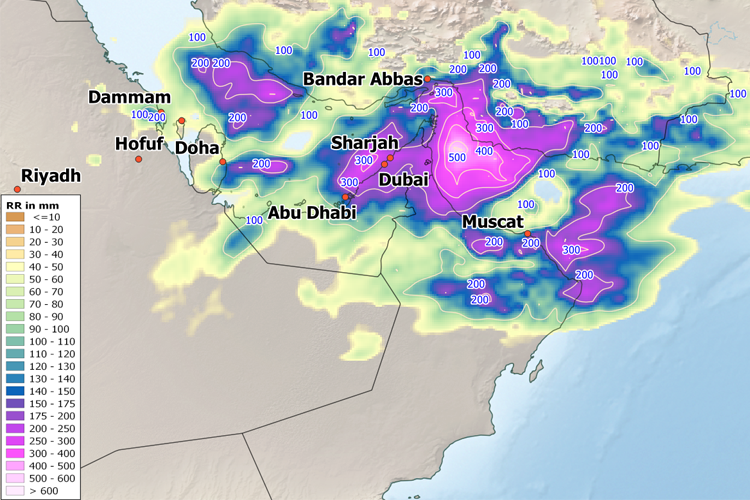
Short Report as of 24 April 2024
pdf (in German)
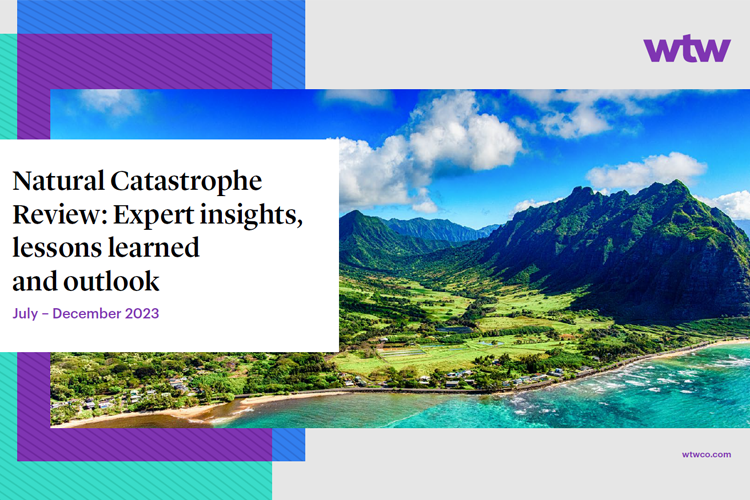
In July 2023, northern Italy witnessed two unprecedented European hailstone records. These occurrences prompt
questions about the influence of climate change on such extreme events and the potential for increased severity in the future.
link (see Section 2.2)
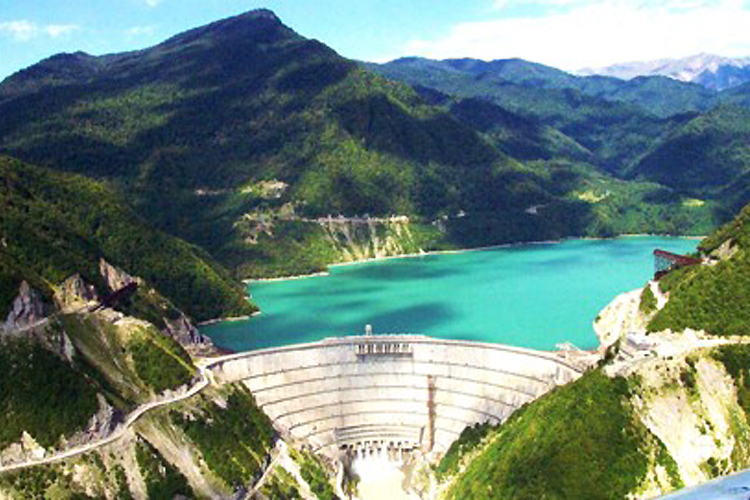
Based on AI-based correlation analyses and hydrological models, a first prototypical demonstrator for visualizing the relationship between dam deformation and various influencing factors has been implemented.
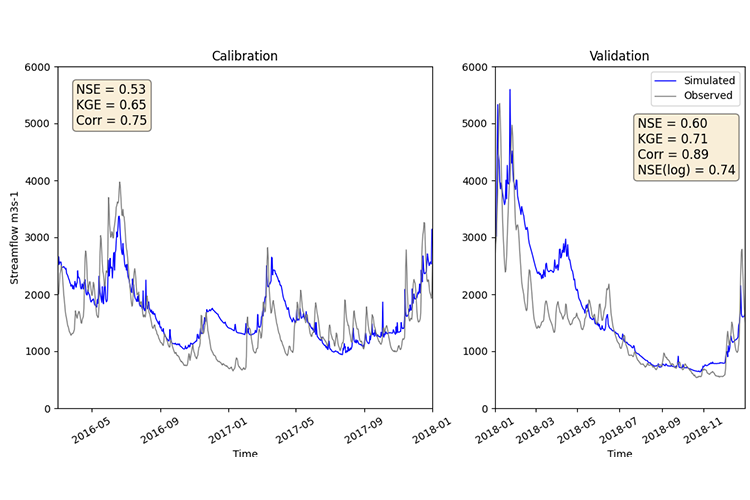
New options for calibrating the numerical hydrological model WRF-Hydro for recording extremely low discharges in the Rhine River.
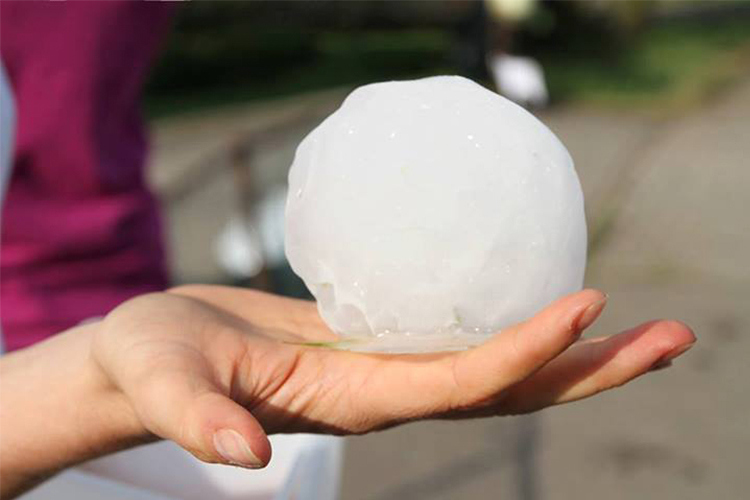
Valuable data for the insurance industry: Satellite data is used to estimate the spatial distribution and return periods of hail.
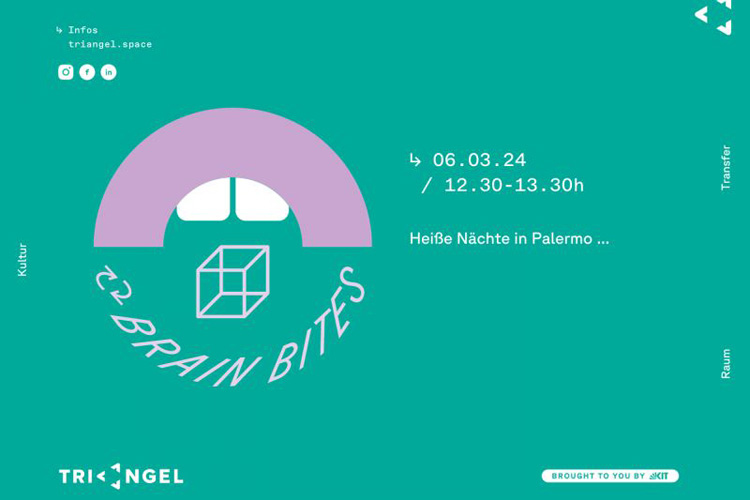
6 March 2024 12:30 Uhr – 13:30 Uhr in the Triangel
Speaker: Susanne Benz
link (in German)
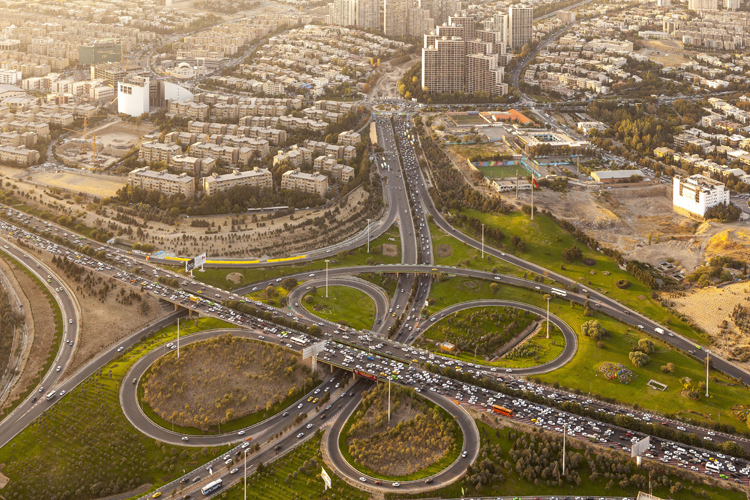
The INCREASE-MIA subproject, led by KIT is addressing the complexities of urban resilience assessment, offering in-depth analyses and practical pathways towards disaster-resilient urban development.
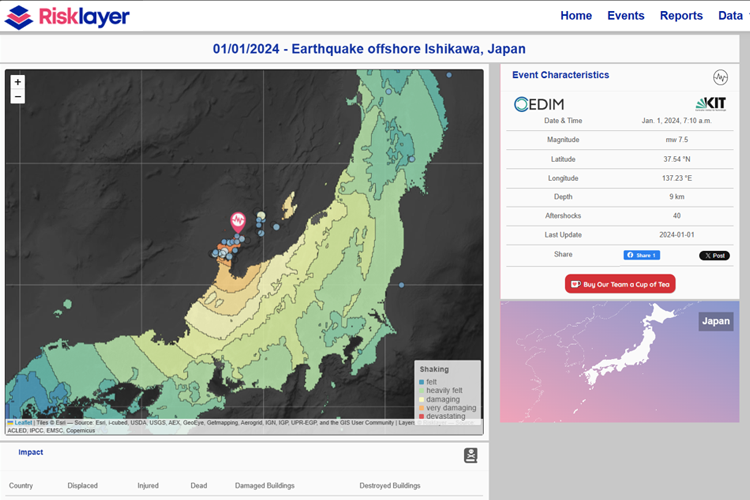
The CEDIM/Risklayer Explorer brings together new and comprehensive data and analysis on disasters and risks – Continuously and in near real-time.

Disaster researcher Andreas Schäfer live on the programme "Leute" on SWR1 Baden-Württemberg on Monday, 29 January 2024 at 10:00 a.m.
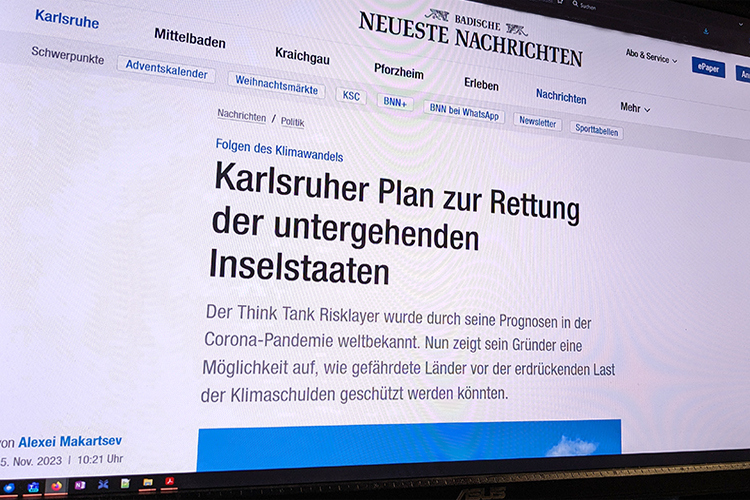
BNN reports on the CEDIM spin-off Risklayer and the latest report on the plan to save the sinking island states.
link (in German)
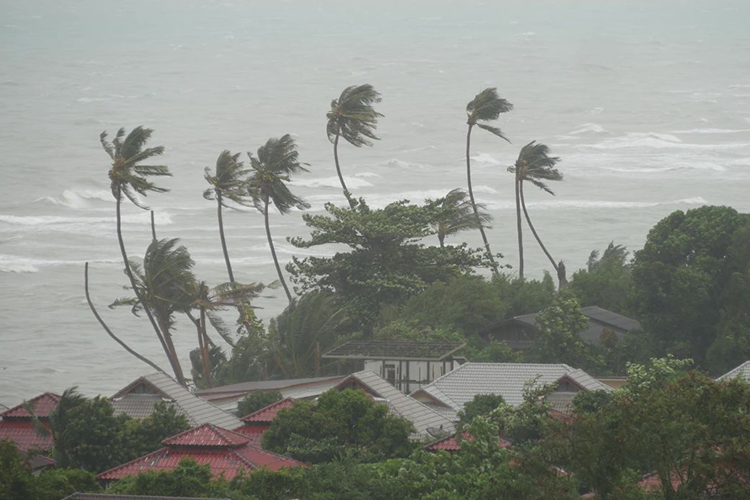
International study in the run-up to COP28: Public-private partnerships could help protect developing countries from the financial consequences of climate change.
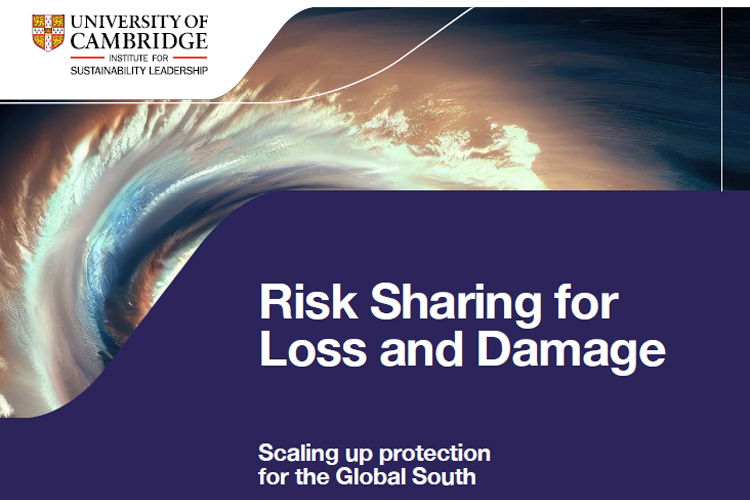
Together with the University of Cambridge, CEDIM together with Risklayer lauches a Loss and Damage action plan to scale up protection for the Global South.
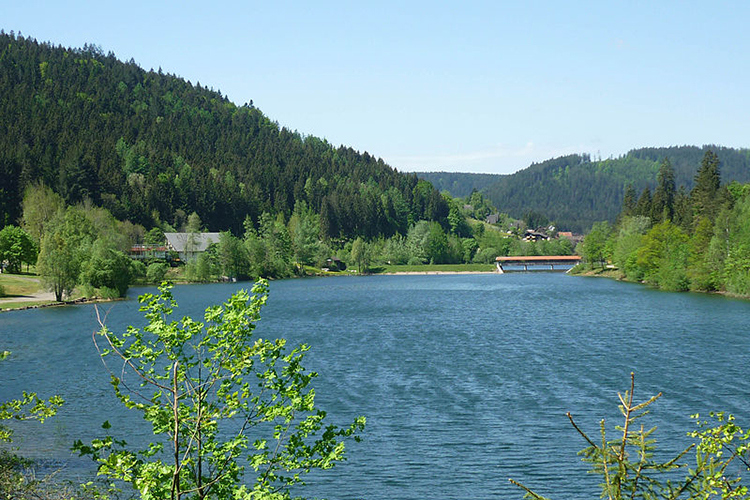
Flood reservoirs in Baden-Württemberg are shown to be capable of supplying millions of cubic meters of water to mitigate potential droughts in rivers.
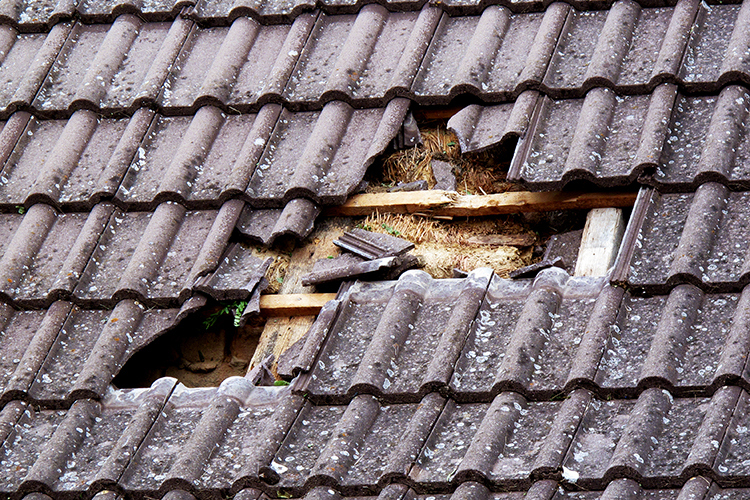
This project investigates temporal clustering of different extremes based on building insurance data.
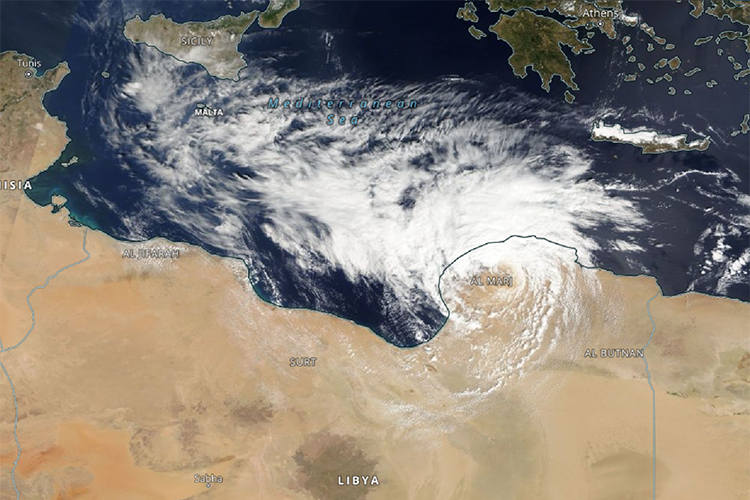
Short report as of 20. October 2023
pdf (in German)
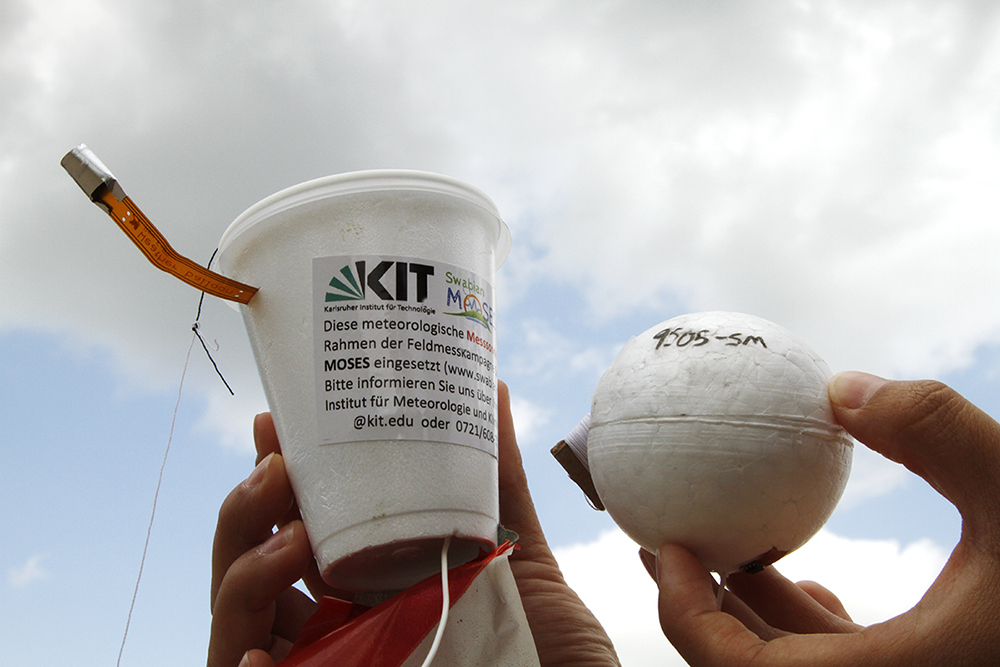
Climate change could make thunderstorms more dangerous. Researchers are therefore chasing thunderstorms to better understand them.
link (in German)
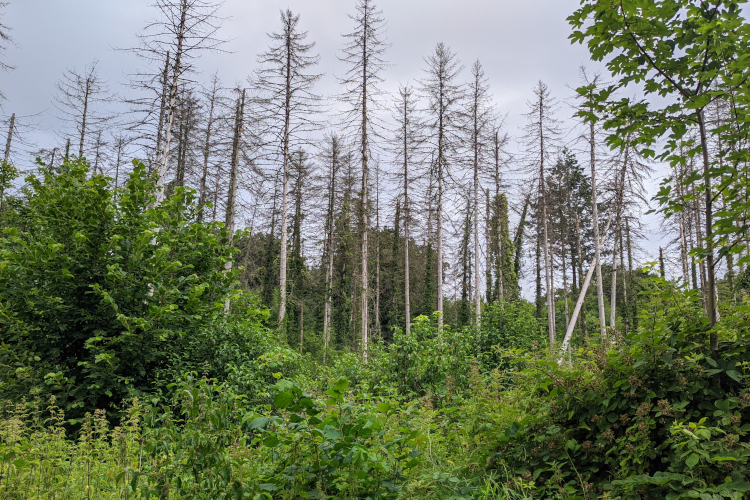
Drought vulnerability and extreme bark beetle outbreaks threaten spruce trees in Central Europe.
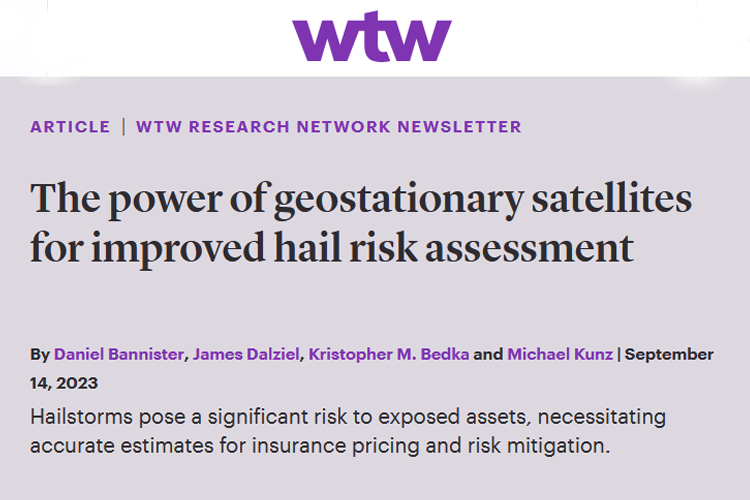
The power of geostationary satellites for improved hail risk assessment
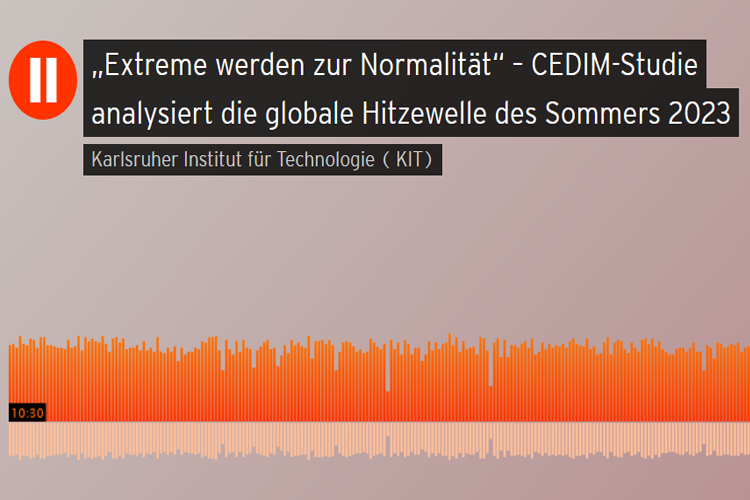
Andreas Schäfer talks to the SRH Campus Report about the heat records in summer 2023.
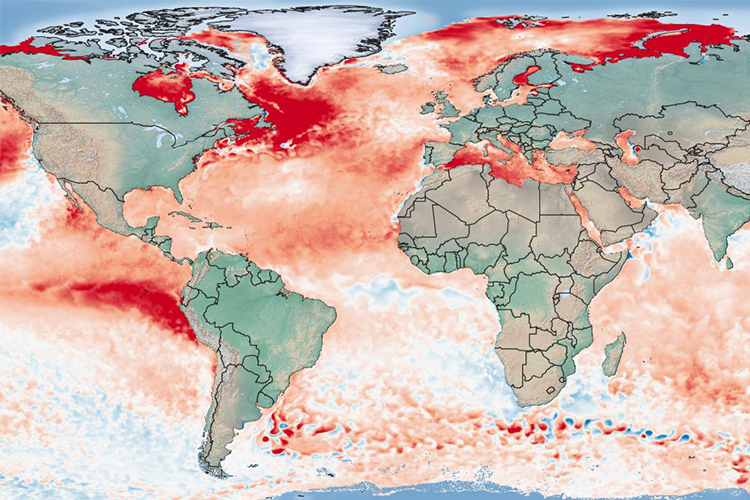
KIT press release on CEDIM report on this year's temperature records in the northern hemisphere - heat hotspot in Europe was Italy by far.
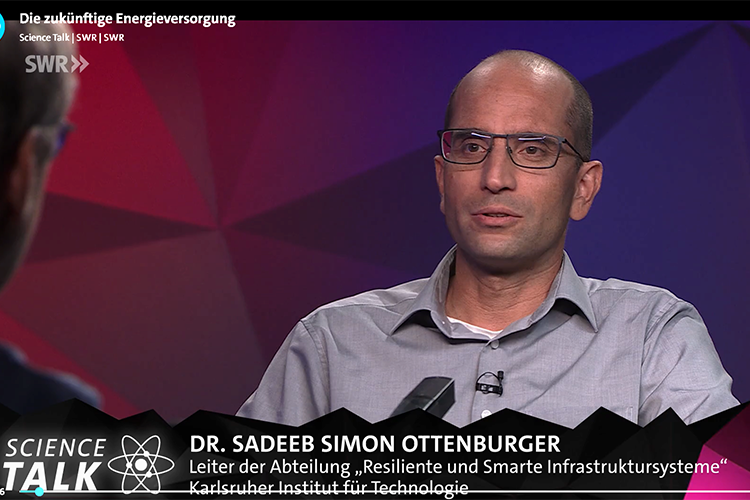
How can critical infrastructures be made sustainable and resilient? Dr. Sadeeb Ottenburger as a guest at the SWR Science Talk.
link (in German)
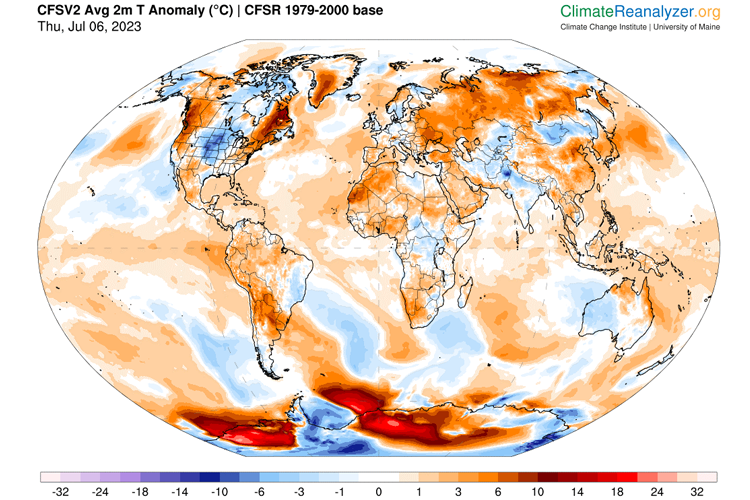
The summer of 2023 was characterised by a series of heat waves of varying length and intensity, which in some places significantly exceeded previous all-time temperature records.
pdf (in German)

Based on satellite data, the spatial distribution and thus the risk of hailstorms in South America is estimated.
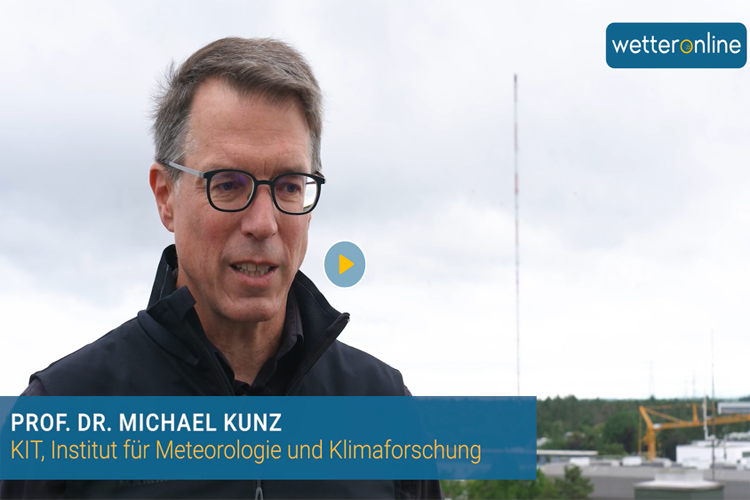
With a total damage of 3.6 million euros, the storms of 27/28 July 2023 were the most expensive hailstorm event in Germany. Marco Kaschuba from WetterOnline together with Michael Kunz in recap.
link (in German)
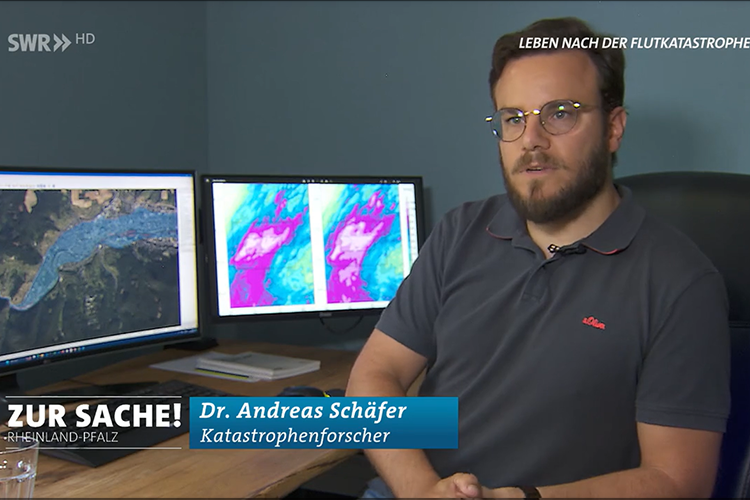
link (in German)
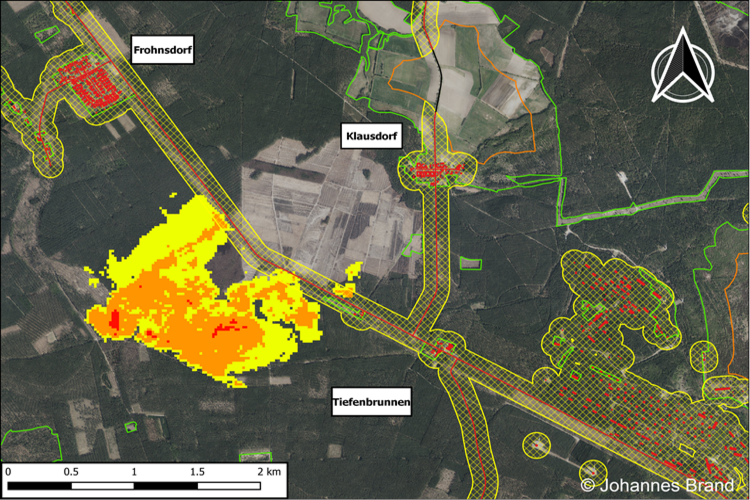
WUI mapping and assessment of forest fire vulnerability can help identify settlements that are most likely to be affected by forest fire.
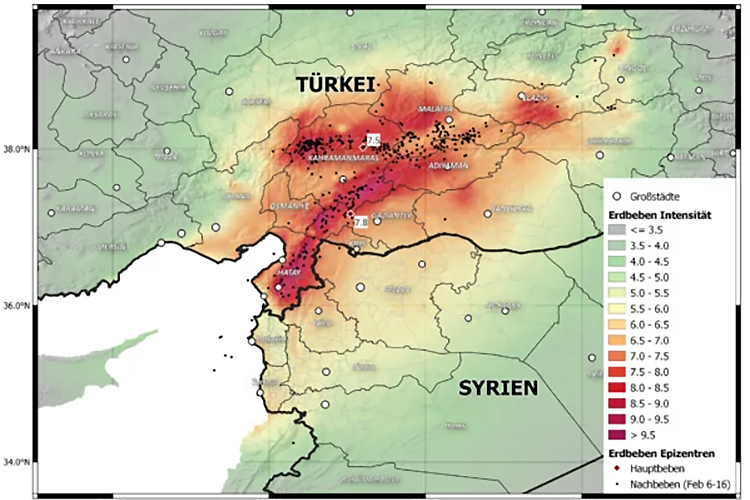
6. July 12:30 Uhr – 13:30 Uhr in the Triangel
Speaker: Andreas Schäfer
link (in German)
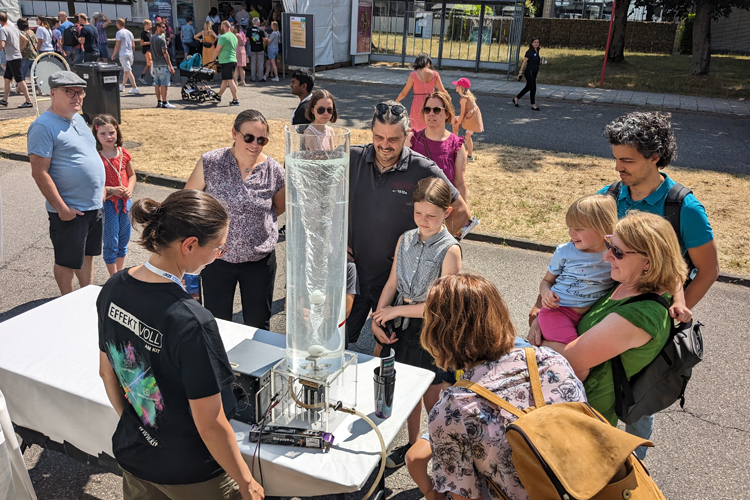
CEDIM attended the science festival "Effects 2023" at Campus North.
link (in German)
%20Panther%20M_rdax_98p.jpg)
Researchers at CEDIM support the Ukrainian authorities on the subject of nuclear safety in the event of damage to one of the four nuclear power plants in the country.
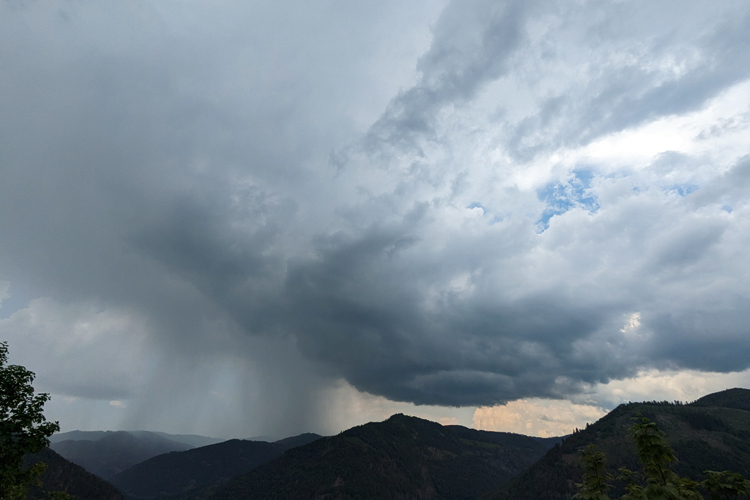
Michael Kunz in an interview with RadioEins about the SwabianMOSES measurement campaign, the development of thunderstorms & hail and about storm chasing.
link (in German)
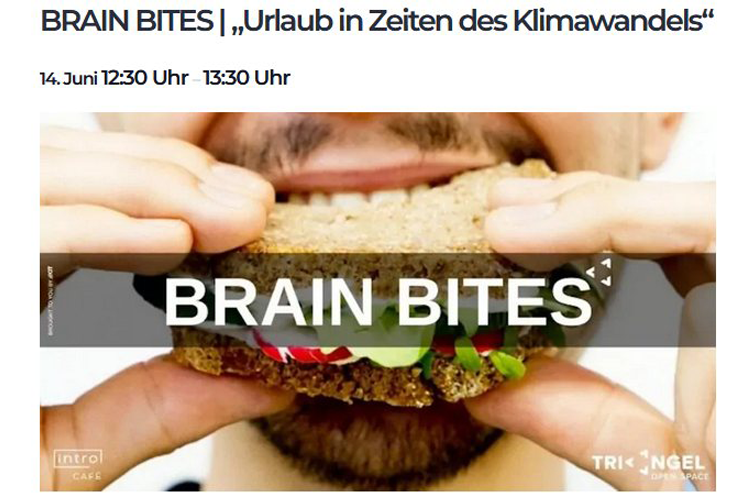
14. June 12:30 Uhr – 13:30 Uhr in the Triangel
Speaker: Dr. Andreas Schäfer
link (in German)
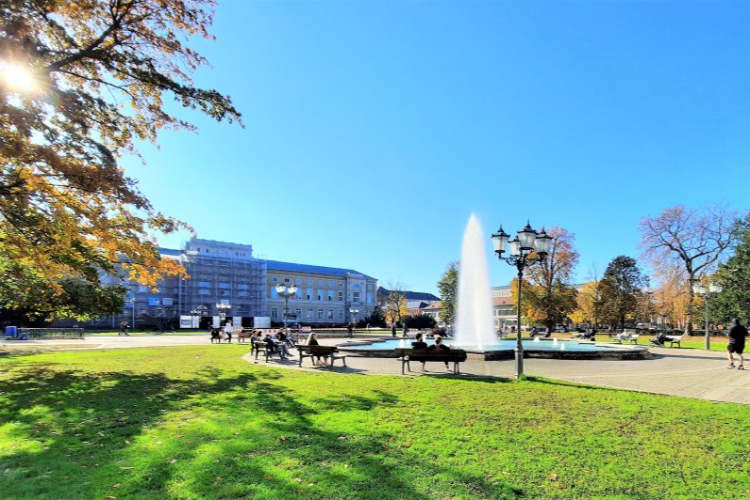
The CEDIM PhD project on summer heat investigates the relationship between remote sensing observations, local measurements, and subjective perceptions of the population in downtown Karlsruhe.
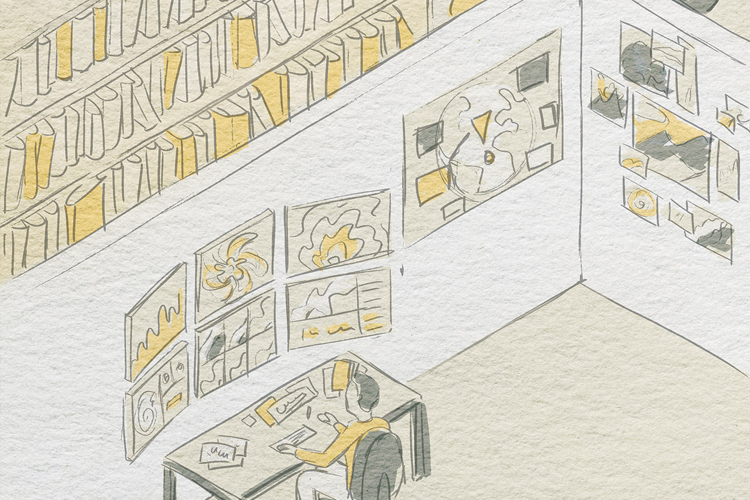
University professorship (W3) “Impact-Based Forecasting”

University professorship (W3) “Decision making under high risk and high uncertainty”
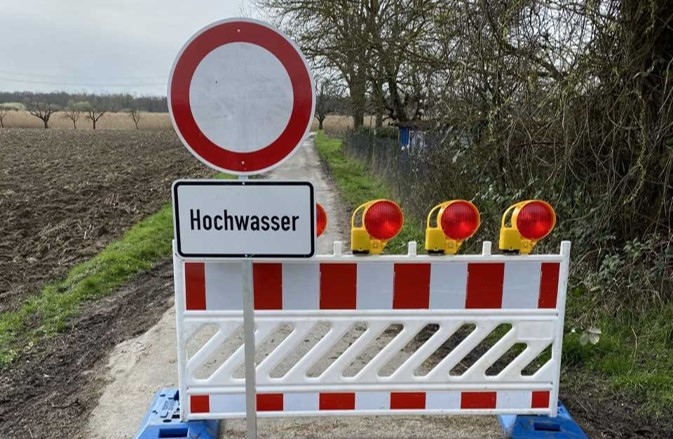
Flood events have a major impact on traffic volume, travel radius, mode choice and trip purposes.
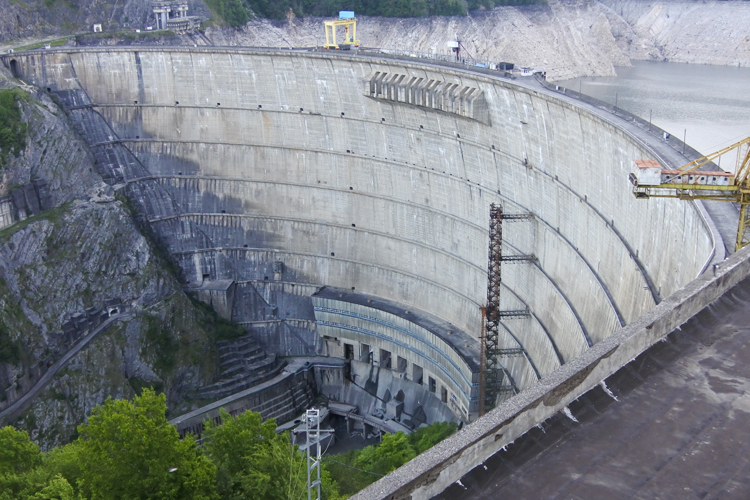
A nested deep neural network-based correlation analysis for risk-forecasting was developed as the core module of an early warning system.
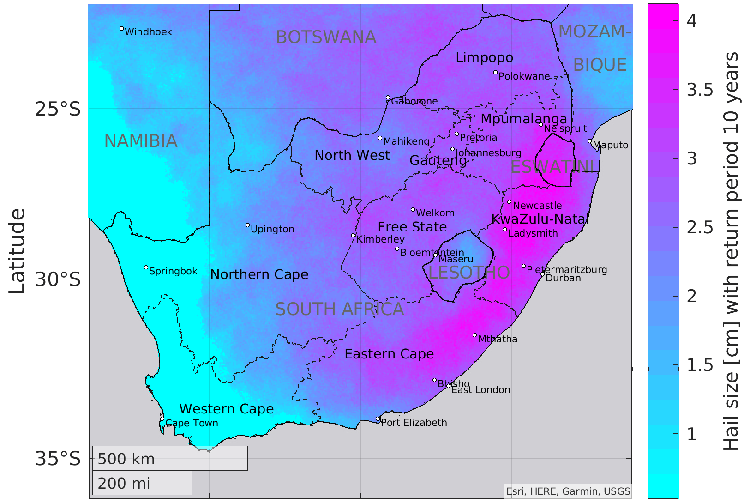
Within the framework of the "Willis Hail Hazard Assessment" project in cooperation with the Willis Research Network, the hail hazard in South Africa has been estimated.
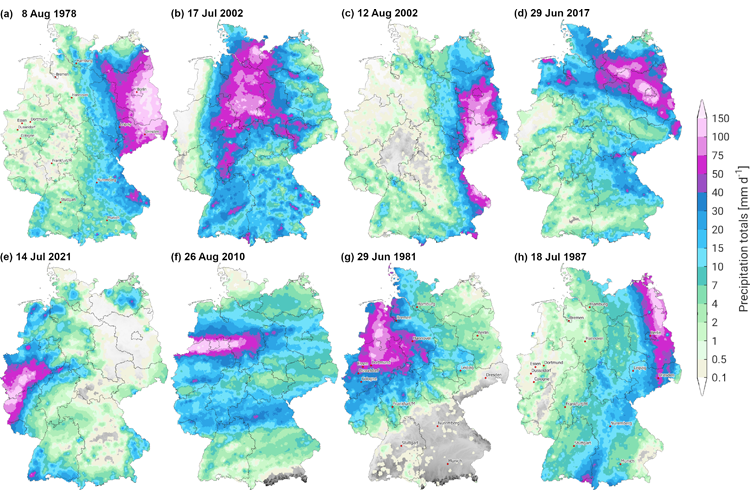
PART2 of the July Flood 2021 two-paper series was also selected by NHESS editors as a Highlight Paper.
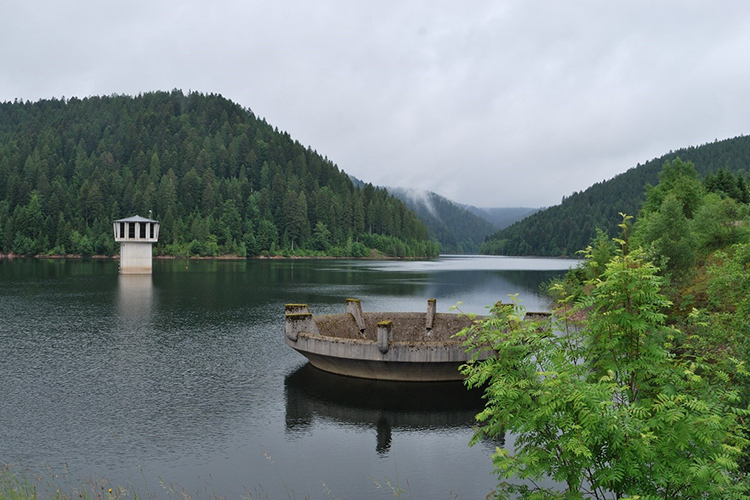
Preparing for the future
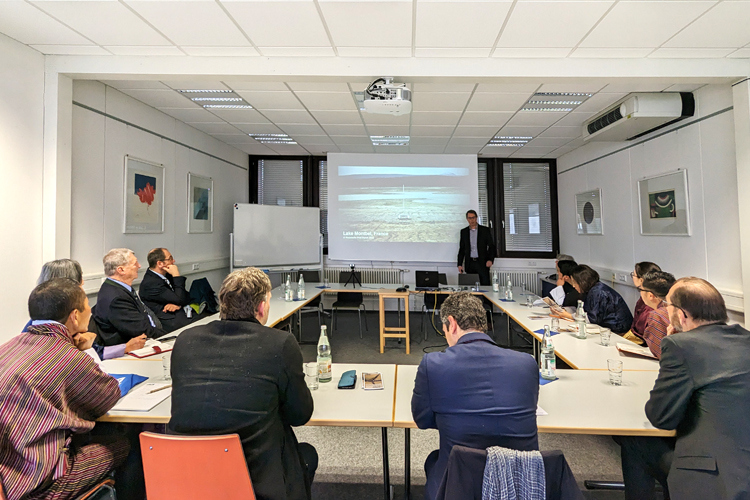
During his visit to KIT, the Prime Minister of the Kingdom of Bhutan, Dr. Lotay Tshering, also informed about research at CEDIM.
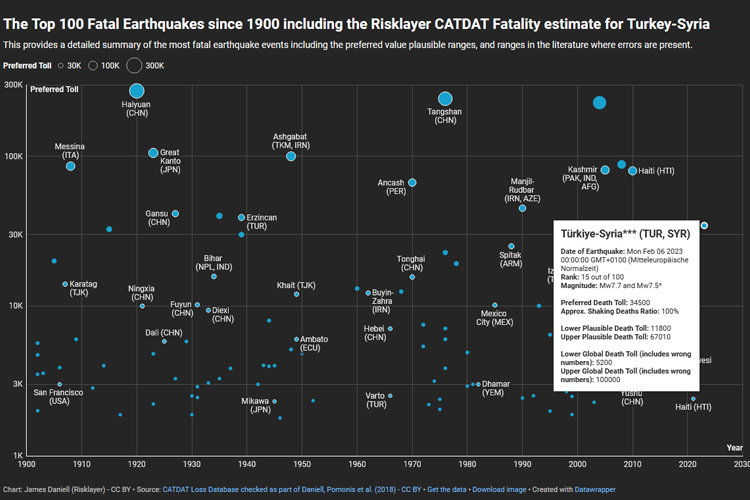
SRH Campus Report in conversation with Andreas Schäfer about the earthquake in Turkey/Syria in February 2023.
link (in German)
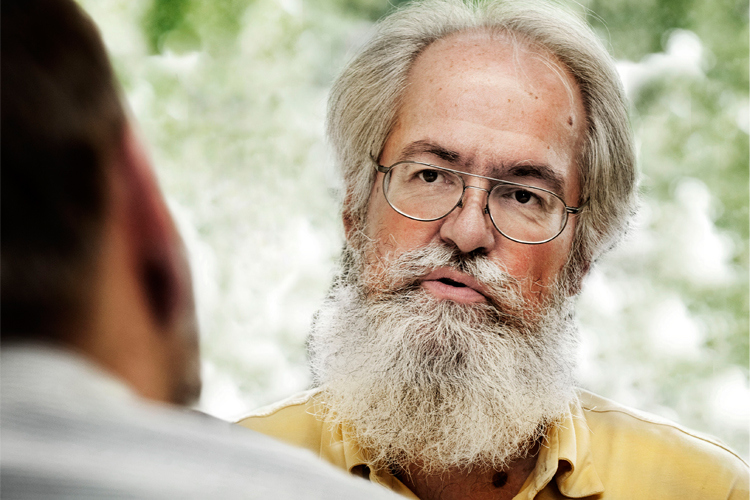
To prepare Ukraine for a nuclear catastrophe, researchers of CEDIM support with a prediction system. Wolfgang Raskob in an interview with SWR.
link (In German)
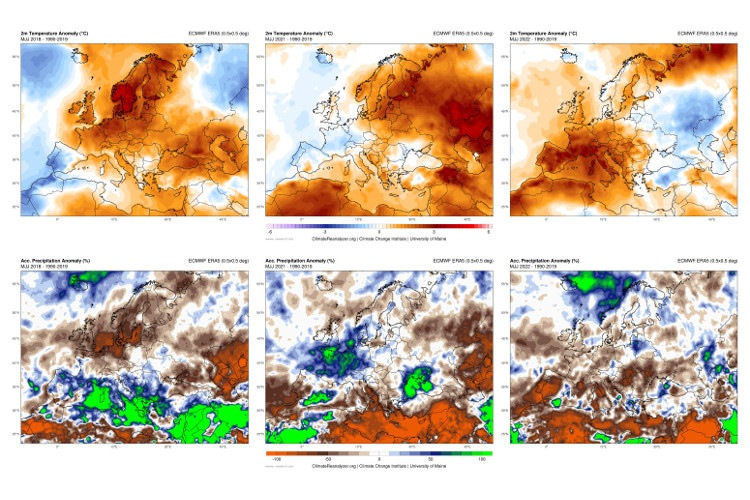
High temperatures and absence of precipitation contributes to more recurrent drought events in the Rhine River Basin.
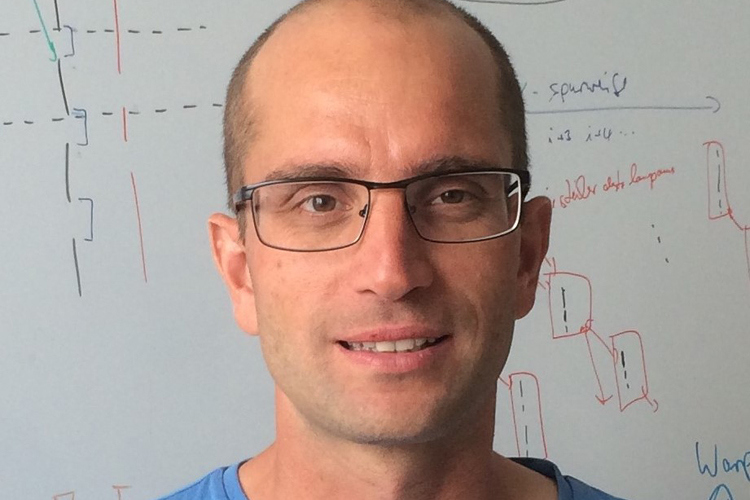
KIT experts on current issues
link (In German)
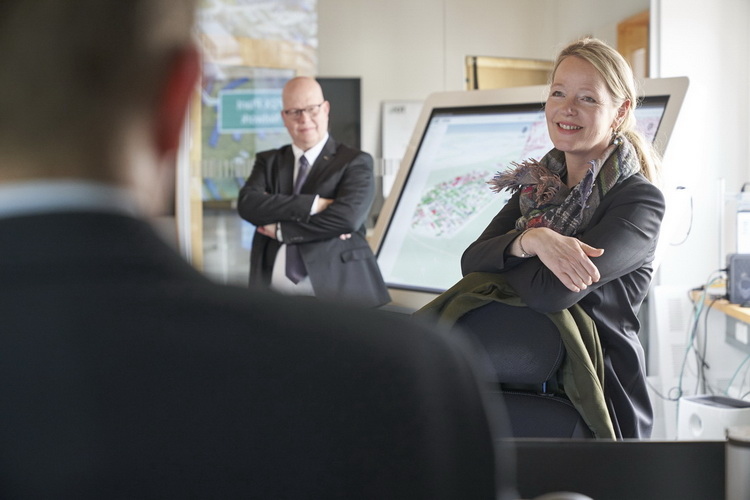
During her visit at KIT, Baden-Württemberg's Minister for the Environment, Climate and Energy Thekla Walker also informed about research at CEDIM.
link (In German)
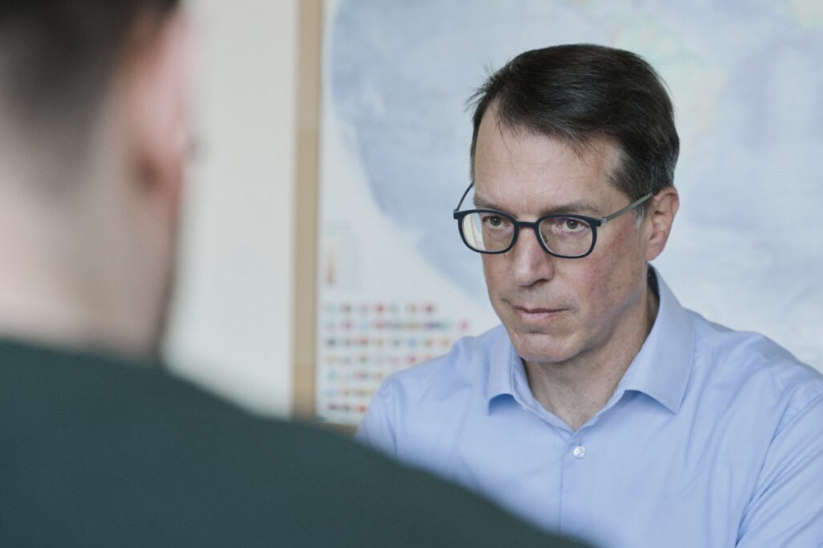
CEDIM spokesman Michael Kunz answers in the KIT student magazine ClicKIT
link (In German)

KIT experts on current topics
link (In German)

FDA Report No.1 "Kahramanmaraş & Elbistan Earthquake Turkey", as of 08 February 2022
pdf (in German)
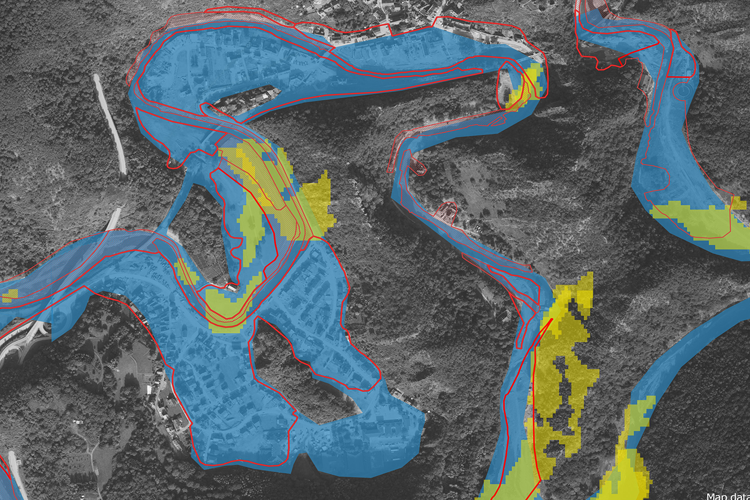
PART1 of the July Flood 2021 two-paper series was selected by the NHESS editors as a Highlight Paper
link
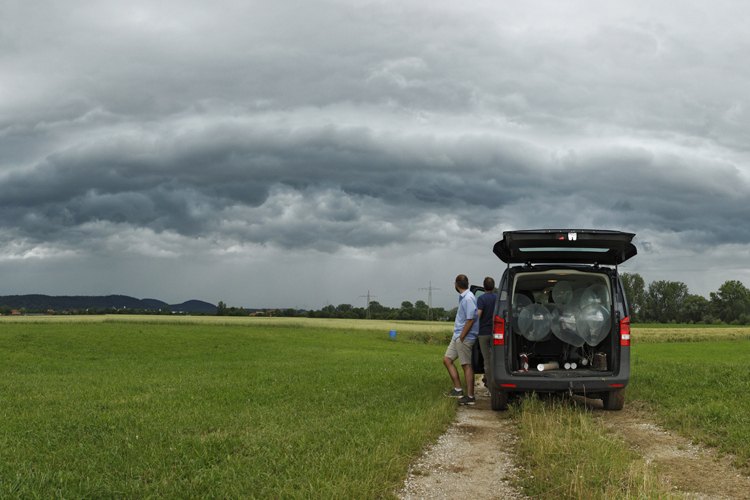
Helmholtz Challenge #156 from CEDIM
link
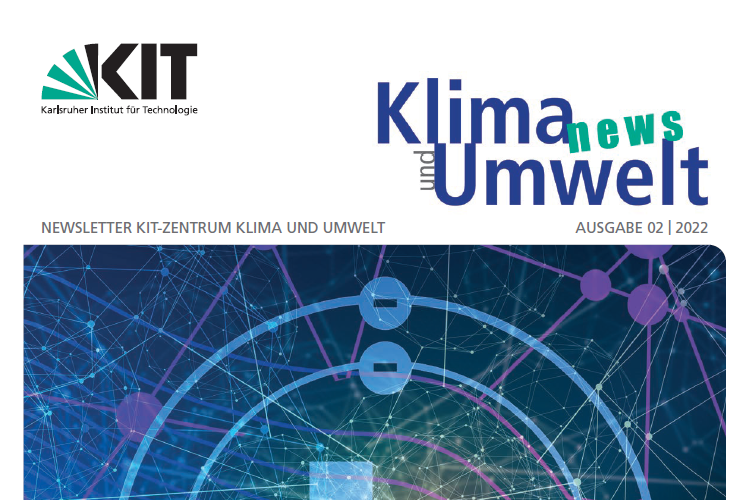
On the trail of a mystery in the new Newsletter of the KIT Climate and Environment Center (In German)
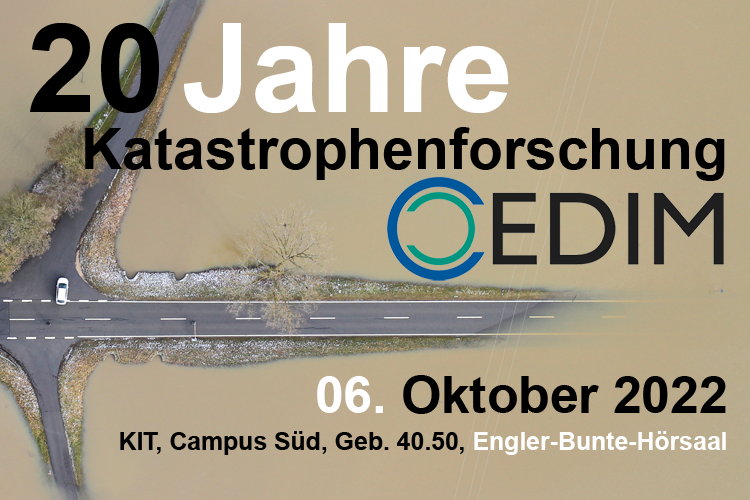
CEDIM celebrates its 20th anniversary this year. We want to celebrate this occasion together with active and former staff members, supporters, cooperation partners and friends.
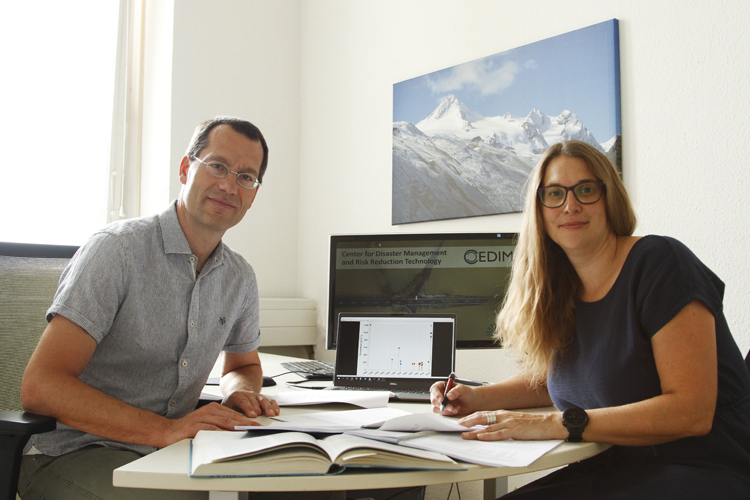
CEDIM in conversation with the journal "Hydrologie & Wasserbewirtschaftung (HyWa)" about the collaboration between meteorologists and hydrologists and about the Eifel flood in July 2021 (in German)

As a follow-up to our FDA activity last summer, Part 2 on the July 2021 flood is out now. Part2 places the 2021 event in the historical context of precipitation and runoff records and changes in valley morphology over time. We also evaluate the role of current and future climate change in altering precipitation totals and associated flood hazards, and the implications for flood management.
link

New in the portal "KIT Experts": Sadeeb Simon Ottenburger on the resilience of critical infrastructures.
link (In German)
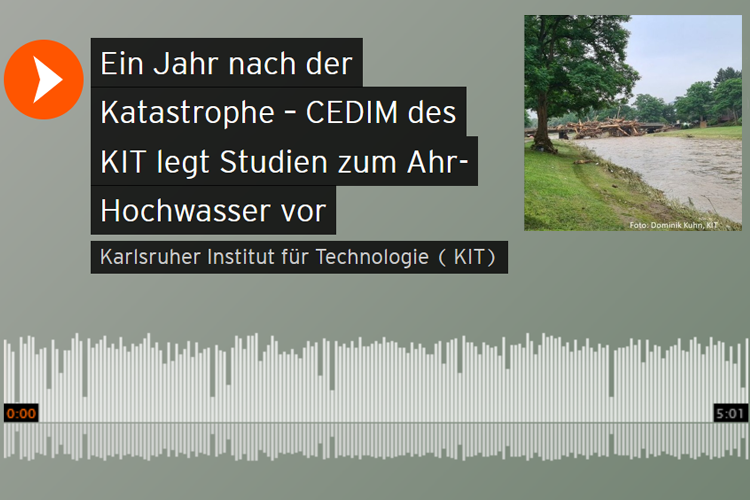
In the night of July 14 to 15, 2021, the unthinkable happened in Germany. A torrential rainfall of up to 150 liters poured into the narrow valley of the Ahr in the Eastern Eifel. SRH Campus Report talks to Susanna Mohr about new results that have recently been published.
link (in German)
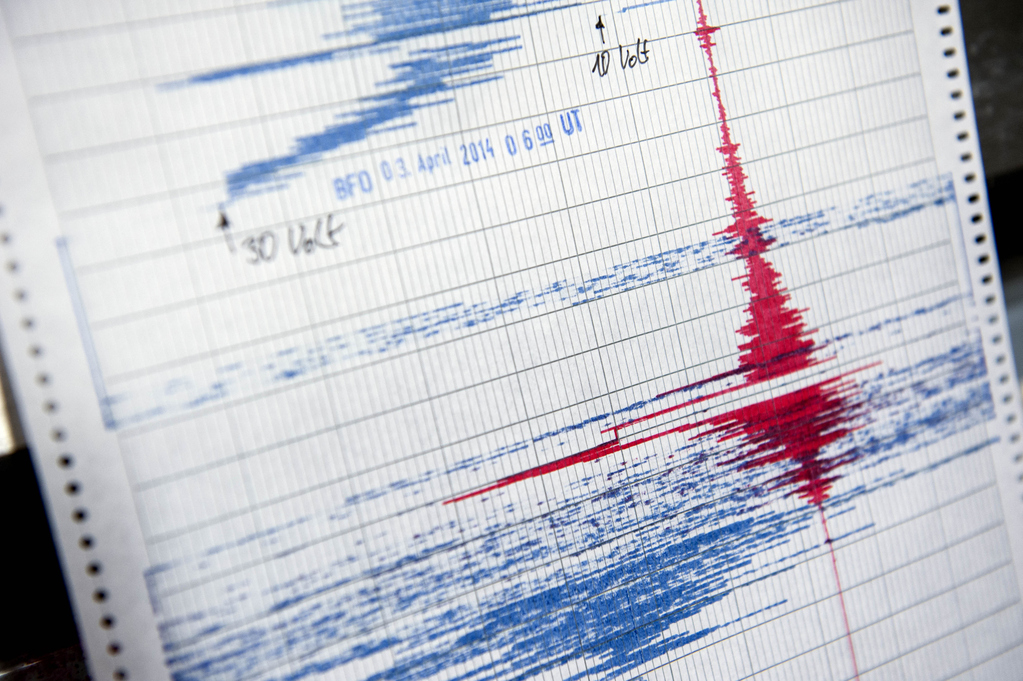
With Andreas Schäfer in the BR Podcast "Earthquake-Proof Architecture - Prepared for "The Big One"
link (in German)

The planned real-world lab called ERNIE (Real-time decisions in the presence of risky ignorance in the impact prediction of extreme events), to be launched at KIT in 2023, focuses on forecasts and analyses of the impact of short-term extreme events as well as long-term climate changes and their interactions with society, economy, and the environment in urban areas. The way society deals with risks and uncertainties is of particular importance here.
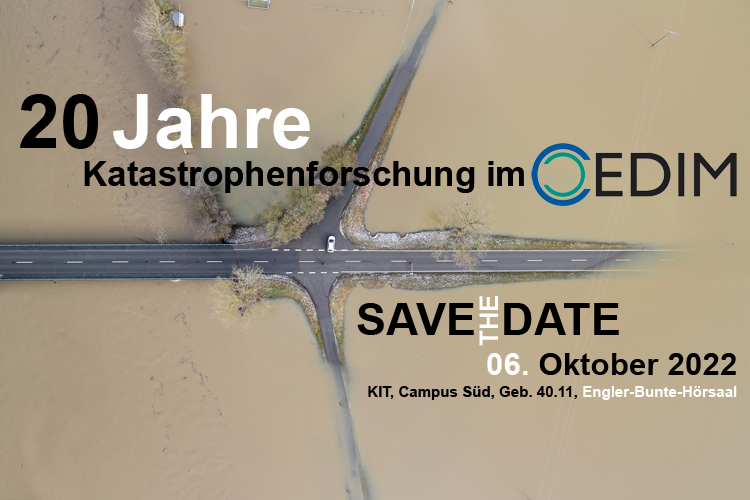
20 years of disaster research at CEDIM
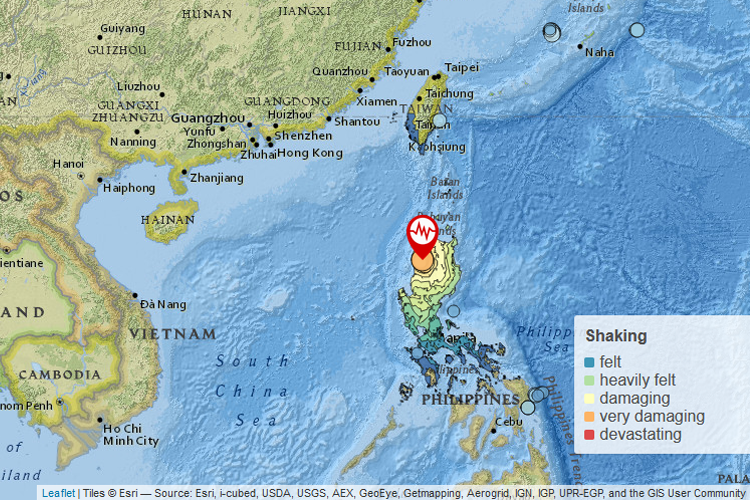
Very strong and damaging today (27.7.2022) in Abra (Luzon, Philippines). Current information in our Risklayer Explorer at link
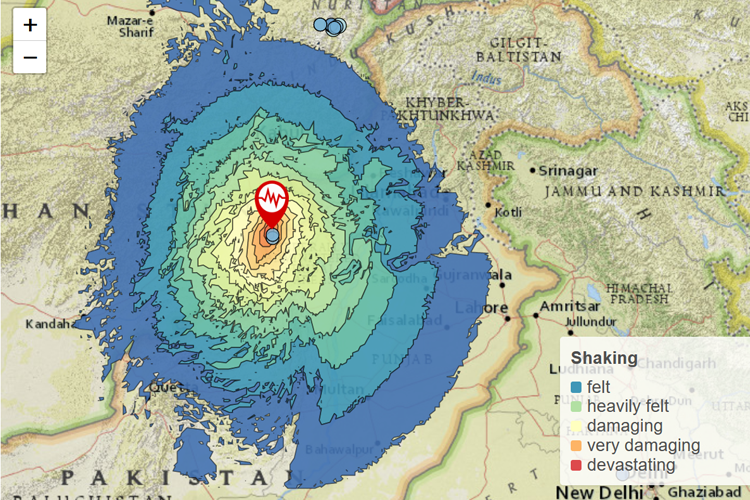
Short Report as of 5 July 2022
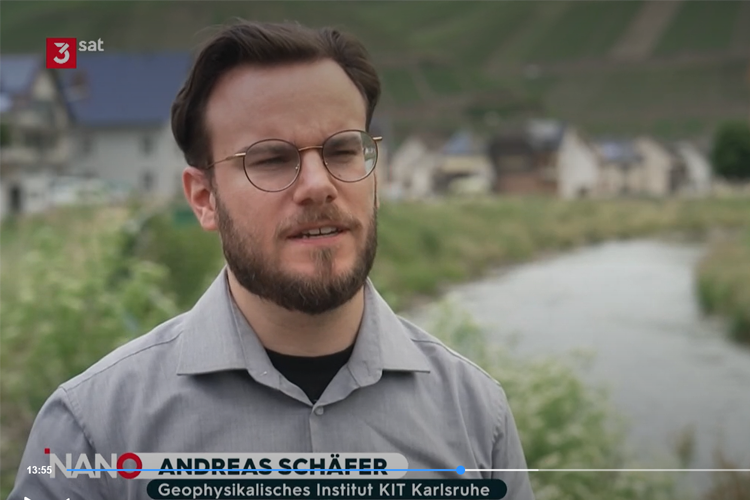
One year after the flood in the Ahr valley: What meteorological causes led to the disaster? What lessons are learned and how can science help? Media report with Andreas Schäfer.
link (in german)
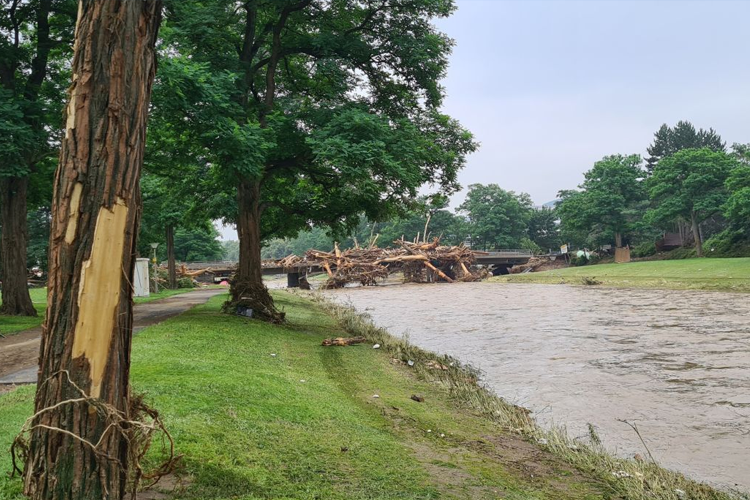
KIT press release on our current studies on the flood disaster in the Eifel in 2021 including the future development of such extreme events

Taking into account large uncertainties and systemic risks, a team within CEDIM is using mathematics, AI and simulations to develop systems for early warning, planning and real-time management.
link
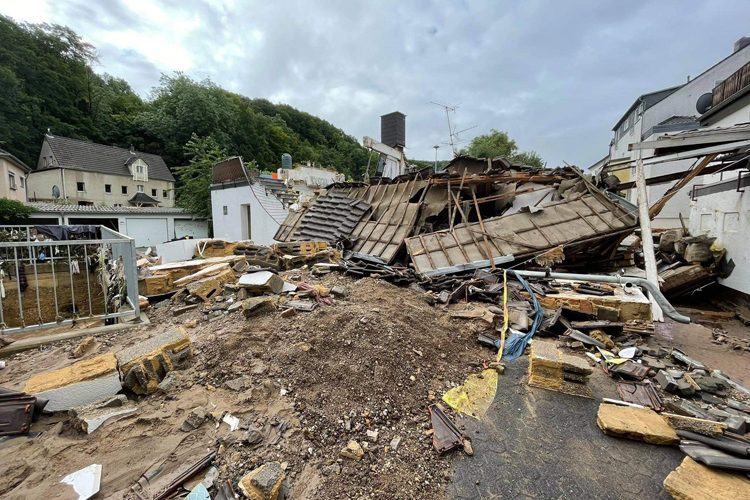
A year has passed since the flood disaster in the Ahr Valley. What are the most important improvements that have been made in dealing with flash floods? Are there important areas where too little progress has been made? Researchers, including Michael Kunz and Susanna Mohr, address these and other questions in the Helmholtz Flood Focus:
link

For people with disabilities and senior citizens, the consequences of natural hazards are often particularly severe. As studies also show, they are disproportionately represented among the fatalities. Christina Helberg, together with Andreas Schäfer, examines the question of how well people from vulnerable groups in Germany are protected in extreme situations.

Effective Disaster Risk Management involves planning for the expected and adapting to the unexpected, leading to a continuous process of resilience.
link
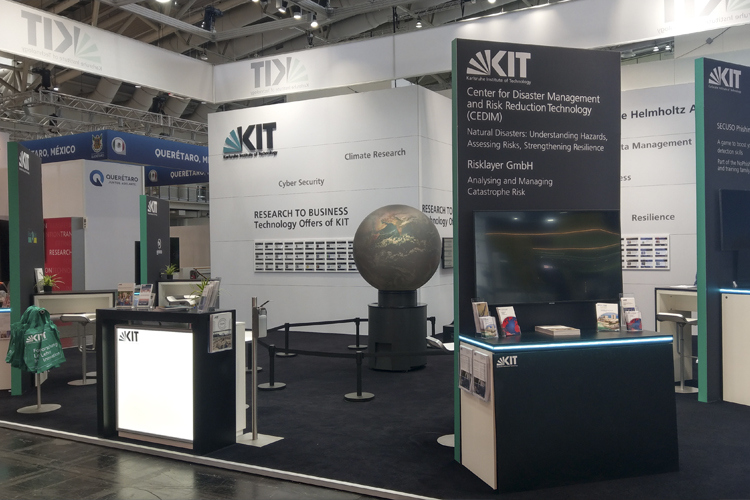
From May 30 to June 2, 2022, CEDIM together with KIT spin-off Risklayer presented their work on disaster research at Hannover Messe.
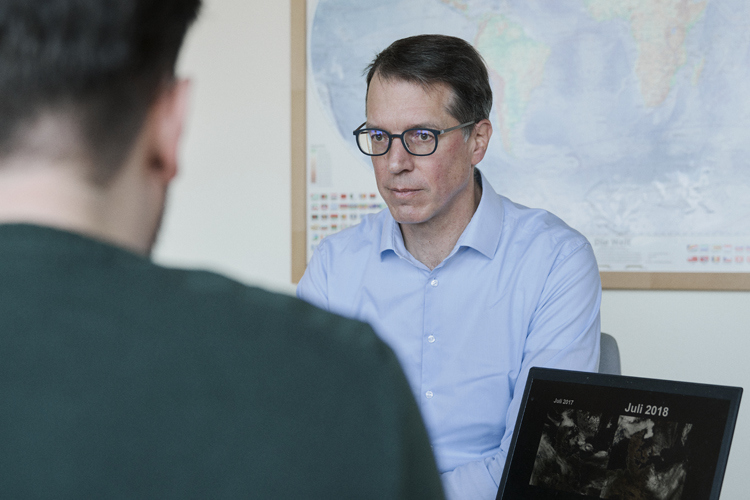
CEDIM Speaker Michael Kunz is KIT Expert of the Month
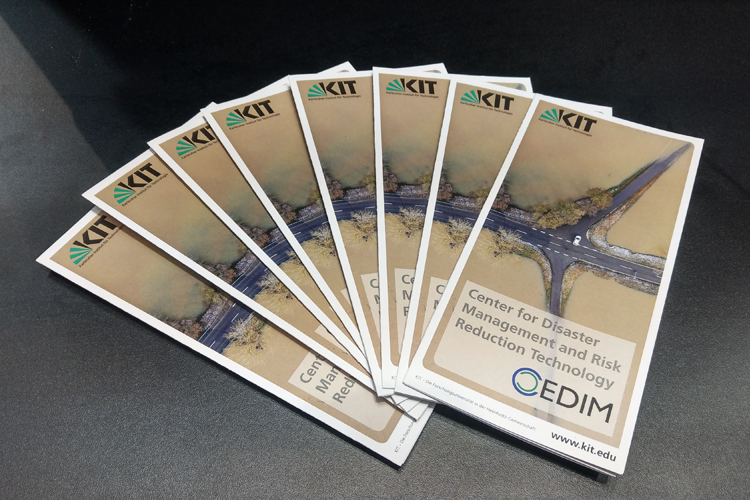
Appropriately for 20 years of disaster research in CEDIM a new flyer
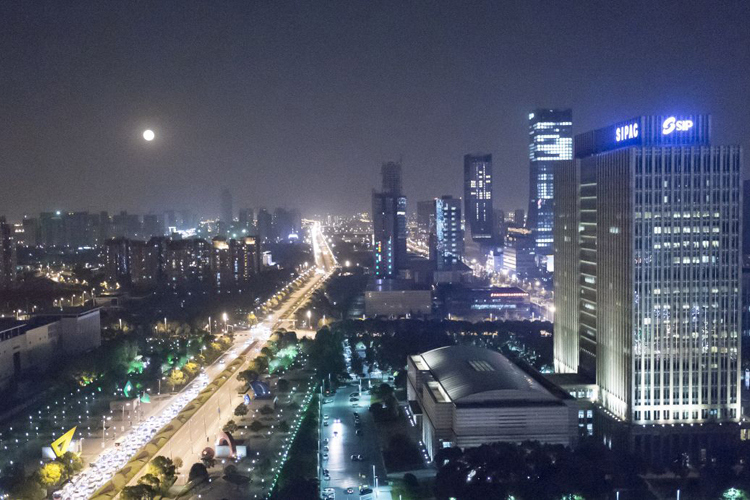
Researchers from CEDIM and the working group "Resilient and Smart Infrastructure Systems (RESIS)" are developing concepts for planning and operating future-proof supply systems and are part of the team at Hannover Messe 2022.
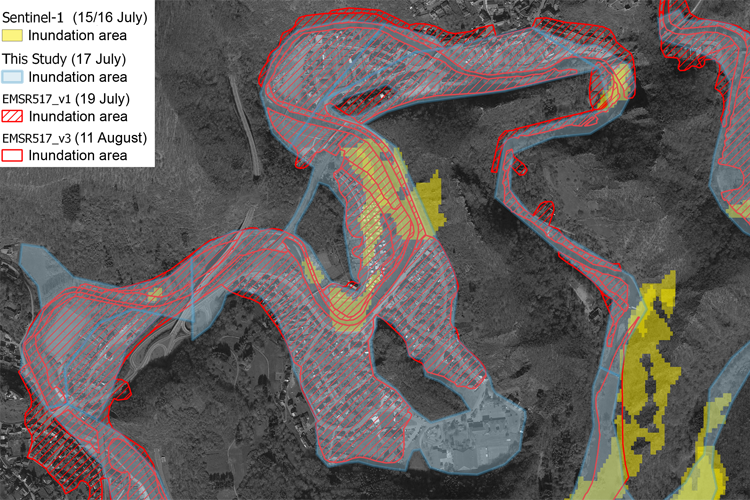
As a follow-up to our FDA activity last summer, Part 1 on the July 2021 flood has now been published. The focus of the study is the complex interactions between meteorological, hydrological, and hydro-morphological processes and mechanisms that led to this exceptional flood.
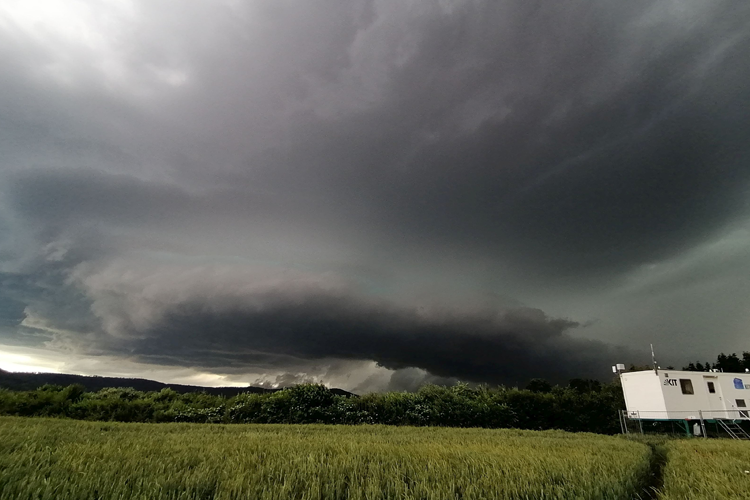
From May 30 to June 2, 2022, CEDIM together with the KIT spin-off Risklayer present their work on disaster research at the Hannover Messe.
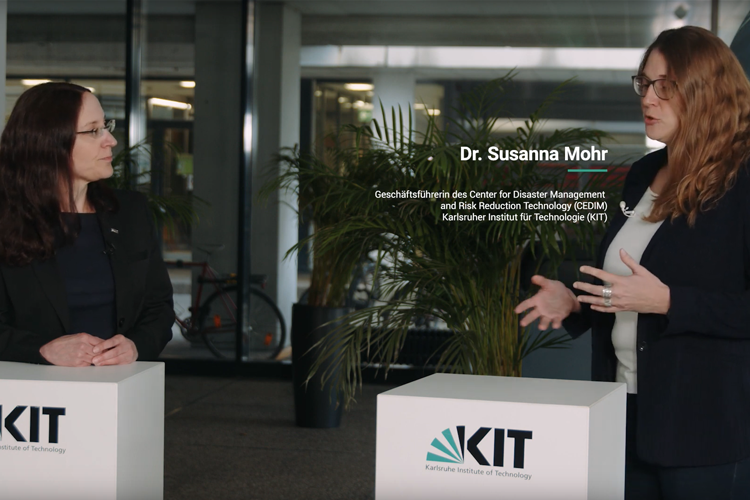
From May 30 to June 2, 2022, KIT presents selected highlights from risk research at the Hannover Messe. Susanna Mohr, General Manager of the CEDIM, presents the contributions of the CEDIM during the press preview of the Hannover Messe 2022.
link (YouTube; in German)
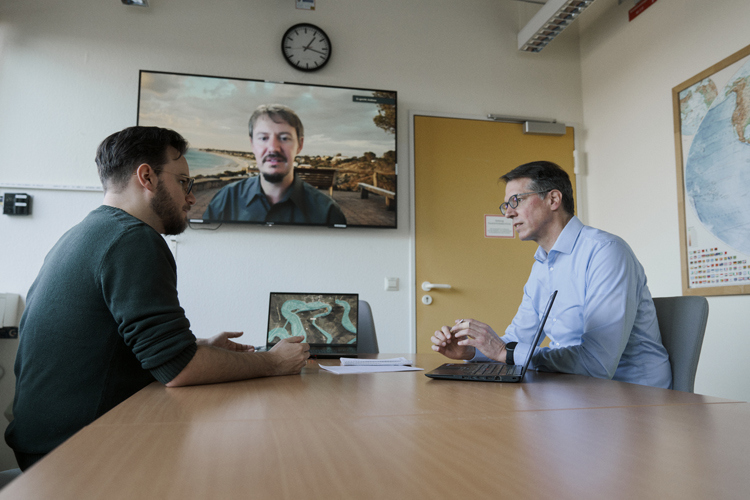
In the new LookKIT magazine, CEDIM researchers look back on 20 years of disaster research.
(from p. 14).
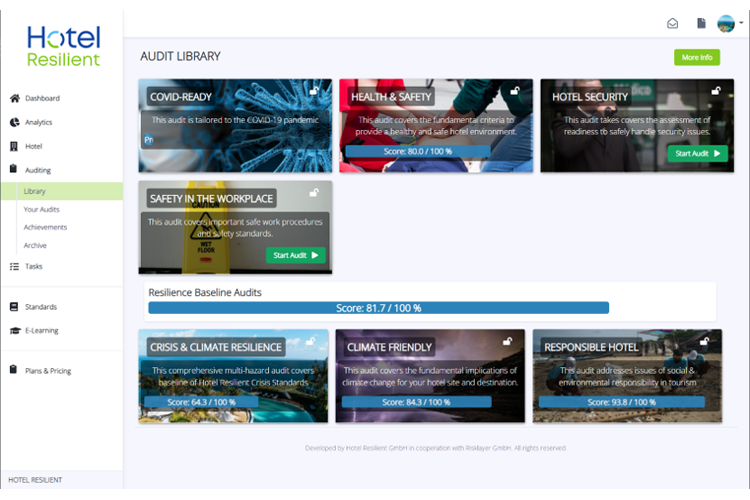
The Risklayer think tank was founded in 2014 as a spin-off of CEDIM. In the latest LookKIT magazine, Risklayer presents itself and its products for politics and business (from p. 17).

Researchers at CEDIM have further developed the methods from nuclear safety research and ensure greater resilience of critical infrastructures (from p. 20).
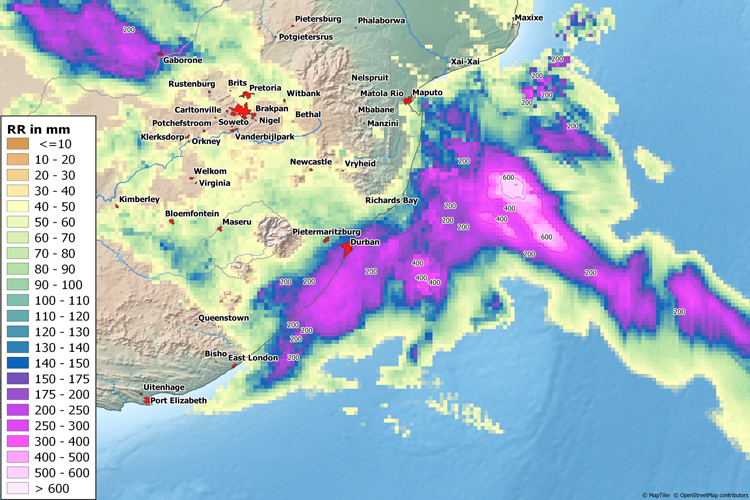
Short Report as of 17 March 2022
_rdax_98.png)
The volcano eruption offshore Tonga triggered an unexpected dual tsunami.
link

Wolfang Raskob explains in sueddeutsche.de (in German) how a reactor is protected and what can happen in an emergency.
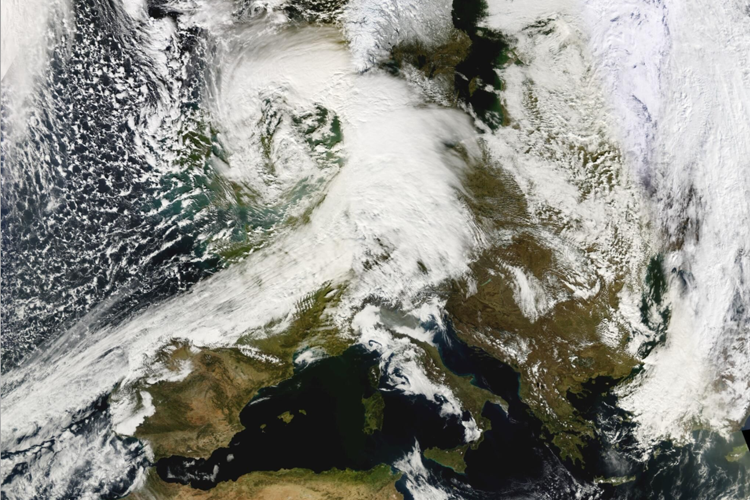
Short Report as of 5 March 2022
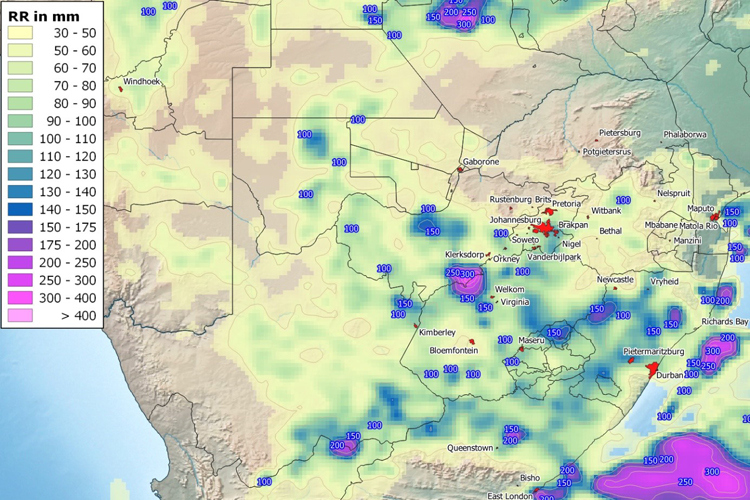
Short Report as of 20 January 2022
pdf (In German)

KAnews talks to Andreas Schäfer about the volcanic eruption on Tonga.
link (In German)
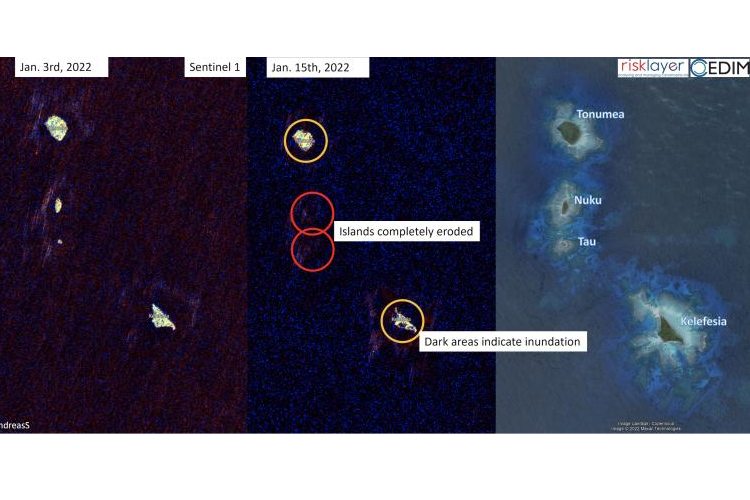
WELT interviewed Andreas Schäfer about the volcanic eruption on the Tonga Islands.
link (in German)
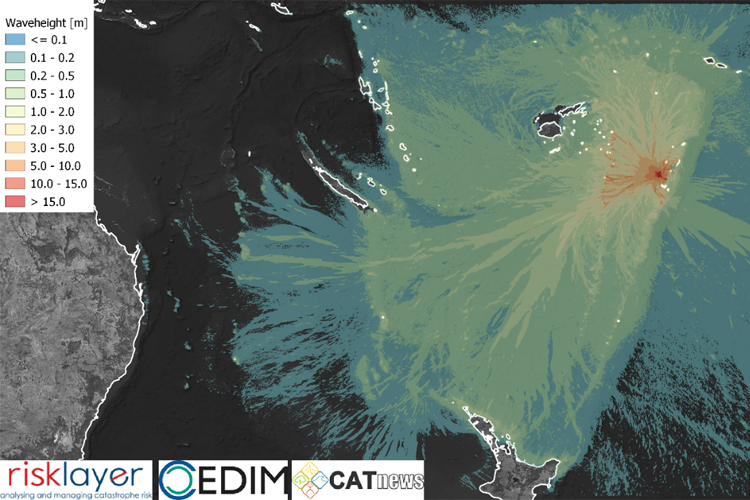
Short Report as of 18 January 2022

Flooding events lead to a reduction in the radius of movement, accompanied by shifts in mode choice and trip purposes.
link
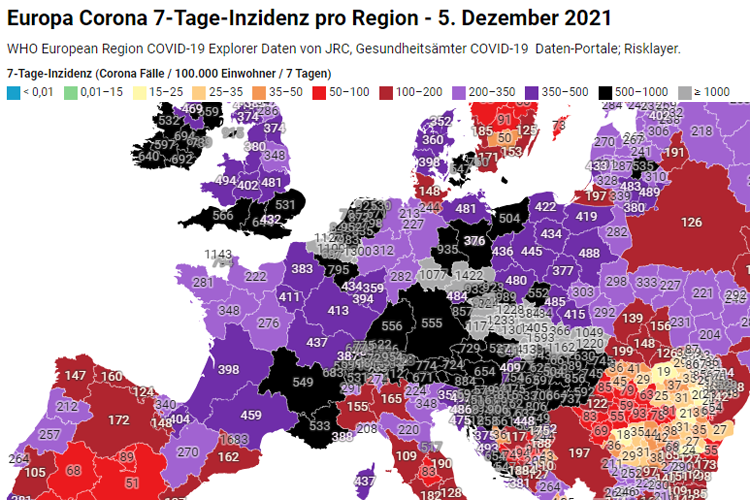
The corona numbers continue to grow and independent collection of data from CEDIM/Risklayer continues to show the delays in German statistics making trends difficult.
link
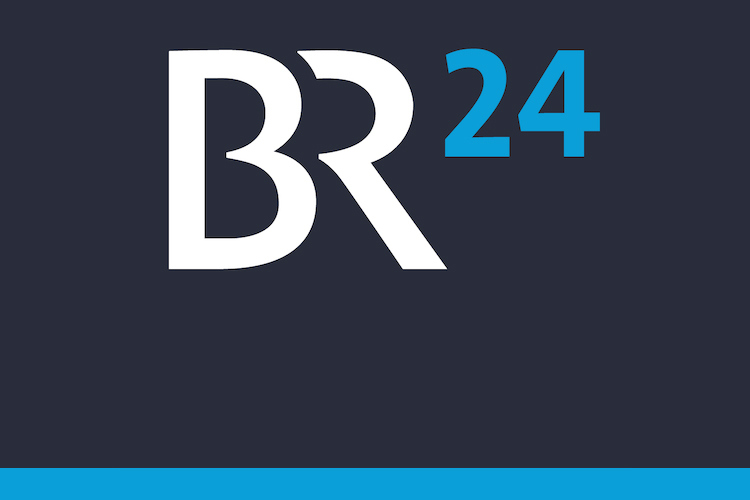
As part of the alpha topics "The climate and us", Bayerischer Rundfunk reports on various research activities of the CEDIM:
link (In German)
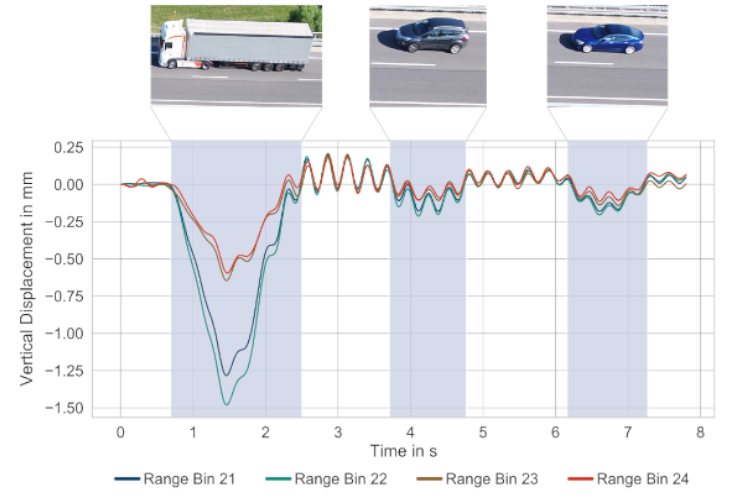
Researchers develop non-invasive, mobile, and innovative measurement and analysis methodologies to monitor and evaluate bridge conditions during operation.
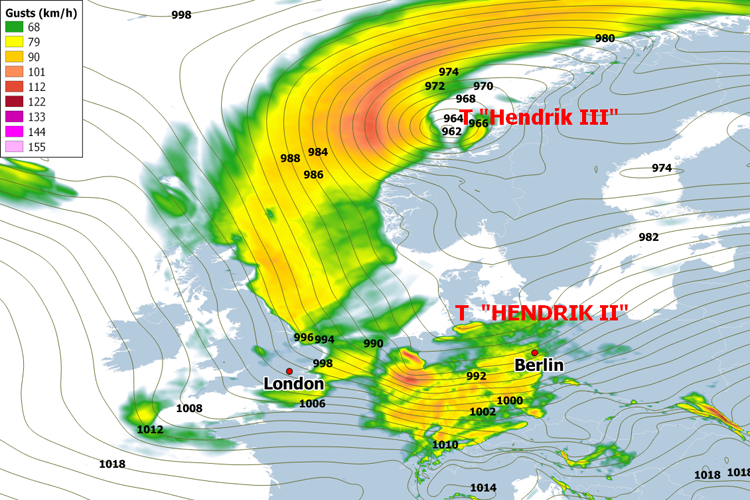
Short report, as of 25 October 2021
pdf (In German)
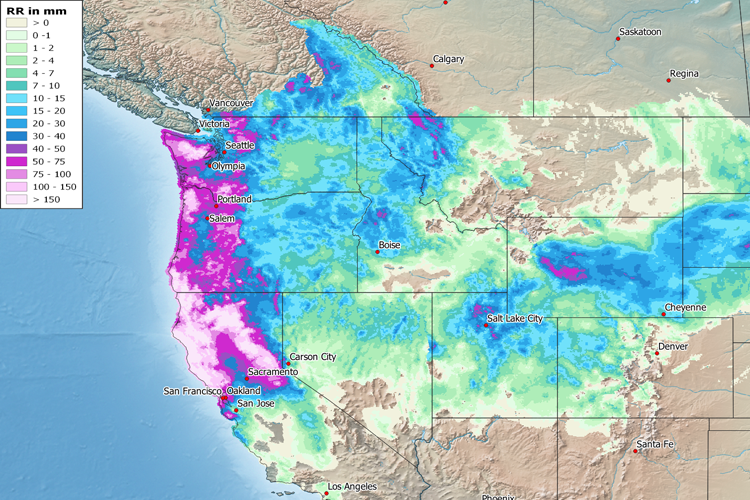
Short report, as of 26 October 2021
pdf (In German)
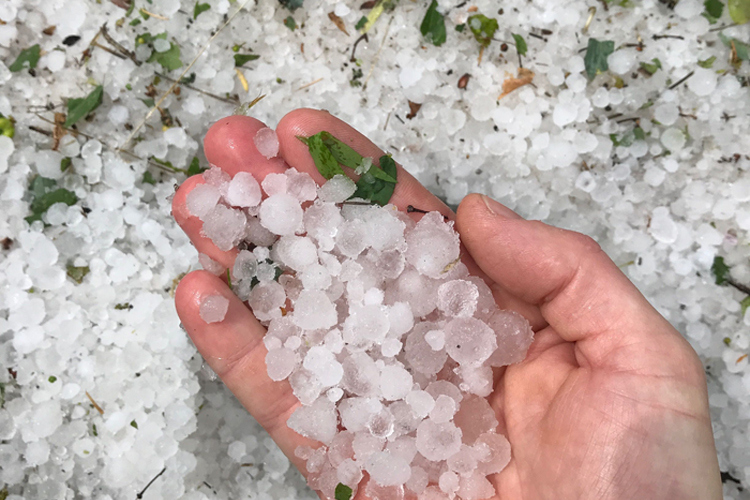
This question is addressed by many researchers, but also insurers fear increasing losses.
link
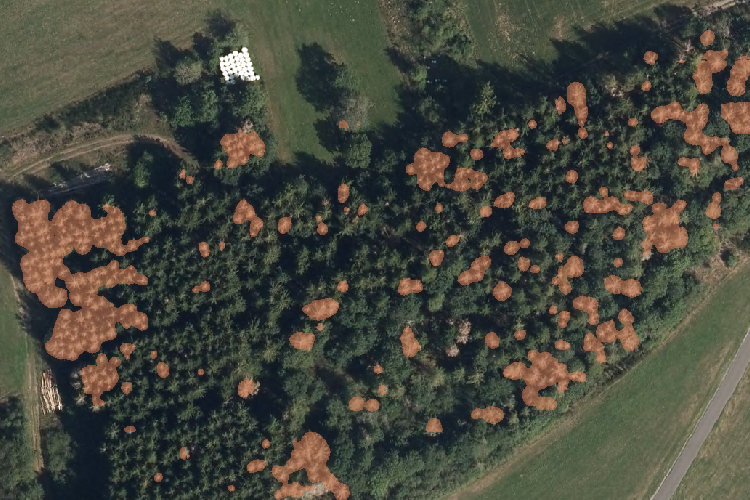
The drought summer of 2018 led to the death of many millions of trees in Central Europe; conifers were disproportionately affected.
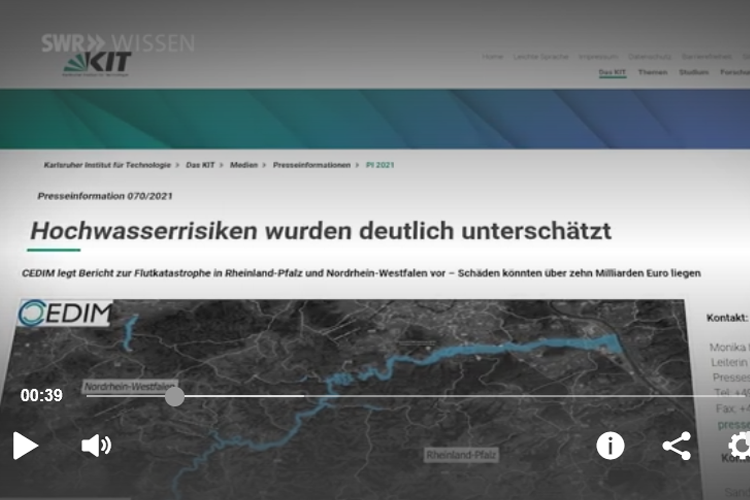
Andreas Schäfer in conversation with SWR.
link

Corona numbers are rising faster than they have since autumn 2020. Andreas Schäfer from CEDIM explains in an interview with ZDF how the fourth wave in Germany could be stopped.
link (in German)

pdf (Last update: 10. August 2021)
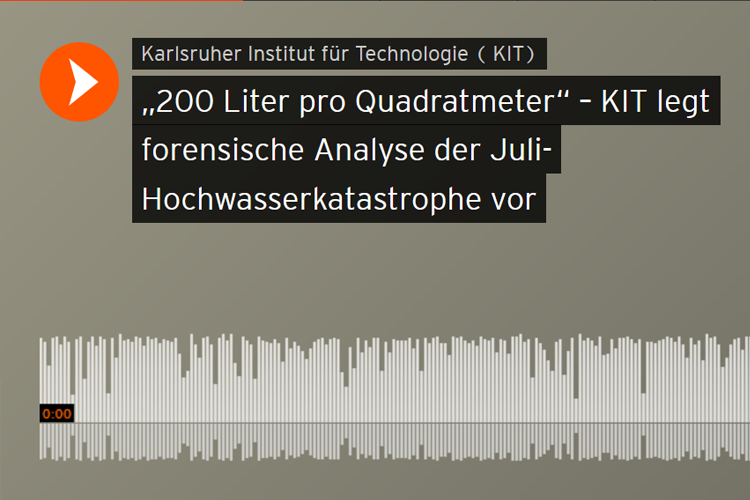
The July flood of 2021 will go down as a sad record in the history of flood disasters. The SRH Campus Report talks to CEDIM about the current FDA Report.
link (in German)
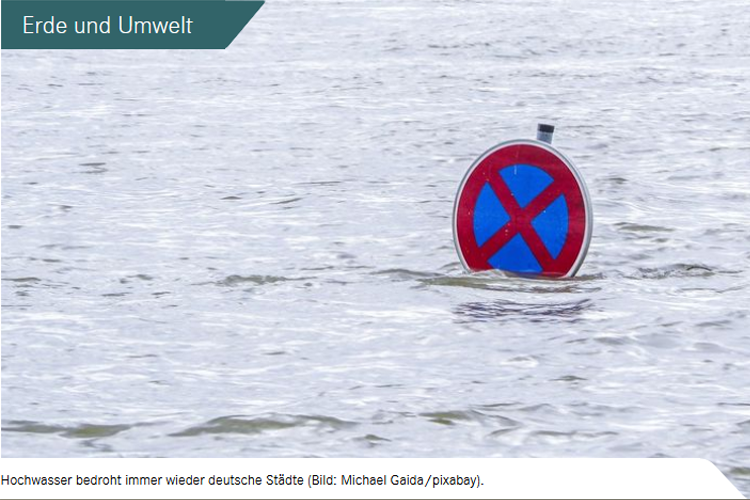
How an extreme event becomes a natural disaster. Helmholtz in conversation with the authors Andreas Schäfer and Michael Kunz.
link (in German)
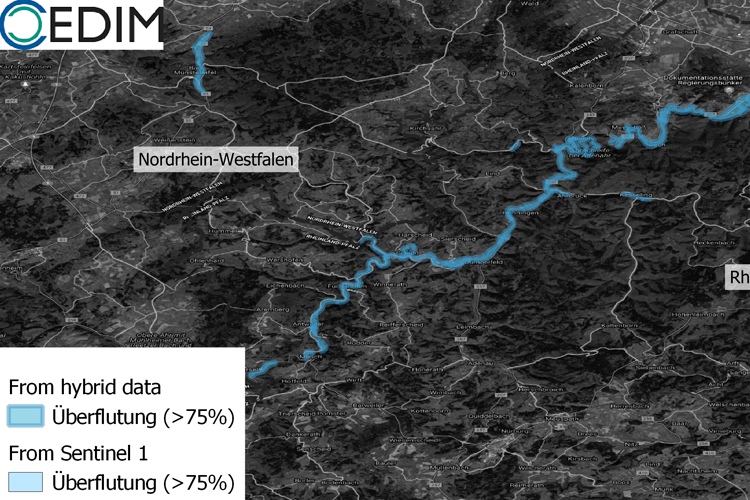
CEDIM presents report on flood disaster in Rhineland-Palatinate and North Rhine-Westphalia - Damages could exceed ten billion euros.
link (In German)

pdf (In German)
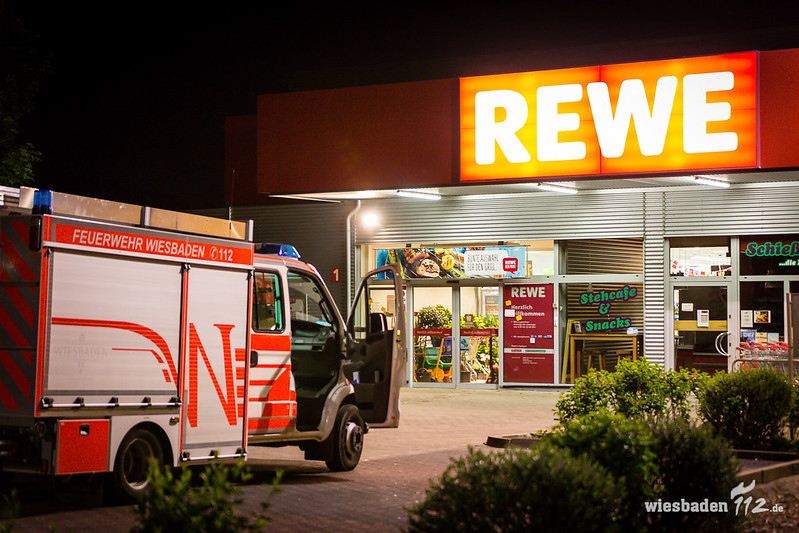
Population survey examines risk perception and the public's attitude towards public-private partnerships in emergency contexts.
link
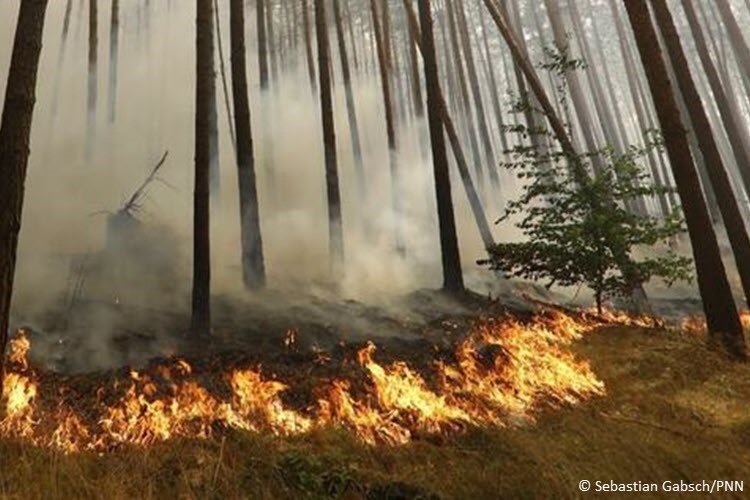
The progressing climate change and associated increasing temperatures and declining precipitation rates also lead to an increased wildfire risk in Germany.
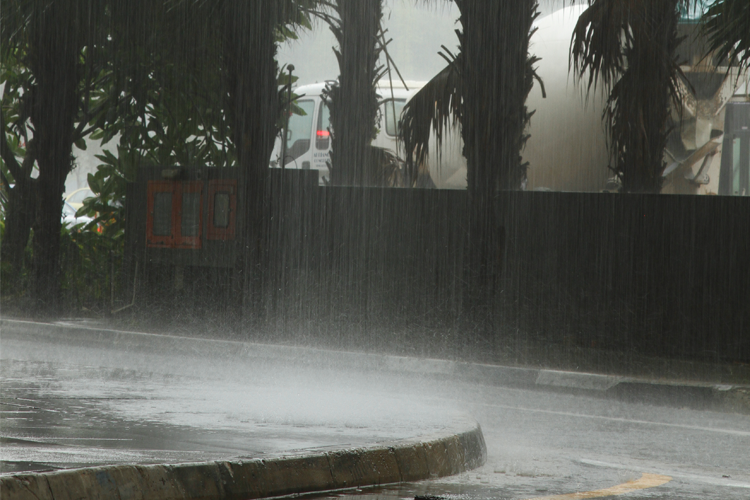
Under future climate conditions, convective precipitation in urban areas will intensify.
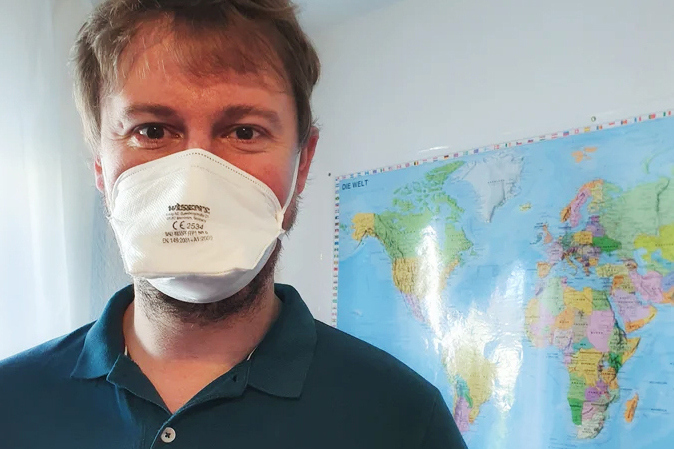
After more than a year of the pandemic, Germany has learned little when it comes to collecting corona numbers. CEDIM member James Daniell on the reasons:
link (In German)
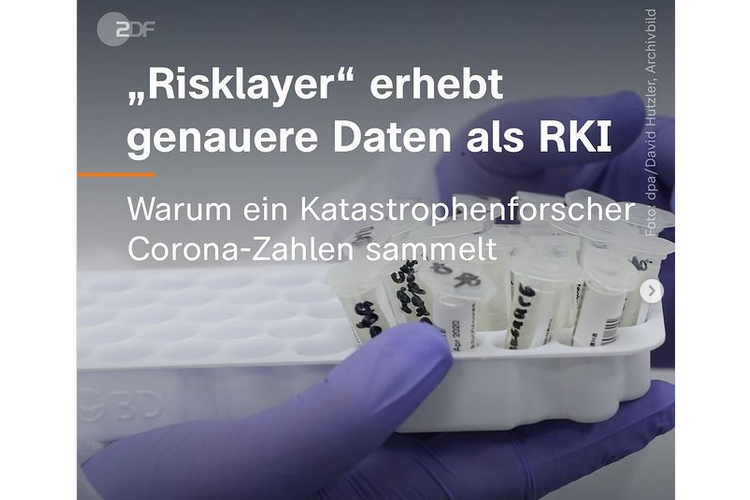
ZDFheute uses statistics from Risklayer / CEDIM for many of its Corona charts, as we collect information several times per day directly from the health departments of cities and districts.
link
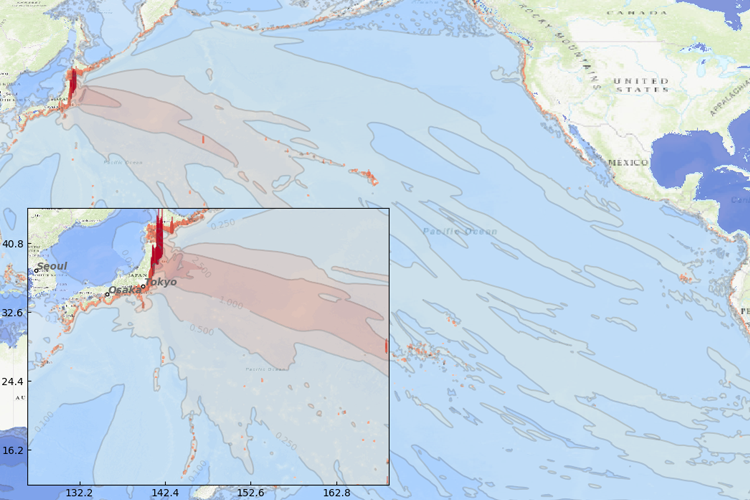
A massive disater in Japan turned into a political debate. The Mw9.1 Tohoku earthquake and the following tsunami left 18,000 casualties and millions of people homeless. The following nuclear accident in Fukushima shook the world. Many questions are still open.
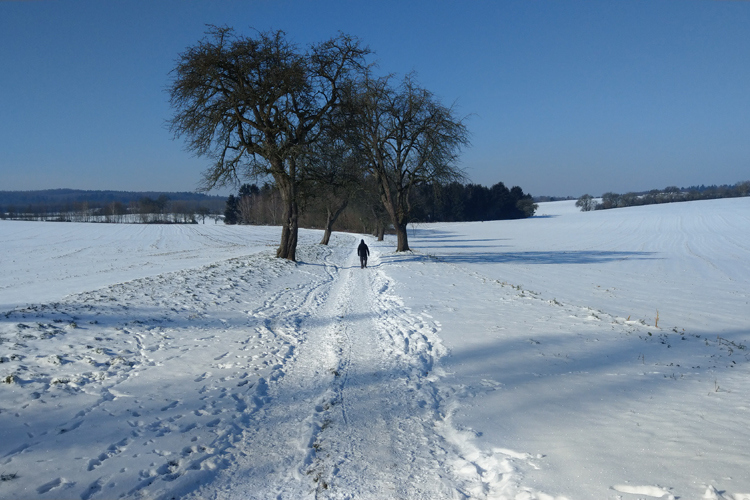
Short report, as of 29 March 2021
pdf (in German)
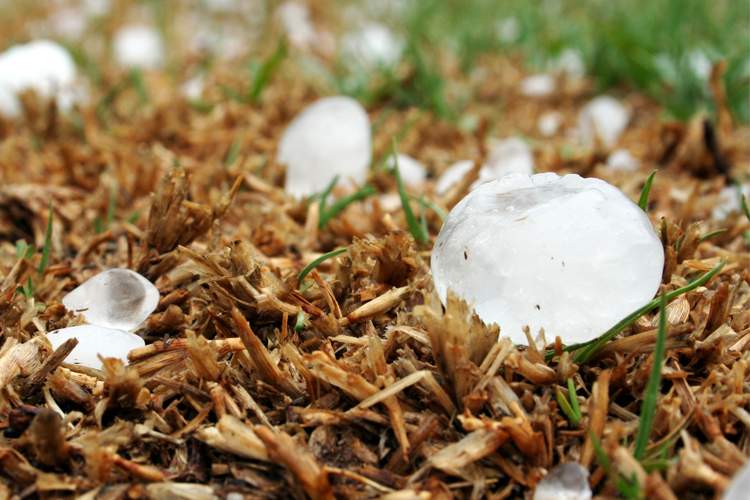
Michael Kunz in conversation with Stefan Fuchs (Campusreport; in German)
link (in German)

The ten percent threshold in Bavaria has been exceeded. But the distribution of those vaccinated at least once is very uneven. A data analysis shows large regional differences.
link (in German)
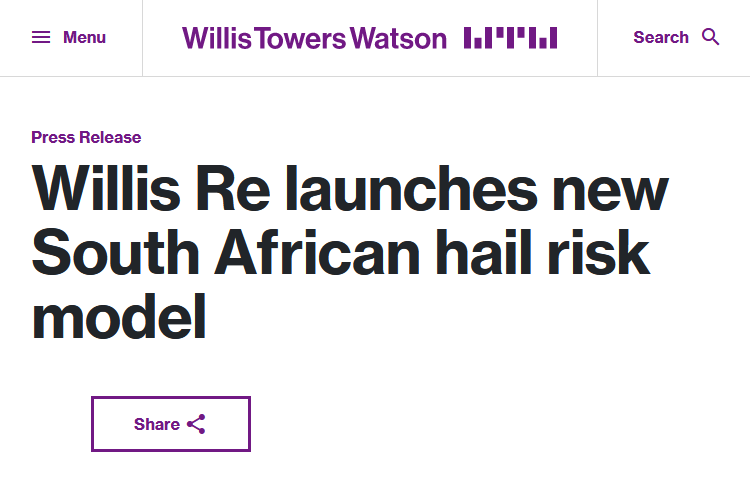
Willis Re has launched a new Hail Catastrophe Risk Model which quantifies the risk from damaging hail events across South Africa. Developed in collaboration with Willis Research Network partners at CEDIM/IMK-TRO (siehe oben) and NASA’s Langley Research Centre, the model delivers a robust view of hail risk for the (re)insurance market.
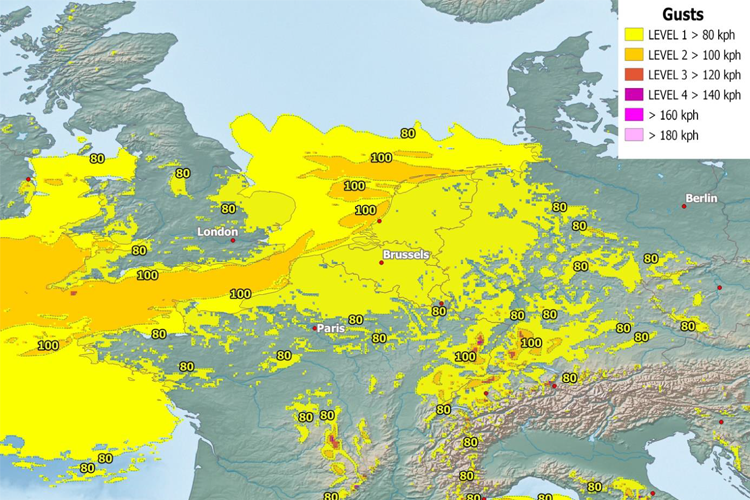
Warning levels for several cities in Germany
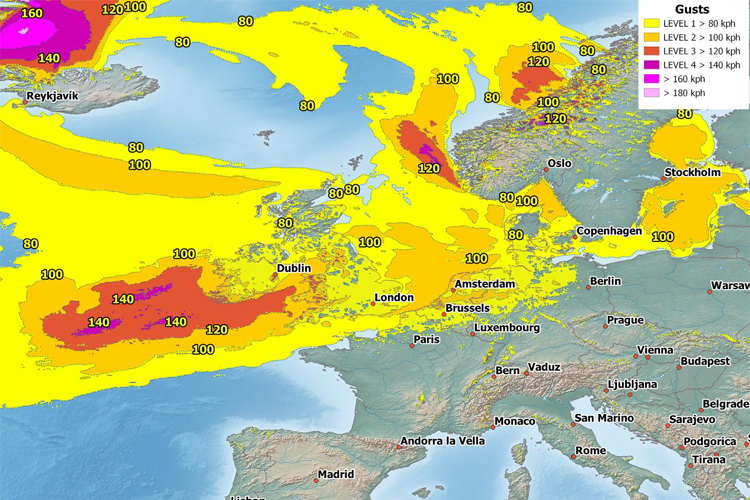
Warning levels for the 40 largest cities in Germany
pdf (as of 11 March)
pdf (as of 10 March)
pdf (as of 9 March)
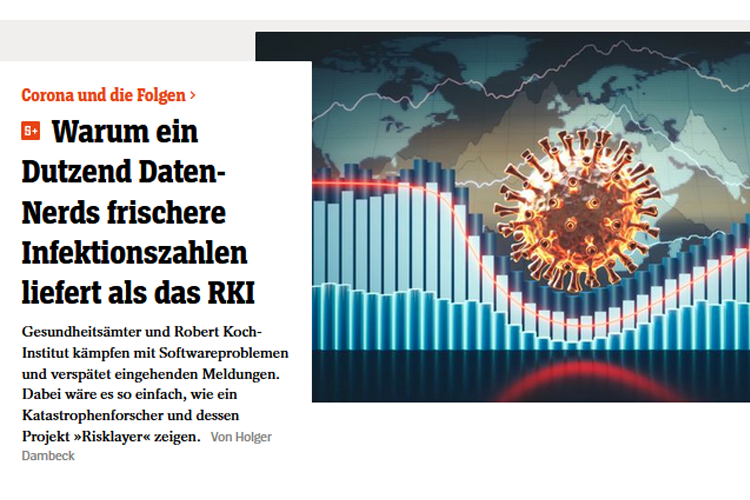
Public health departments and the Robert Koch Institute are struggling with software problems and late reports. Yet it would be so simple, as a disaster researcher from CEDIM shows.
link (German)
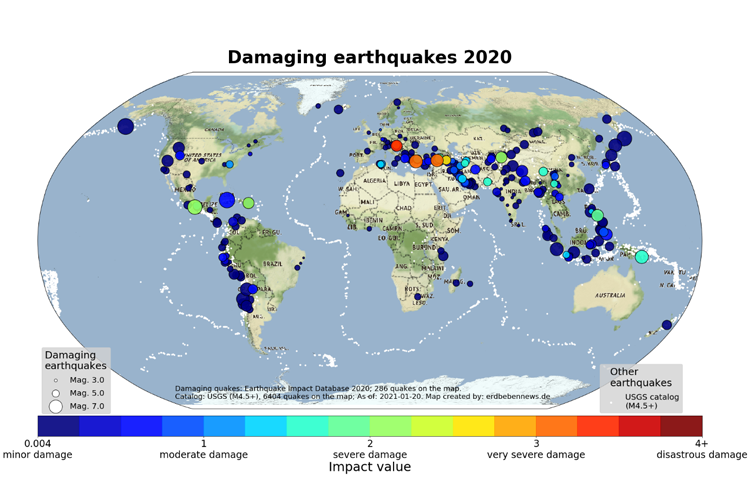
Contrary to many other years of the 21st century, no earthquake has left a global scale footprint in 2020. But 2020 was dominated by smaller destructive earthquakes with only local impact. This leaves 2020 as one of least active years in terms of earthquake damage for years.
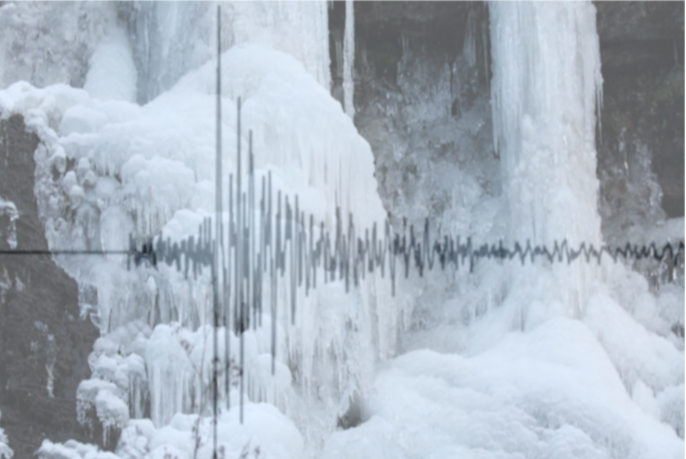
An explosion sound followed by a gentle shake: A kind of non-tectonic quake during extreme cold waves that can even cause minor damage.
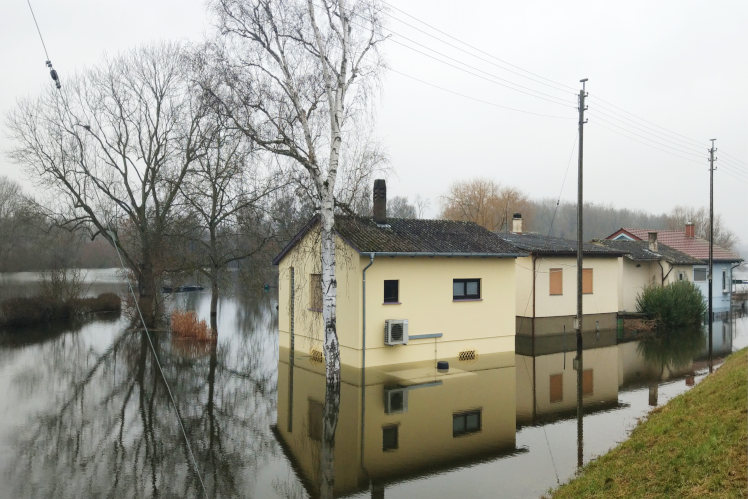
Short report, as of February 2, 2021
pdf (in German)
_rdax_98.png)
Weather Hazard Early Warning Summary.
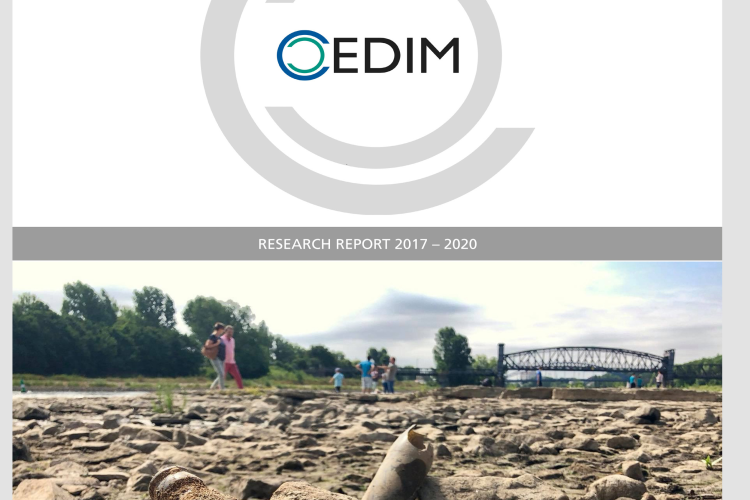
How the current corona pandemic is influencing the work of CEDIM – that and much more is presented in the new CEDIM research report.
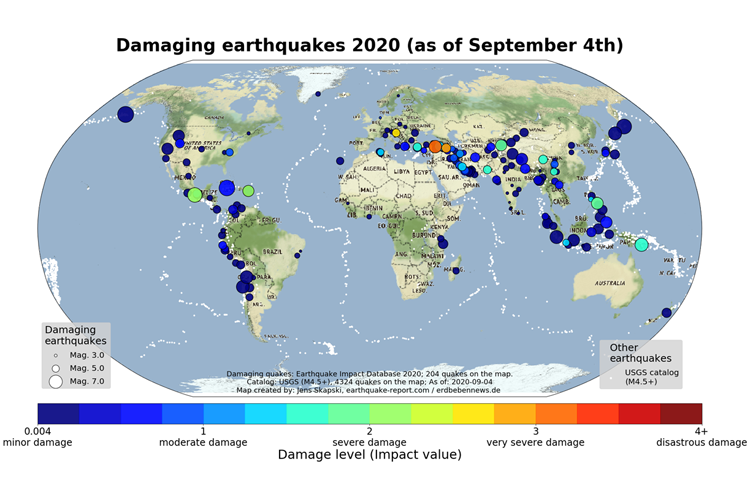
CATnews summarizes the previous earthquake statistics of the year.
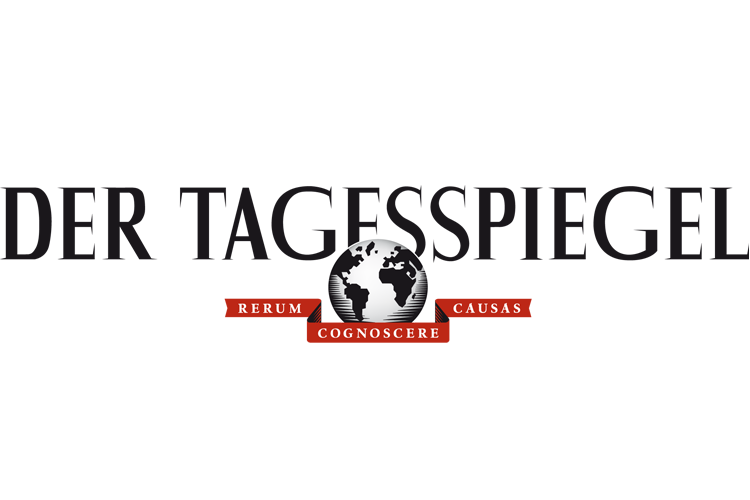
Michael Kunz in conversation with the Tagesspiegel on his work on hail research.
link (in german)
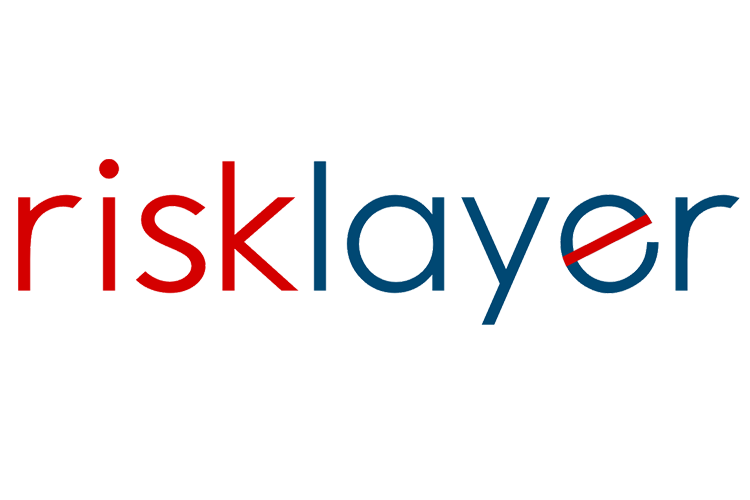
Recently, a report on the CEDIM spin-off is published in the new lookKIT of KIT (see p. 45).
link
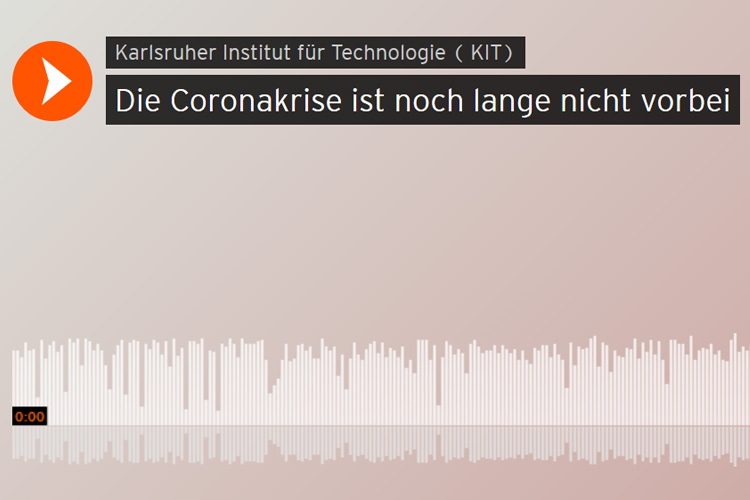
An interview with James Daniell and the SRH Campus Report:
link (4:42 min; In German)

CEDIM employee James Daniell in an interview with the Tagesspiegel, why Germany was poorly prepared for the corona pandemic - and what the virus could cost.
_Cut_rdax_98.png)
ZDF uses different data sources for the coronavirus case numbers.
For Germany, CEDIM/Risklayer provides the most recent figures.
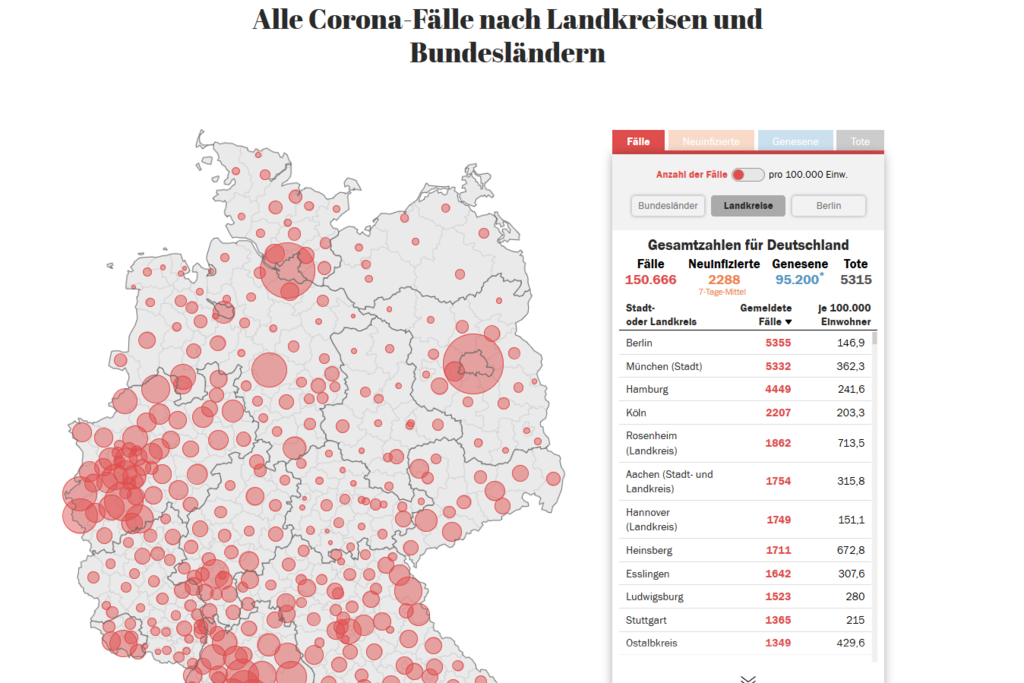
Tagesspiegel Innovation Lab uses data from CEDIM /Risklayer.
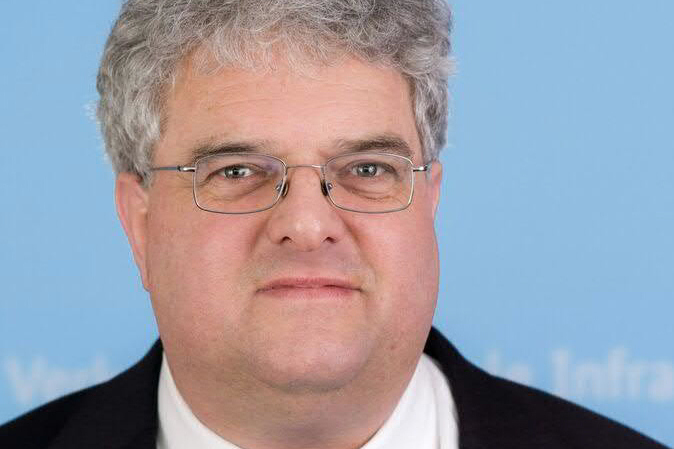
Since 1 January 2020, Prof Dr Kay Mitusch, member of the CEDIM Coordination Committee, is the new Chairman of the Scientific Advisory Board of the Federal Minister of Transport and Digital Infrastructure.
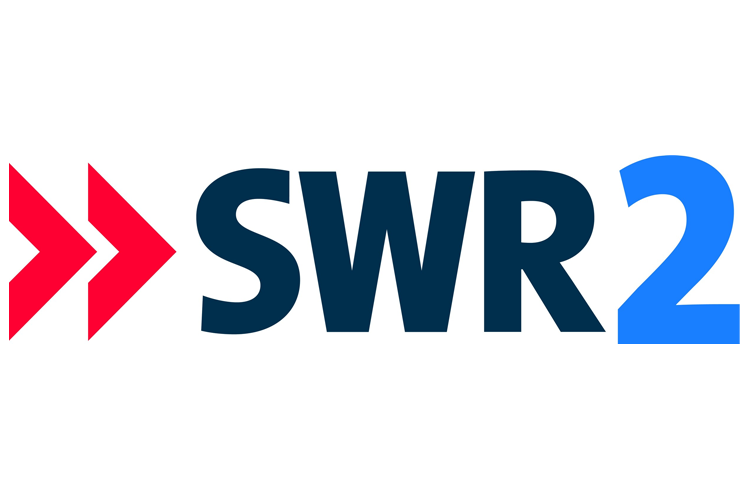
Ralf Caspary from SWR2 in an interview with Prof. Michael Kunz
link (in German)
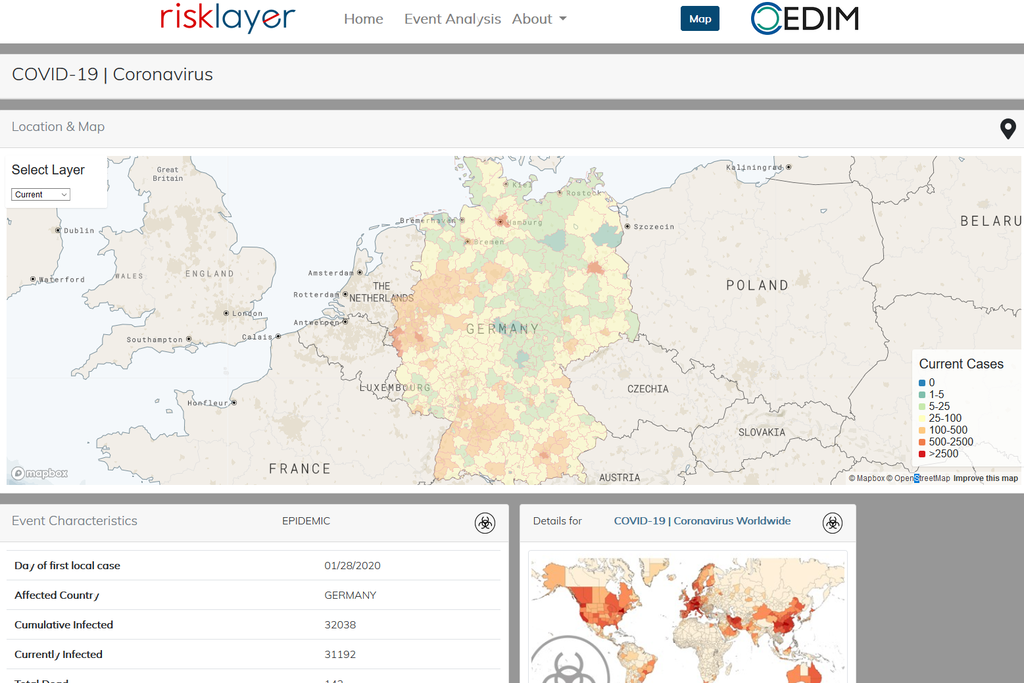
Graphical processing of the development of the Sars-CoV-2 numbers with the help of the new CEDIM/Risklayer-Explorer
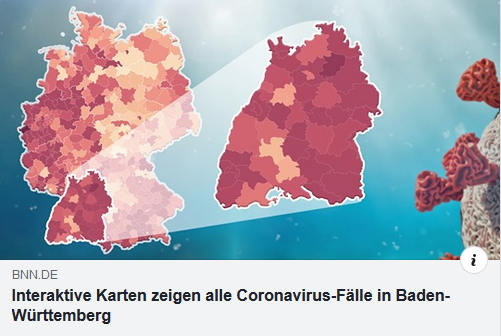
Interactive maps show all coronavirus cases in BaWü (automatic update)
link (in German)
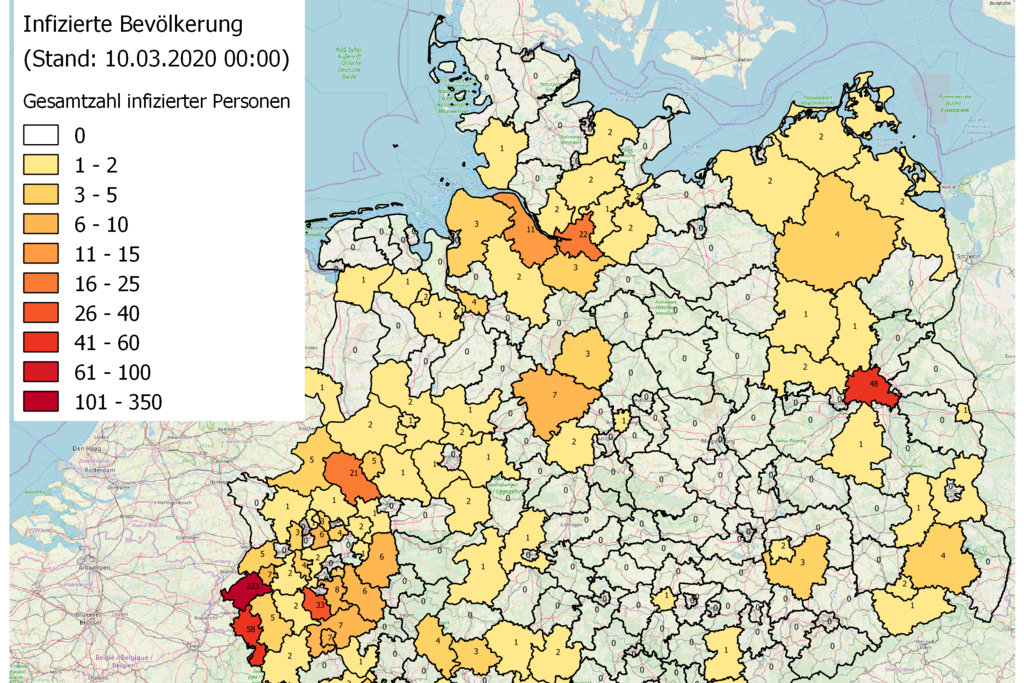
So far 1249 cases have been registered throughout Germany (Last update 10.03.2020 00:00).
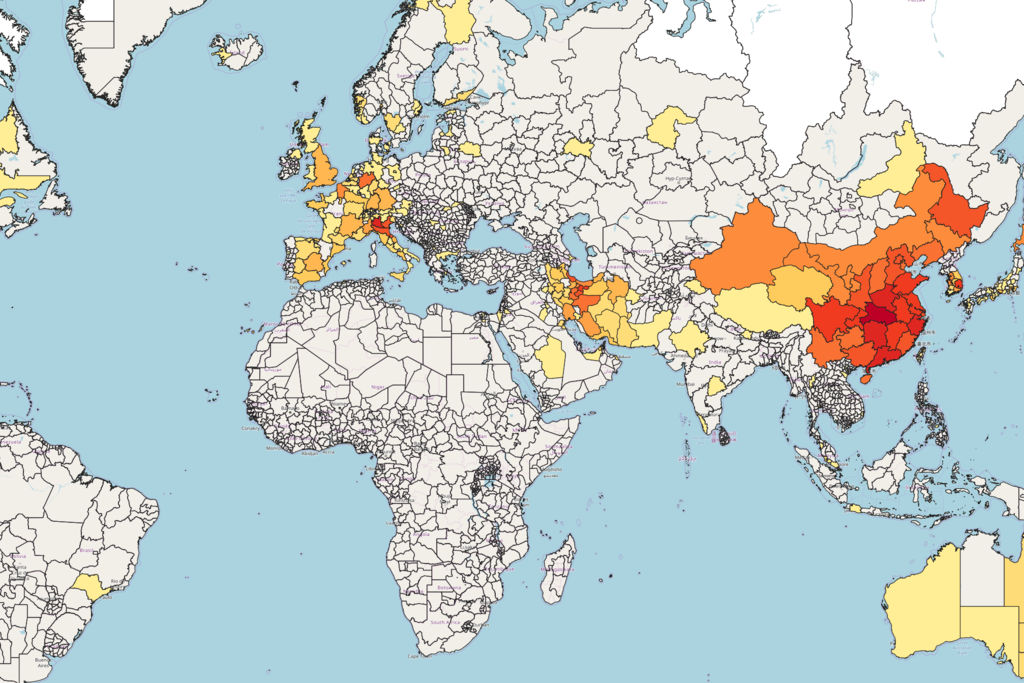
CEDIM is investigating the spread of the SARS-COV-2 virus in collaboration with RiskLayer.
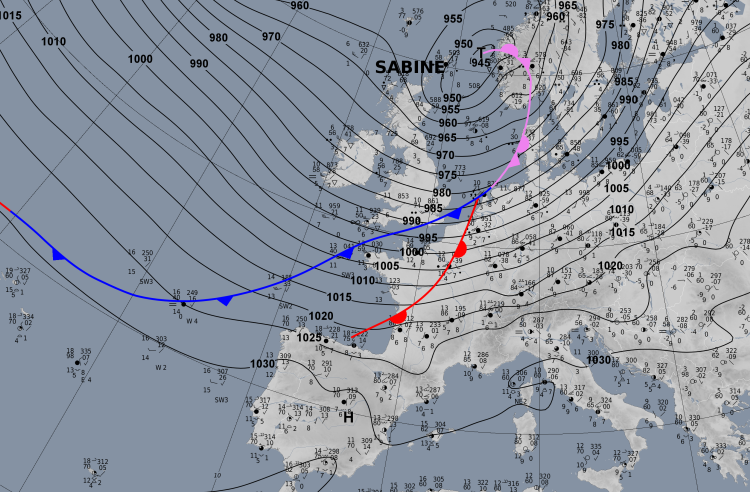
Report No.1, Last update: 28. Feb. 2020
pdf (In German)
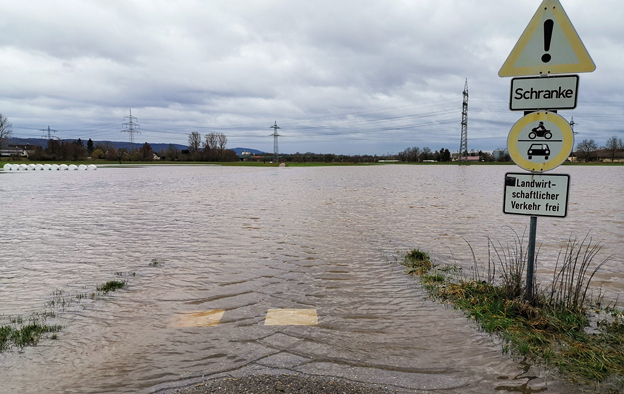
Short Report, Last Update: 4. February 2020
pdf (in German)
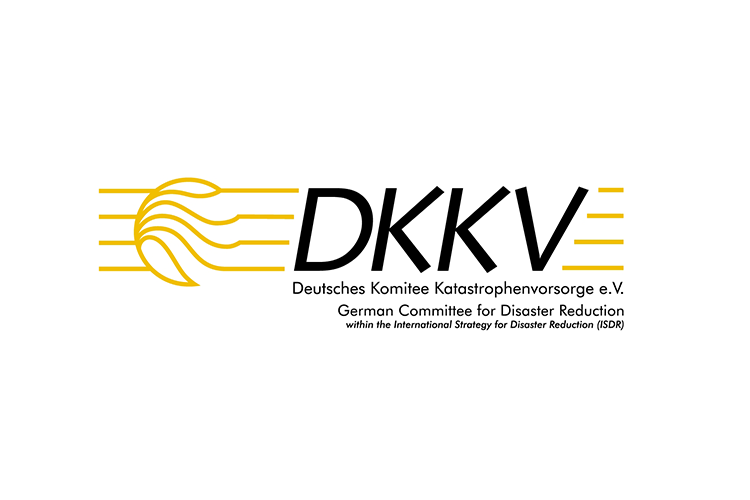
The main topic of the new DKKV Newsletter is forensic catastrophe analysis, specifically what exactly defines it and the advantages it brings to understanding and coping with catastrophe events.
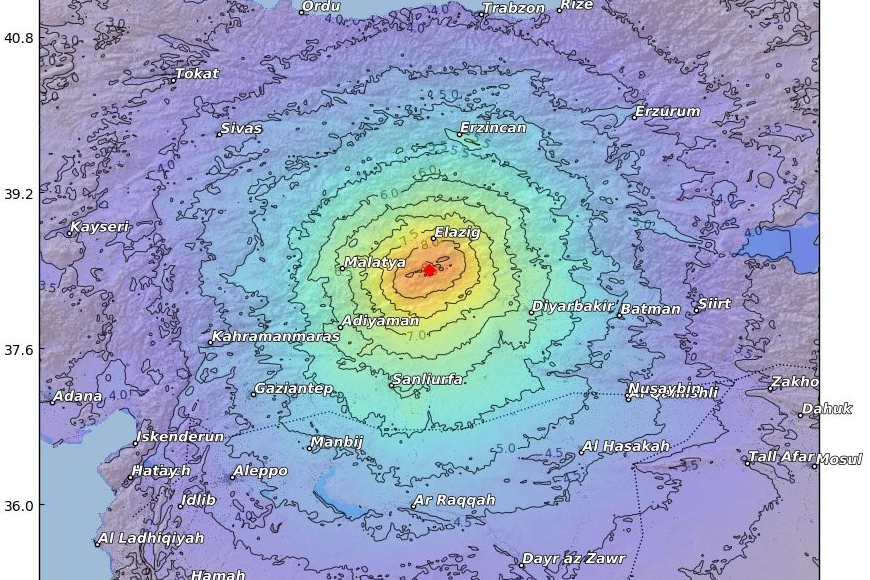
Short Report, Last Update: 29. January 2020

The DKKV is a national platform for disaster risk reduction in Germany and an intermediary for international organizations and initiatives in the field of disaster risk reduction.

The IMK-TRO is organizing the next European Hail Workshop in Karlsruhe. Abstract submission (Deadline 29.11.19) and registration (Deadline 31.01.20) is now possible on the workshop website.
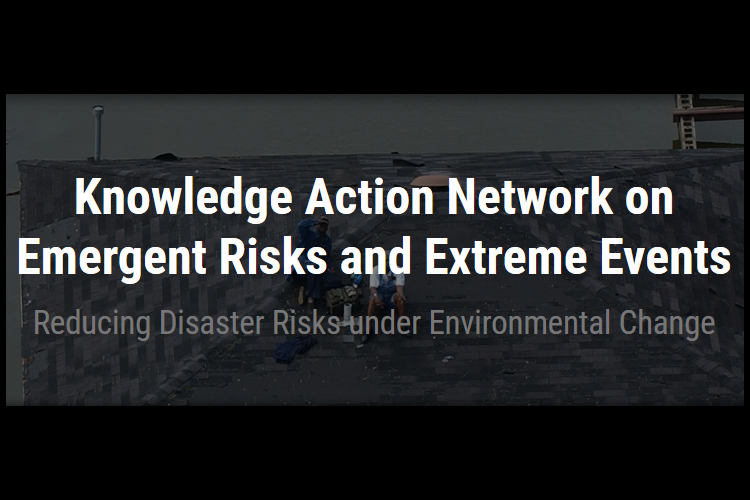
The Knowledge-Action Network (KAN) on Emergent Risks and Extreme Events provides an open platform for scientific communities from across science disciplines and engineering working on extreme events, disaster risk reduction and governance to exchange information, knowledge and data and engage in collaborative research activities.
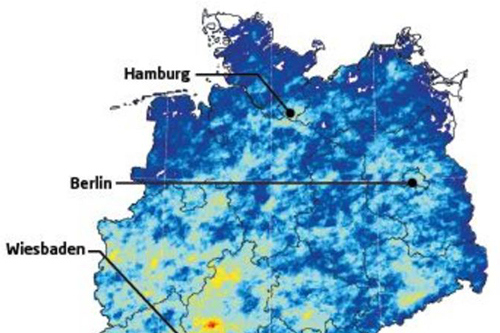
Report about the CEDIM hail research at KIT. Last Update: 21 August 2019
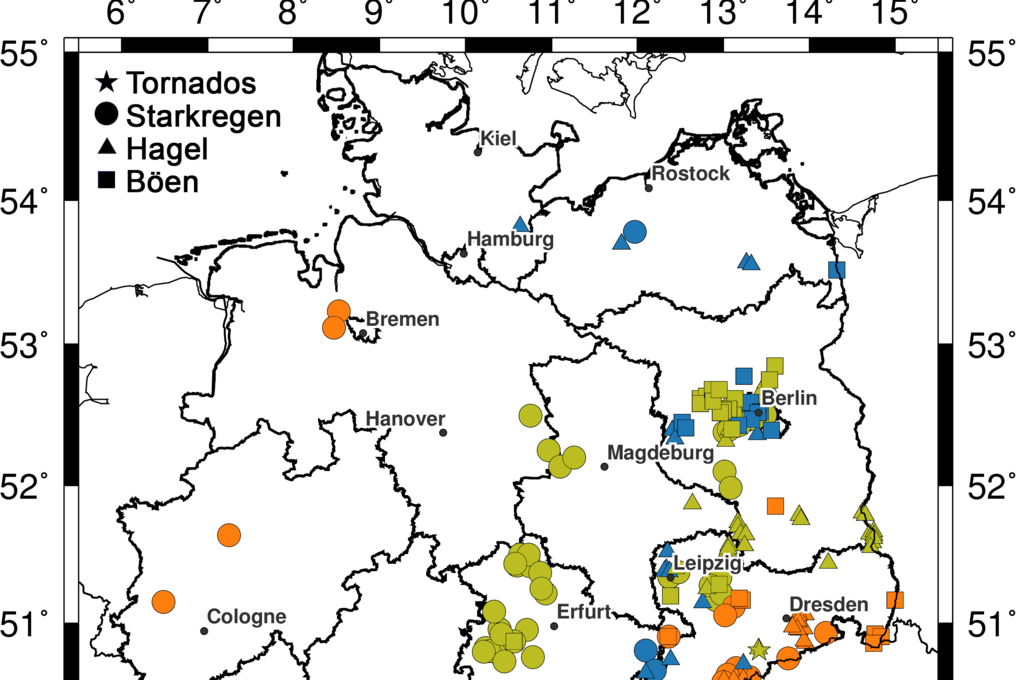
Short Report, Last update: 25. Juni 2019
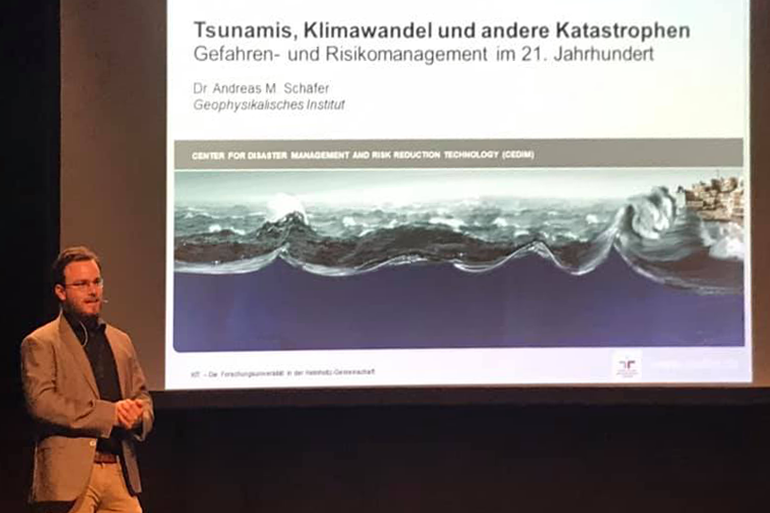
At this year's EFFEKTE Science Tuesday at the Kulturzentrum Tollhaus, Dr. Andreas Schäfer presented the work from CEDIM around the topic "Dangers of future natural hazards and climate change consequences".
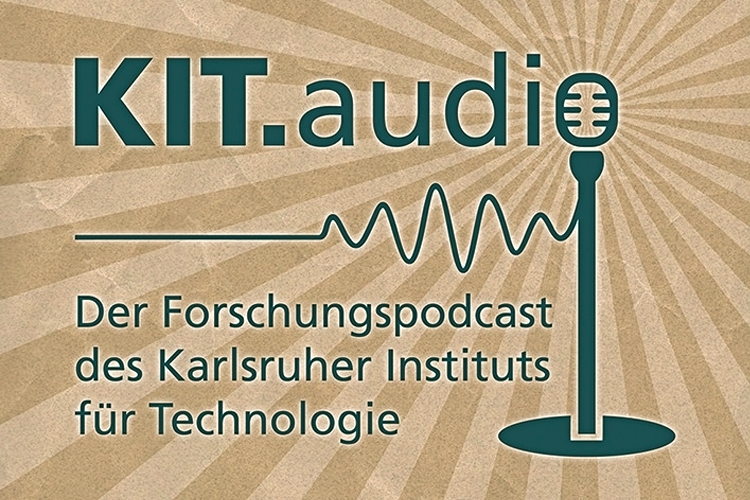
About the reliability of technical systems in the age of digital change.
CEDIM staff in conversation with KIT.audio (In German).
Extreme weather in Germany: Drought 2018 - What it has done so far
link (In German)
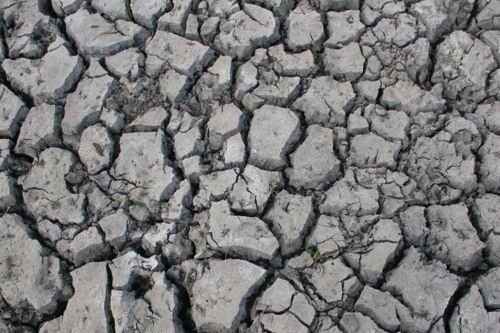
"Double-digit billions in damages": In Campus Report, Michael Kunz presents a summary of summer 2018, which CEDIM recently presented.
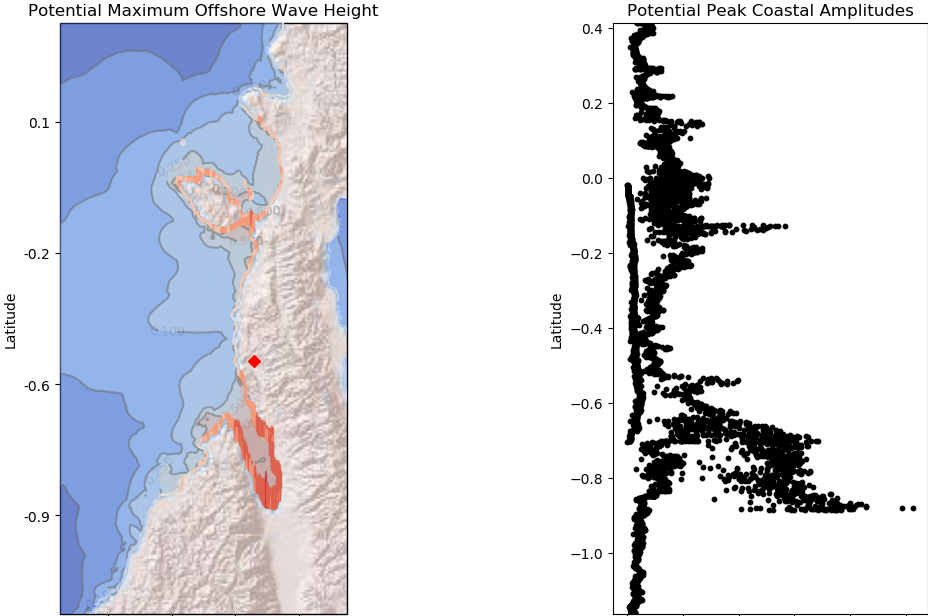
In their comprehensive articles on the tsunami in Indonesia, the New York Times quote Andreas Schäfer's computer model. It shows how the wave became bigger and bigger due to the shape of the bay of Palu.
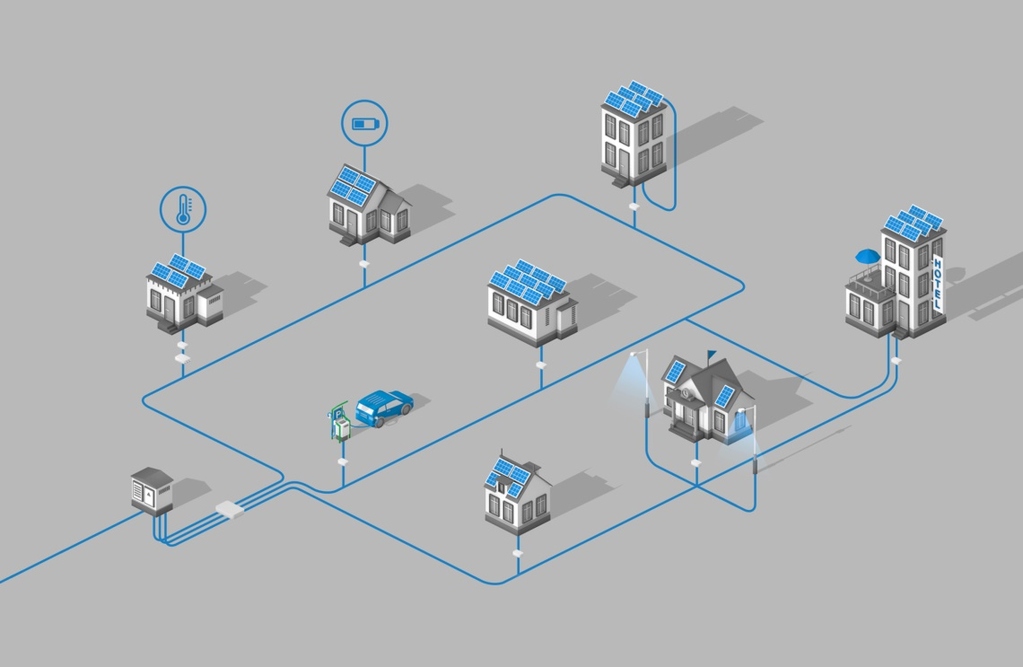
Critical infrastructures depend more and more on ICT infrastructures. Especially energy supply gets thereby prone to disorders. Researchers of CEDIM develop sustainable solutions.
press information of the KIT (in german)
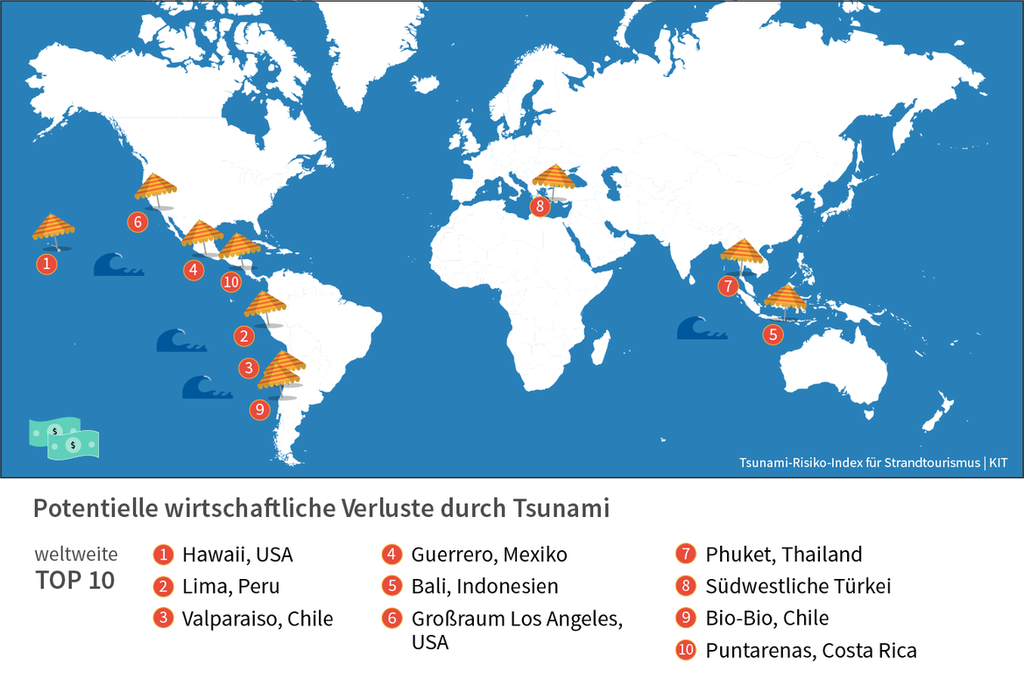
For the first time the calculation of the potential economic damage caused by tsunamis regarding the touristic infrastructure took place. More than 24.000 beaches have been part of the investigation at CEDIM.
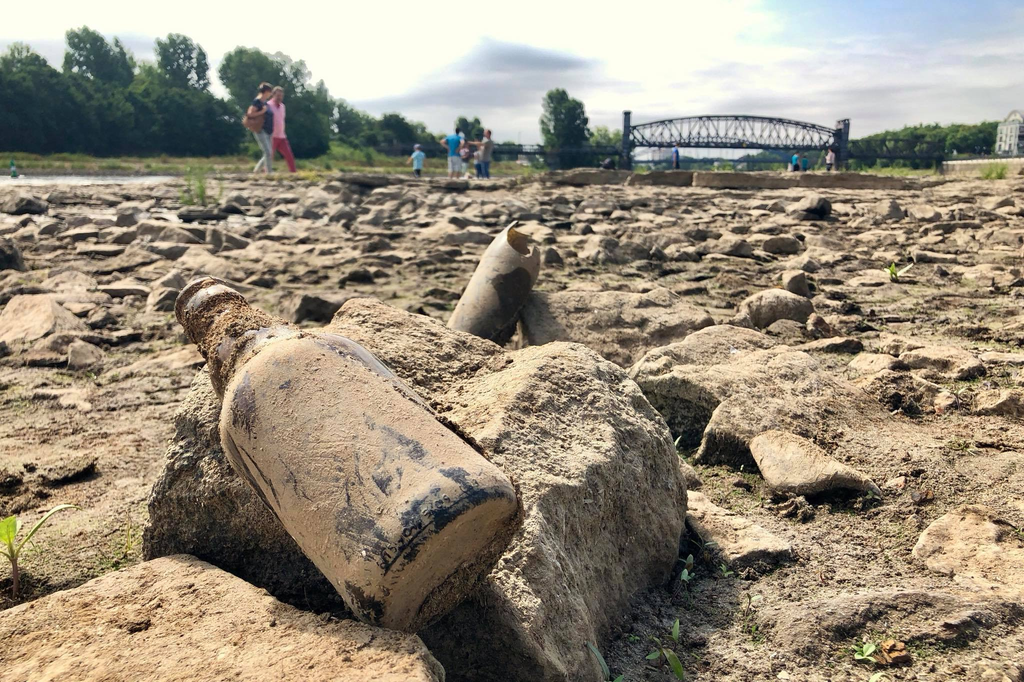
More hot days than in the “summer of the century” 2003, low water in nearly every river and already more than 91 percent of german ground is dried up. The knowledge platform ESKP highlights a few aspects of the newest CEDIM FDA Report:
link (in german)
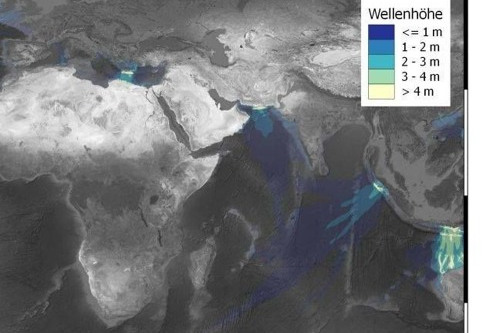
Conversation between a CEDIM employee and the KIT Campus Report:
link (in German)
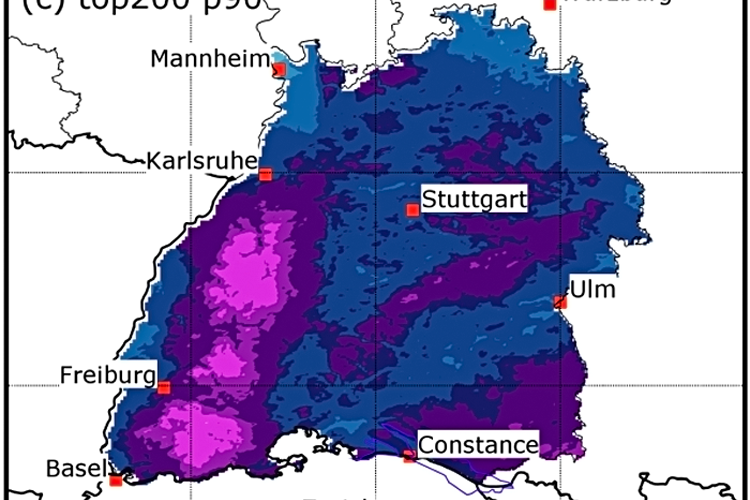
Major flood events in Germany repeatedly cause damage running into billions. Baden-Wuerttemberg, Hesse and Thuringia can now profit from a innovative flood risk model, developed by CEDIM.
link (in German)
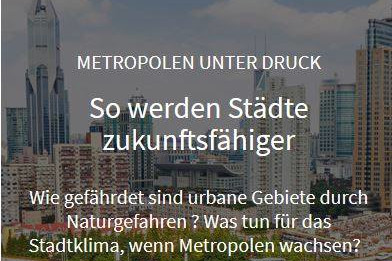
CEDIM-contribution to the ongoing ESKP special topic "metropolises under pressure":

On 19th April 2018 the president of the THW and the head of the research department have been invited to CEDIM.
link
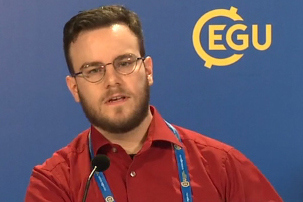
From tsunamis to floods and storm surges, coastal areas are particularly prone to natural disasters. This press conference looks at the effects from hazards we can expect to impact the world’s coastlines. CEDIM scientist will focus on the tsunami risk for the world’s most prominent beaches and the impact tsunamis can have on beach-related tourism.
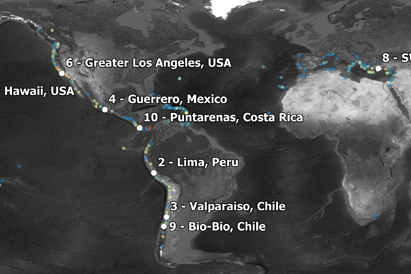
CEDIM scientists develop global tsunami risk index for beach tourism. Billions of dollars are possible for single events, even in the Mediterranean..
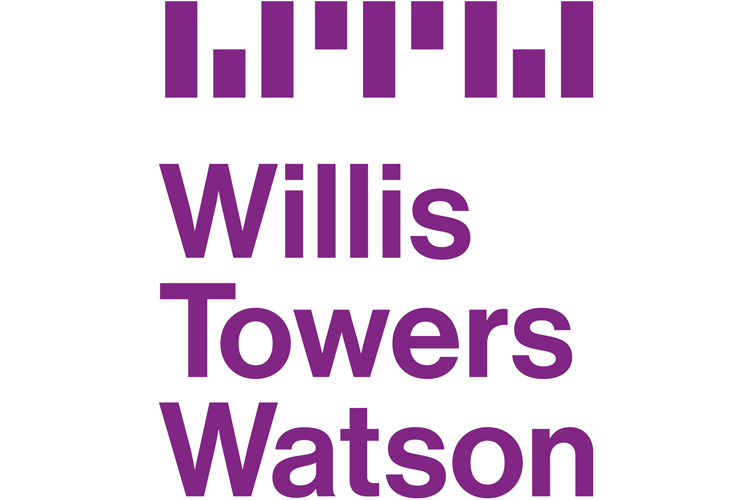
On the next WRN spring seminar (18 April 2018), Michael Kunz and Heinz-Jürgen Punge will present their latest work on hail modelling, both in Europe and Australia.
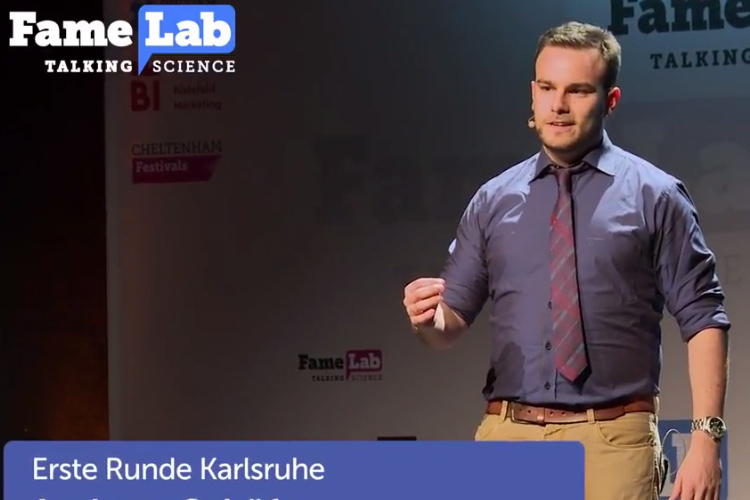
CEDIM doctoral candidate elucidates natural disasters at the FameLab.
link

Conversation between CEDIM employees and the research podcast of the Karlsruhe Institute of Technology:
link
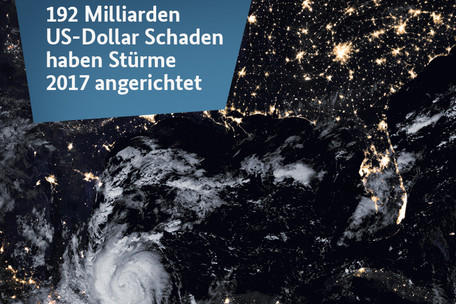
The current "figure of the week" at the BMBF comes from CEDIM:
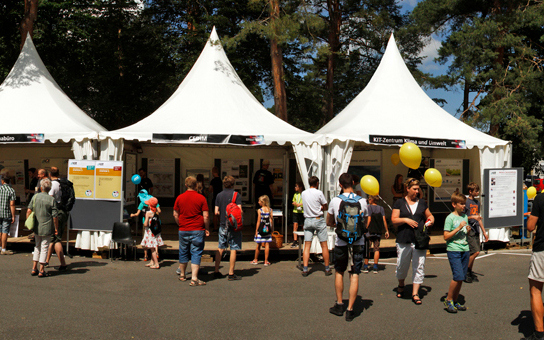
Within the science festival „Effekte 2017“, Campus Nord of the Karlsruhe Institute of Technology (KIT) opens its gates due to an open day.
To the report and pictures.
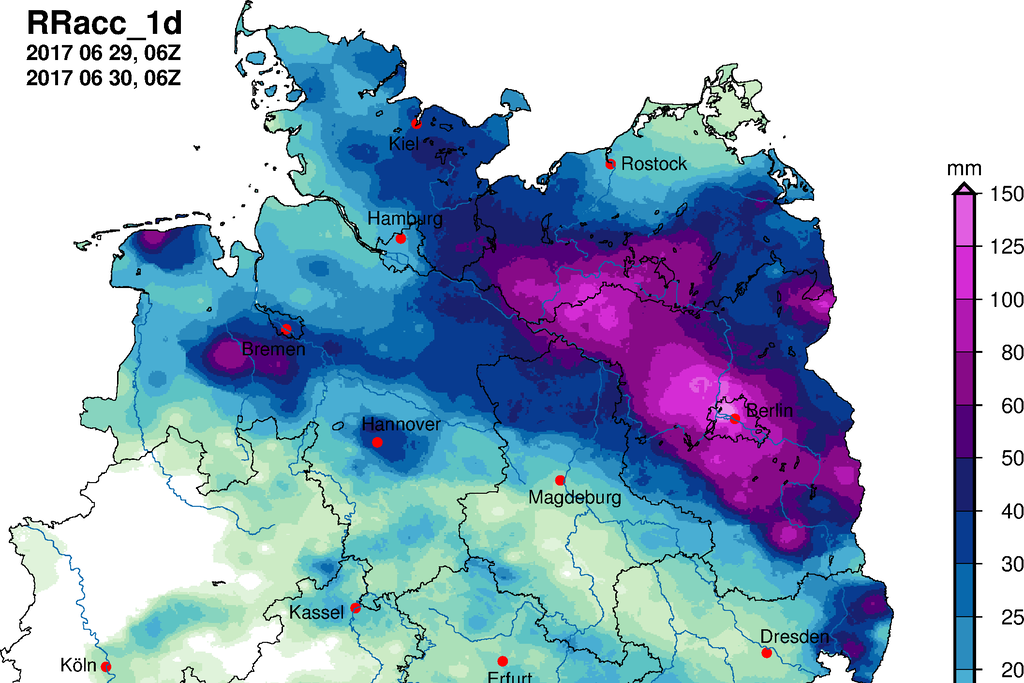
In the end of June, depression "Rasmund III" caused convective strengthened rainfalls in the northeast of Germany. In Berlin-Tegel, as an example, 200 mm of rain accumulated within 24 hours.
Read more (german):
https://www.wettergefahren-fruehwarnung.de/
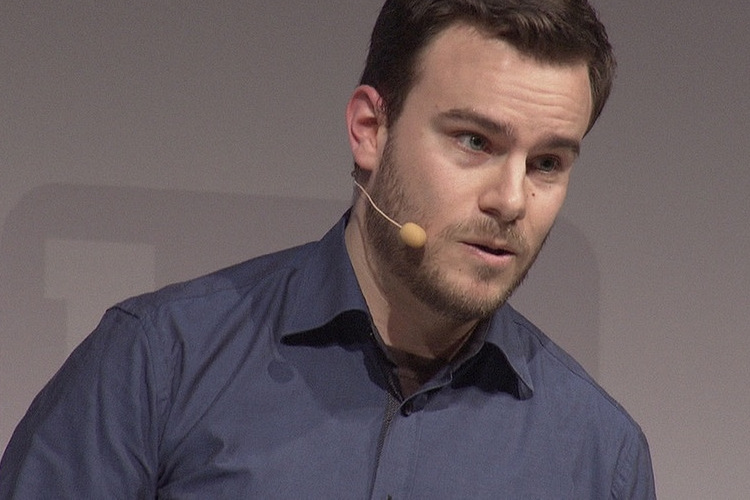
At Science Slam im Wissenschaftsjahr 2016/17 in Mainz, CEDIM tsunami expert Andreas Schäfer won his first Science Slam! In September, he will be present at the German final in Berlin.
Congratulations!
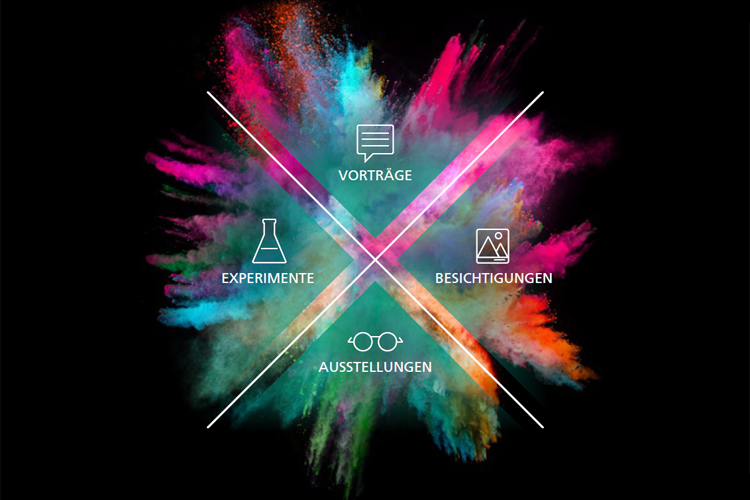
CEDIM is part of the open day at Campus Nord in Eggenstein-Leopoldshafen on 24th of June 2017.
For more informationen click here.
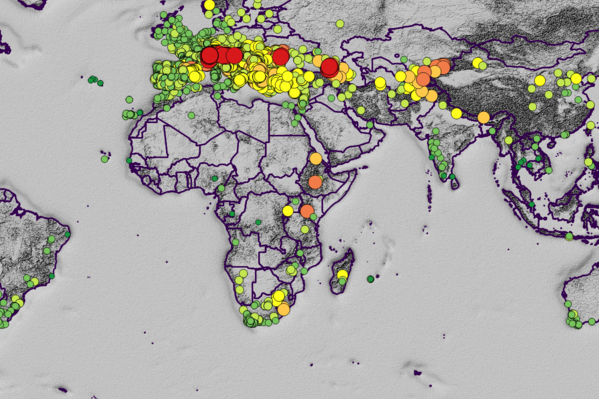
Study led by Dr. James Daniell (GPI & CEDIM) examines the impact of natural disasters and climate change on viniculture.
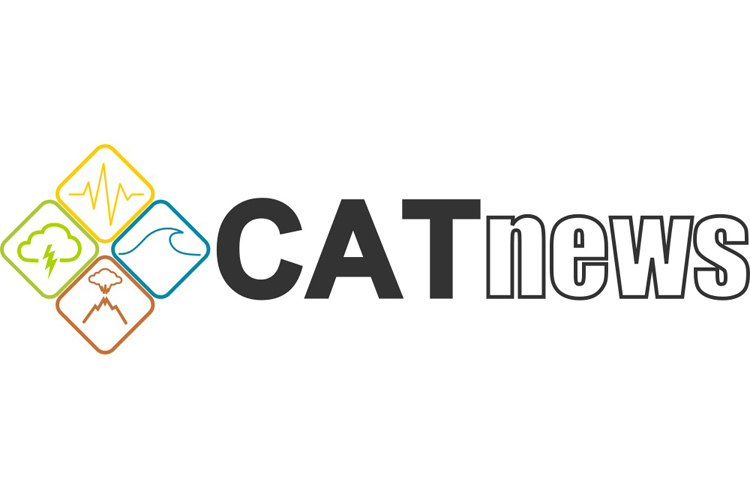
Visualizations of current natural disasters by our CEDIM colleague Dipl.-Ing. M.Sc. Andreas Schäfer.
Check out the Youtube channel and the Facebook page!


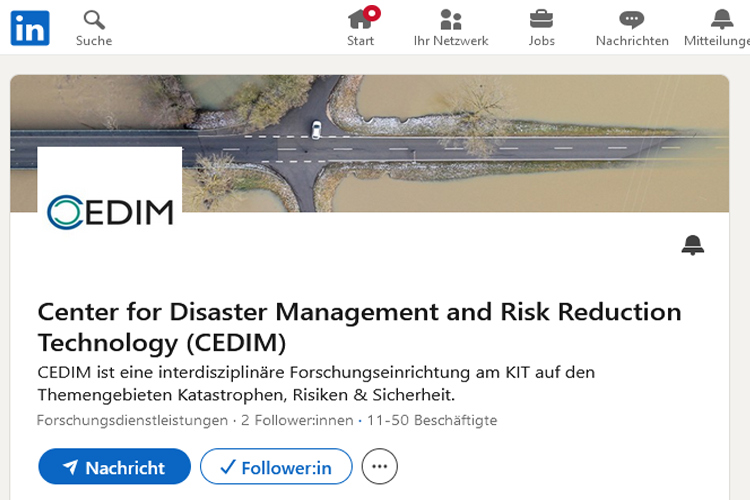
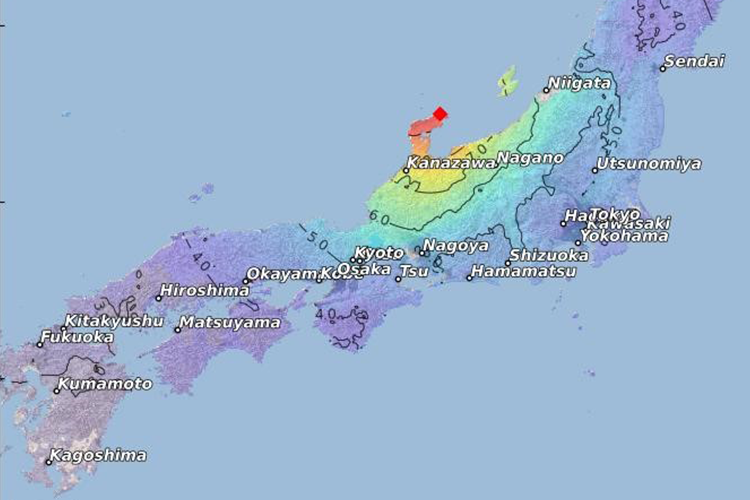
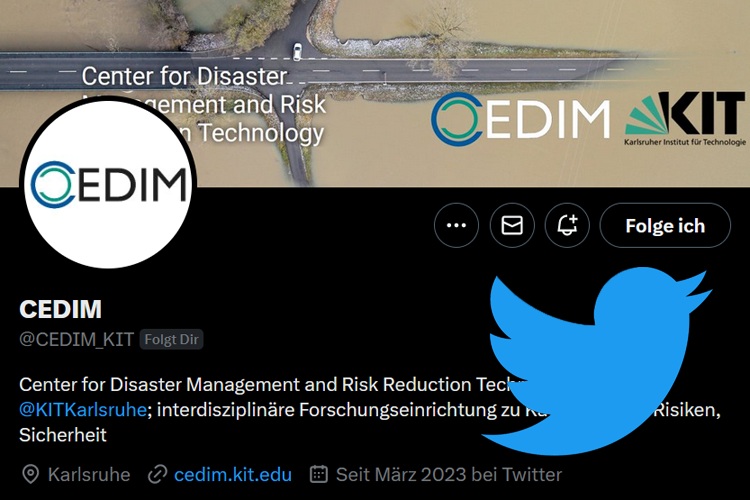
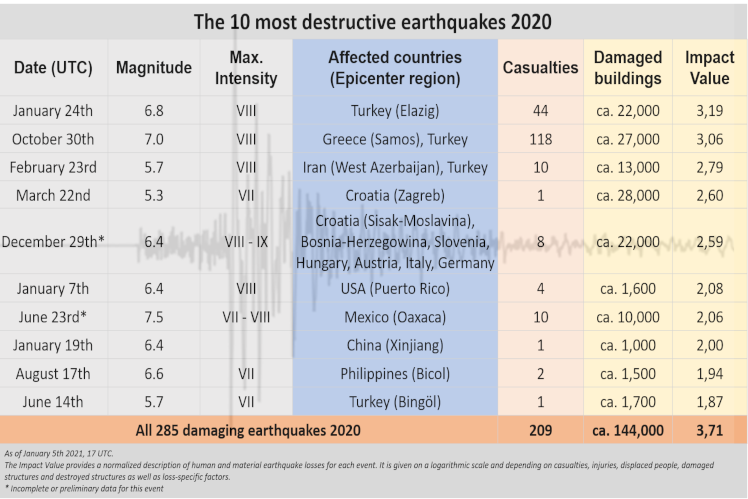

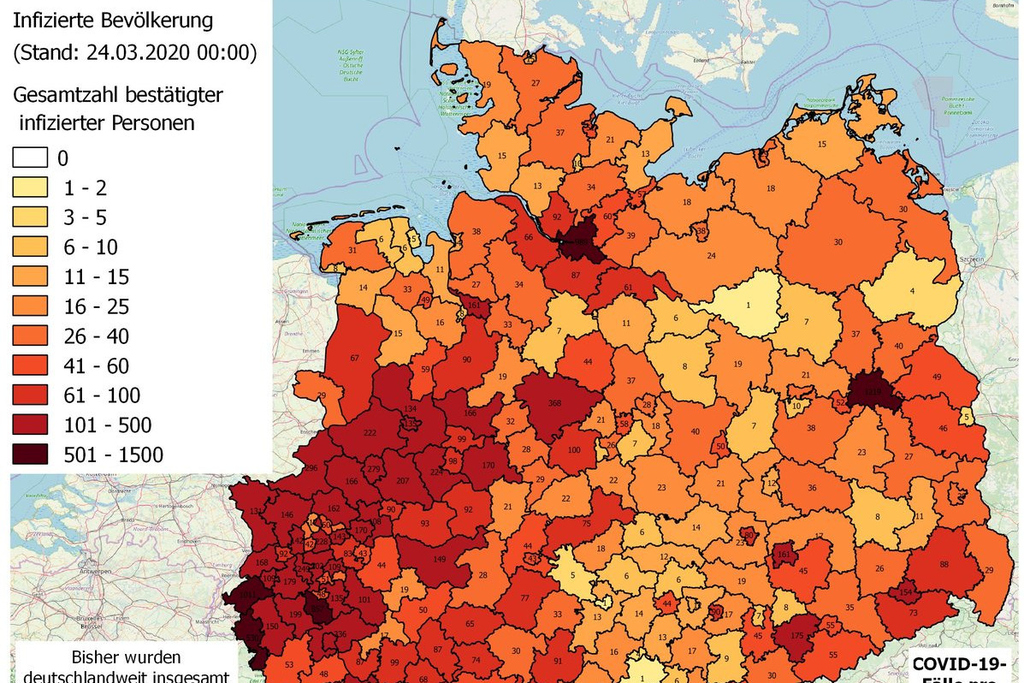

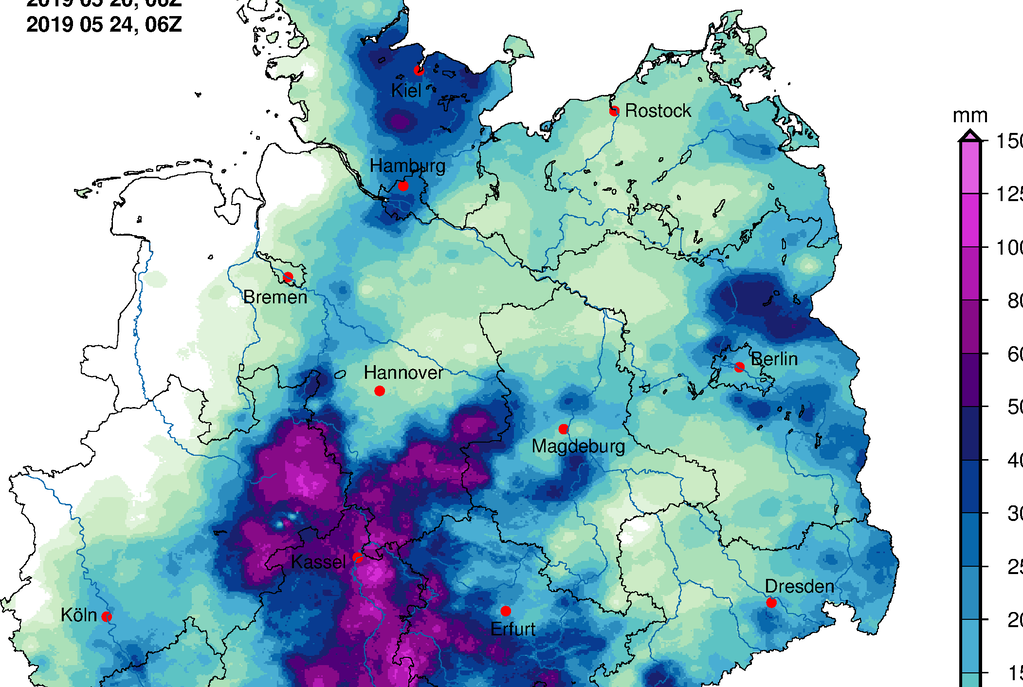
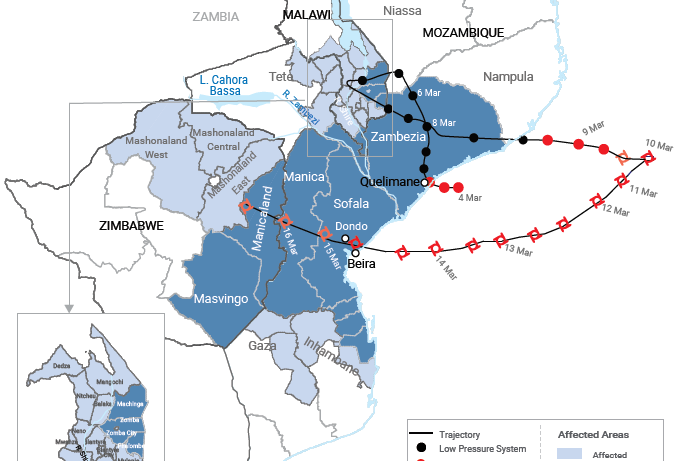
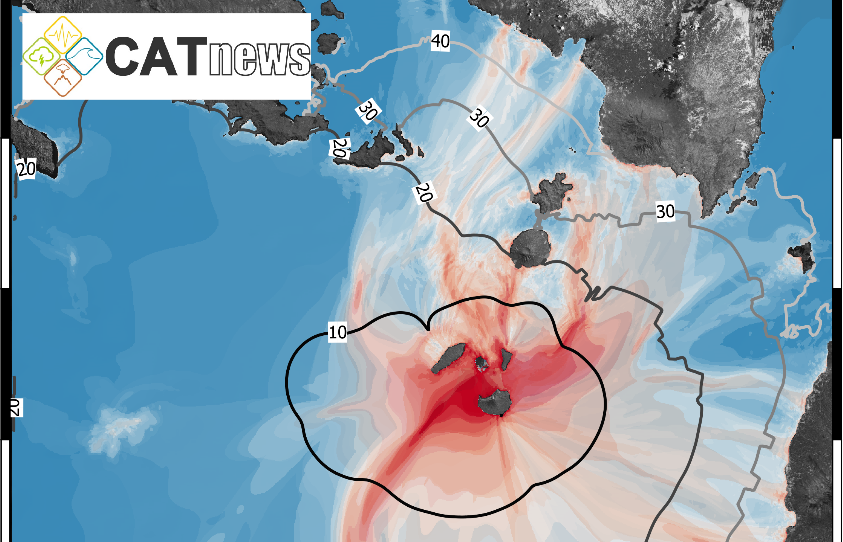
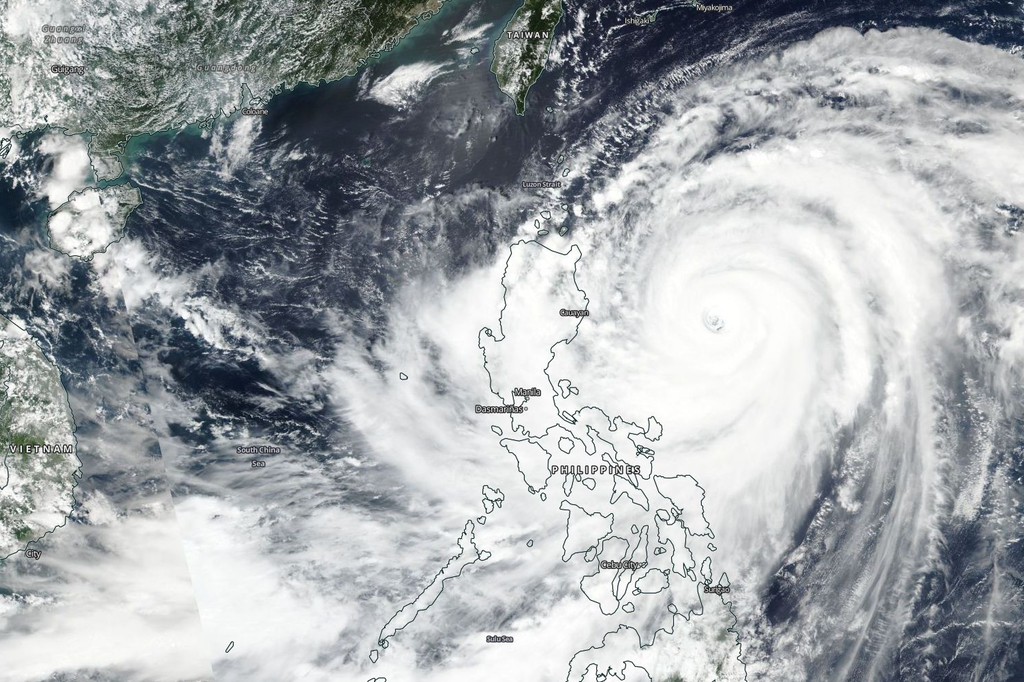
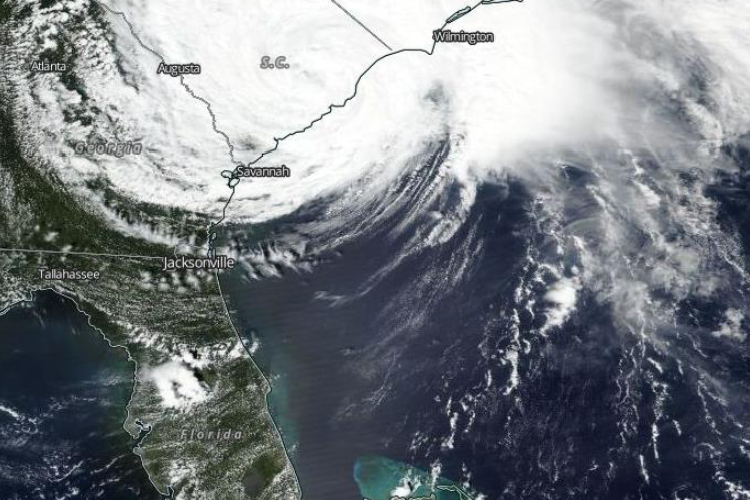
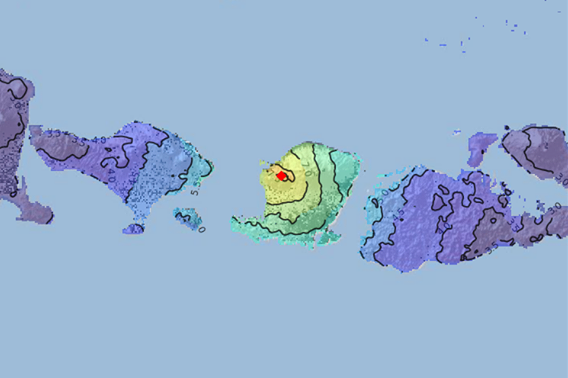
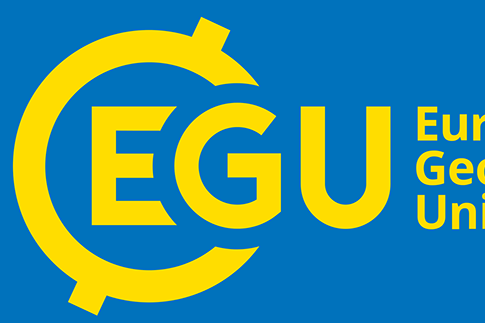
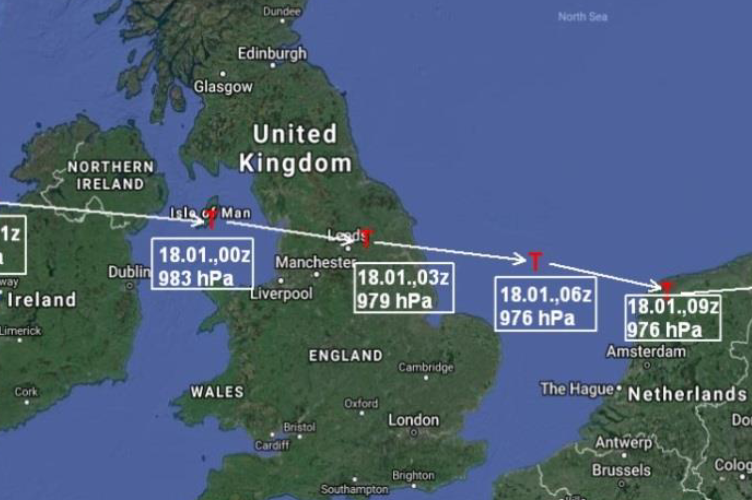
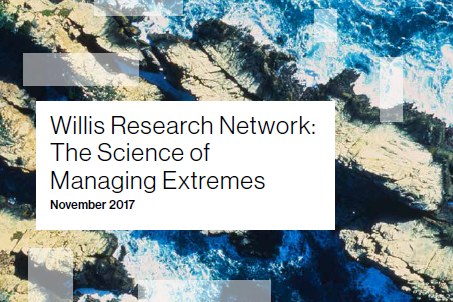
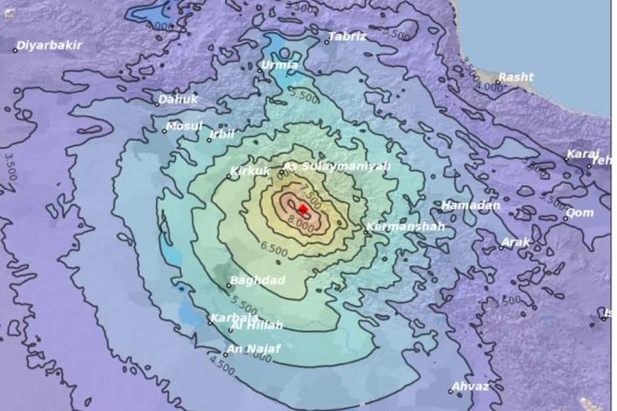
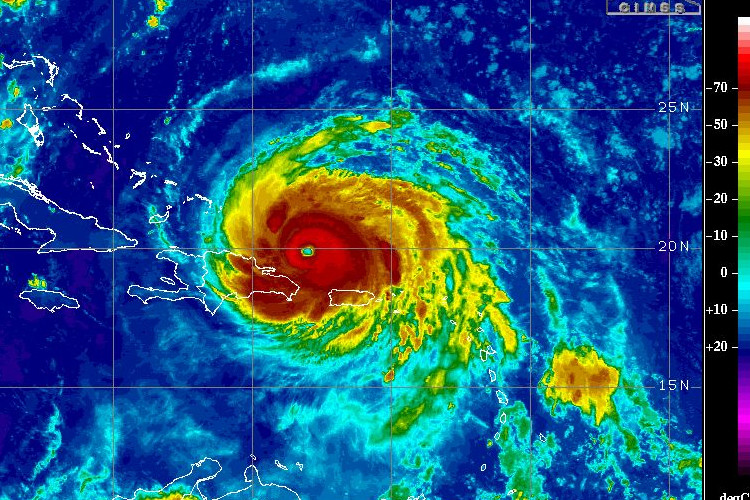
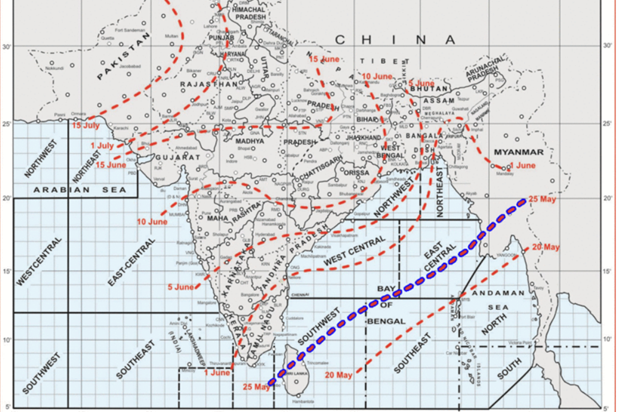
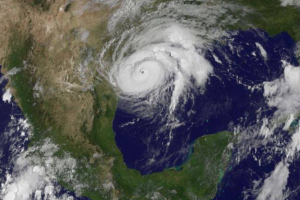
_rdax_98p.jpg)
